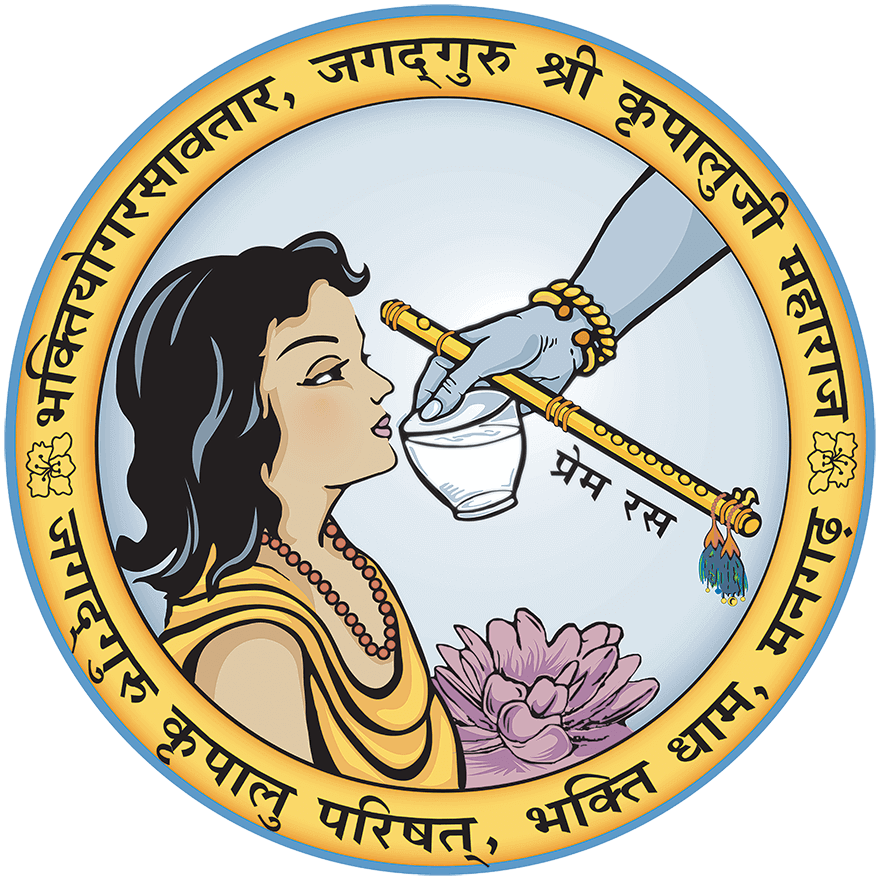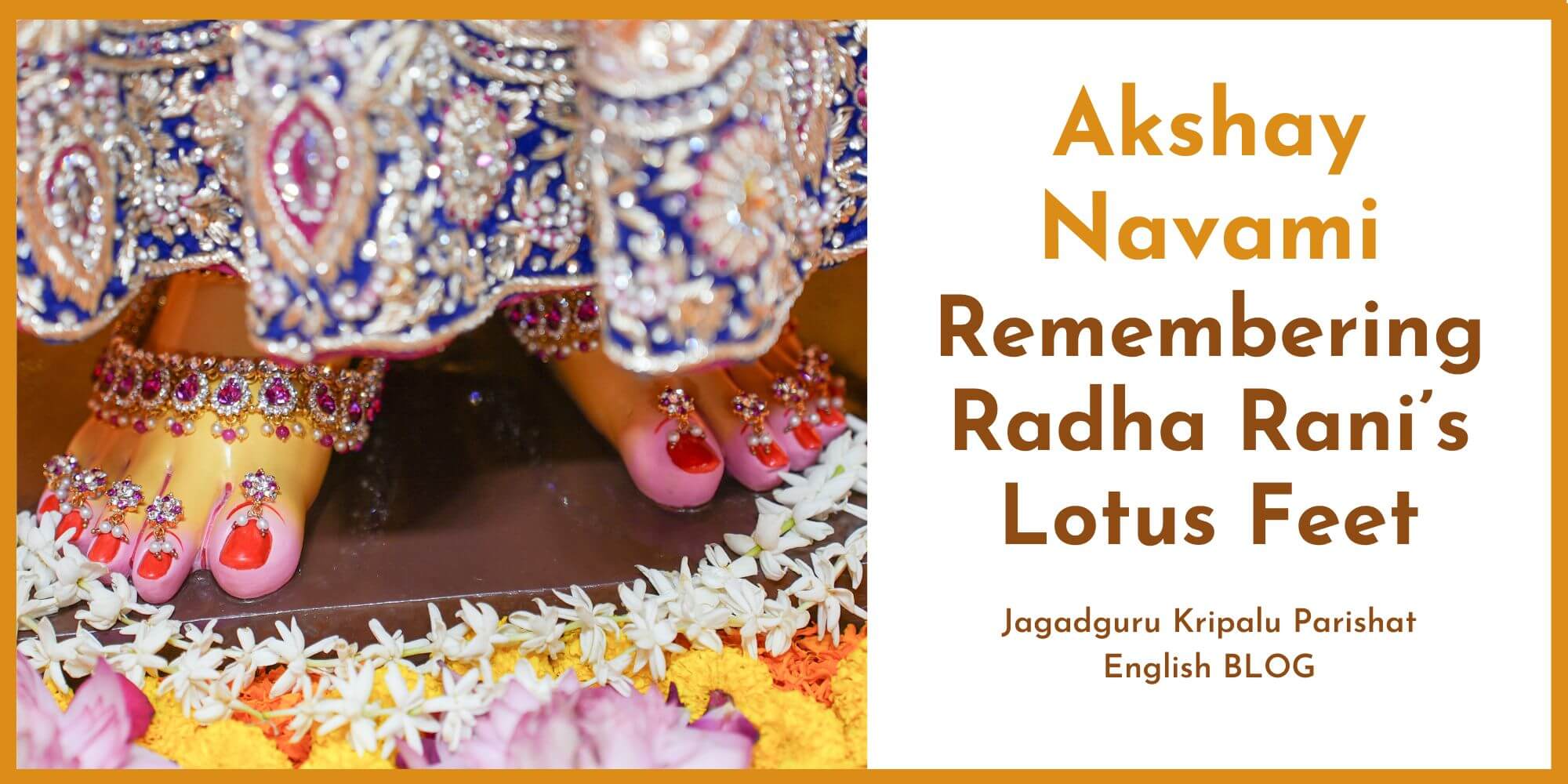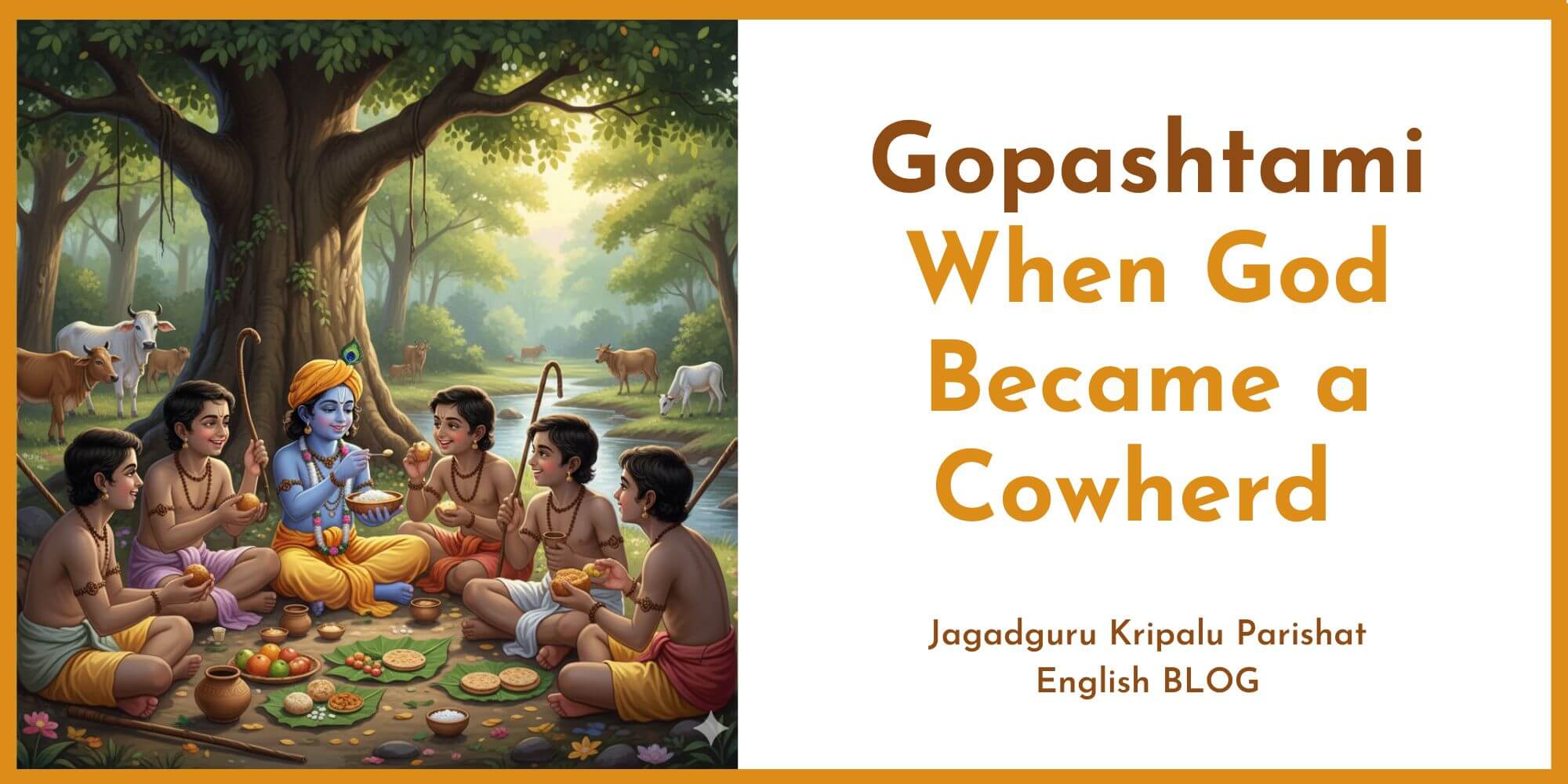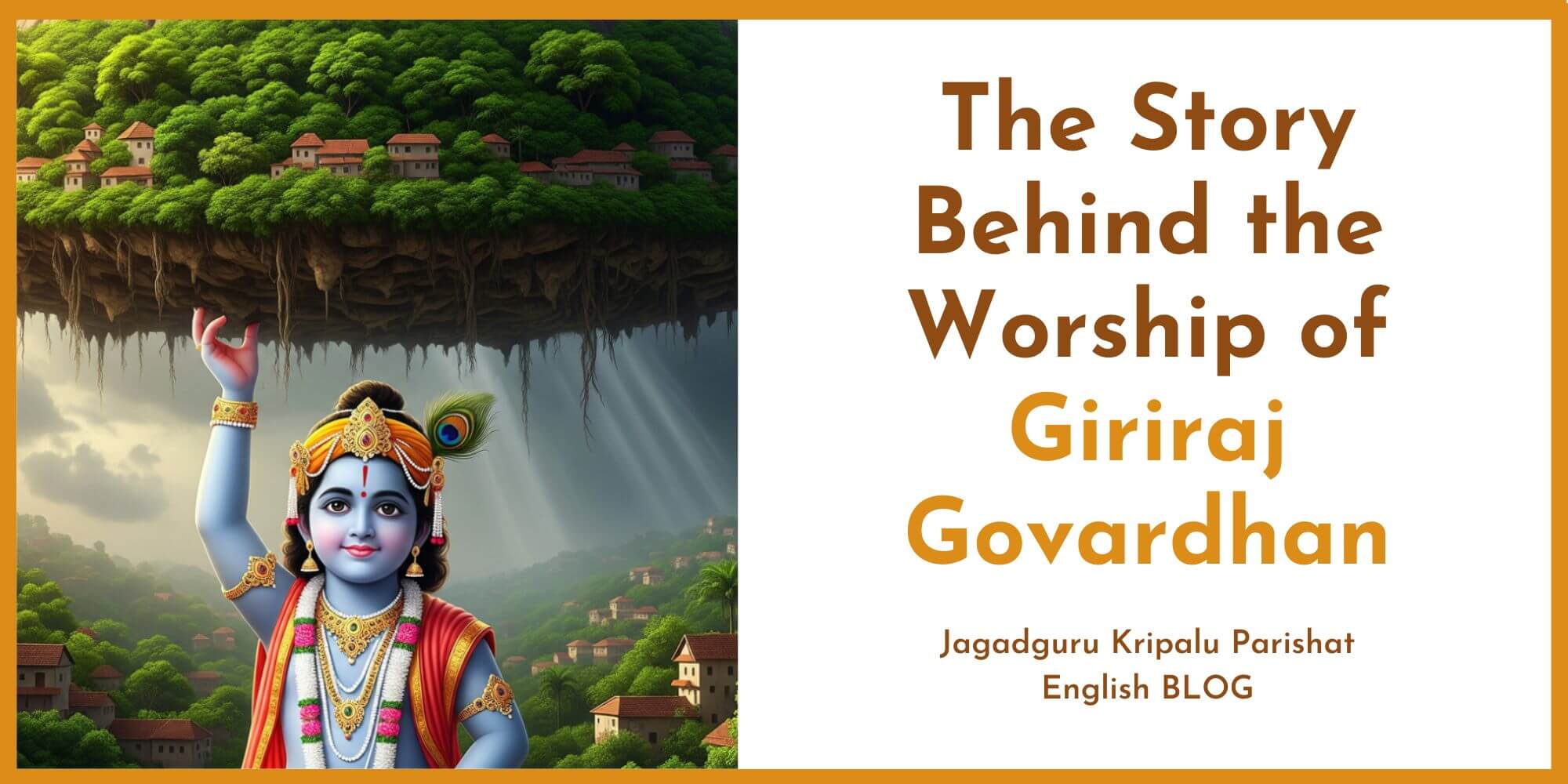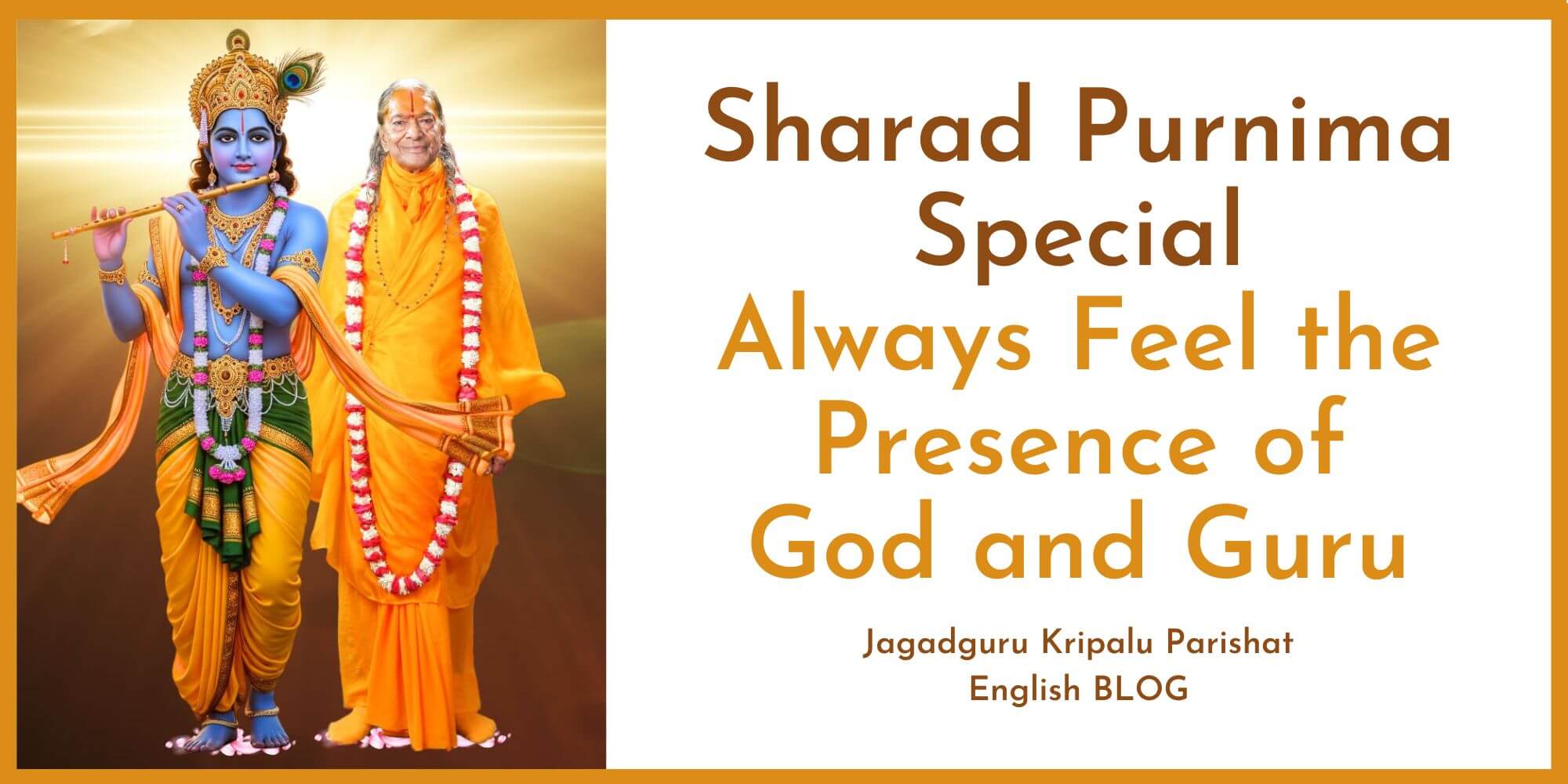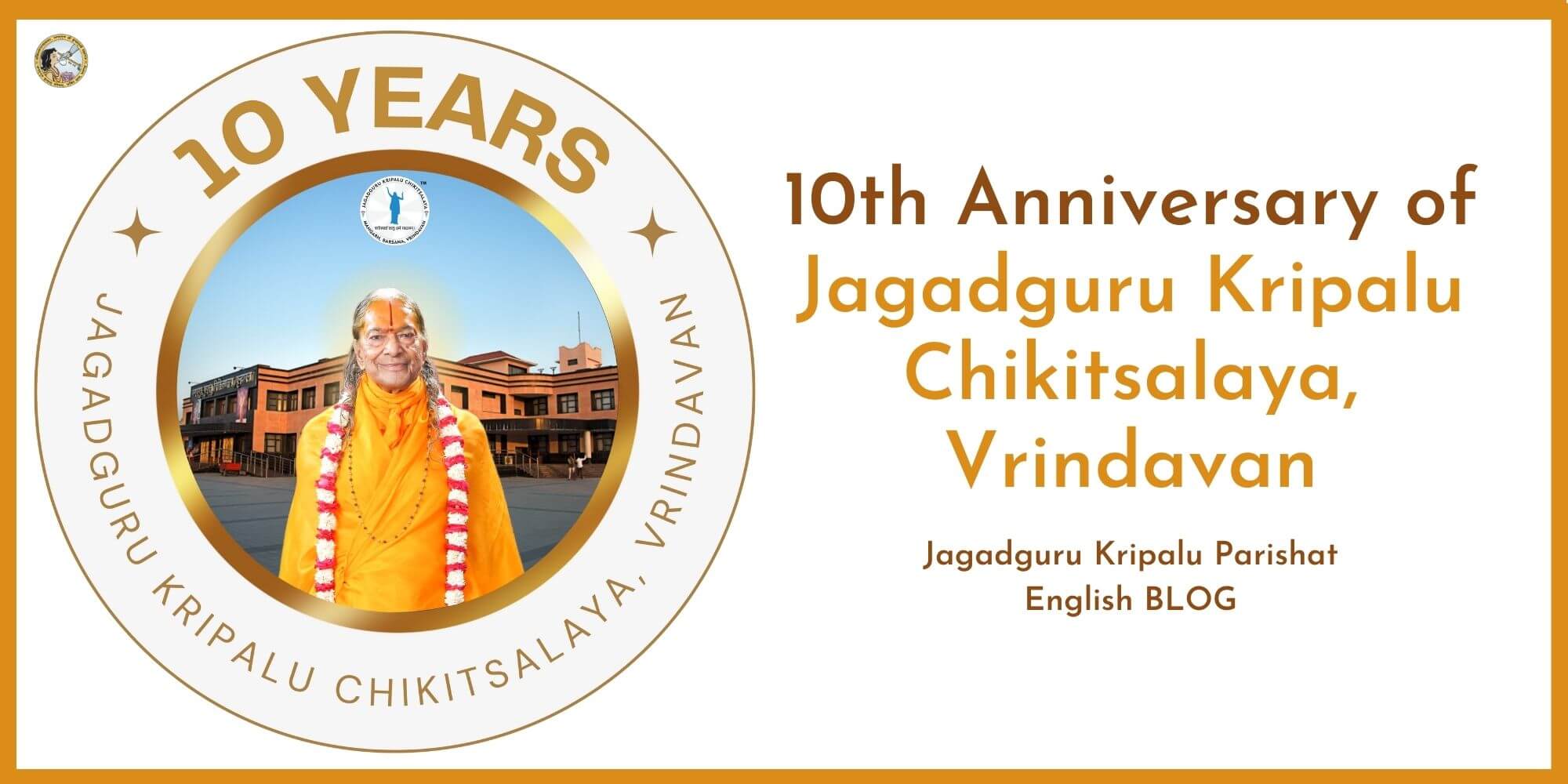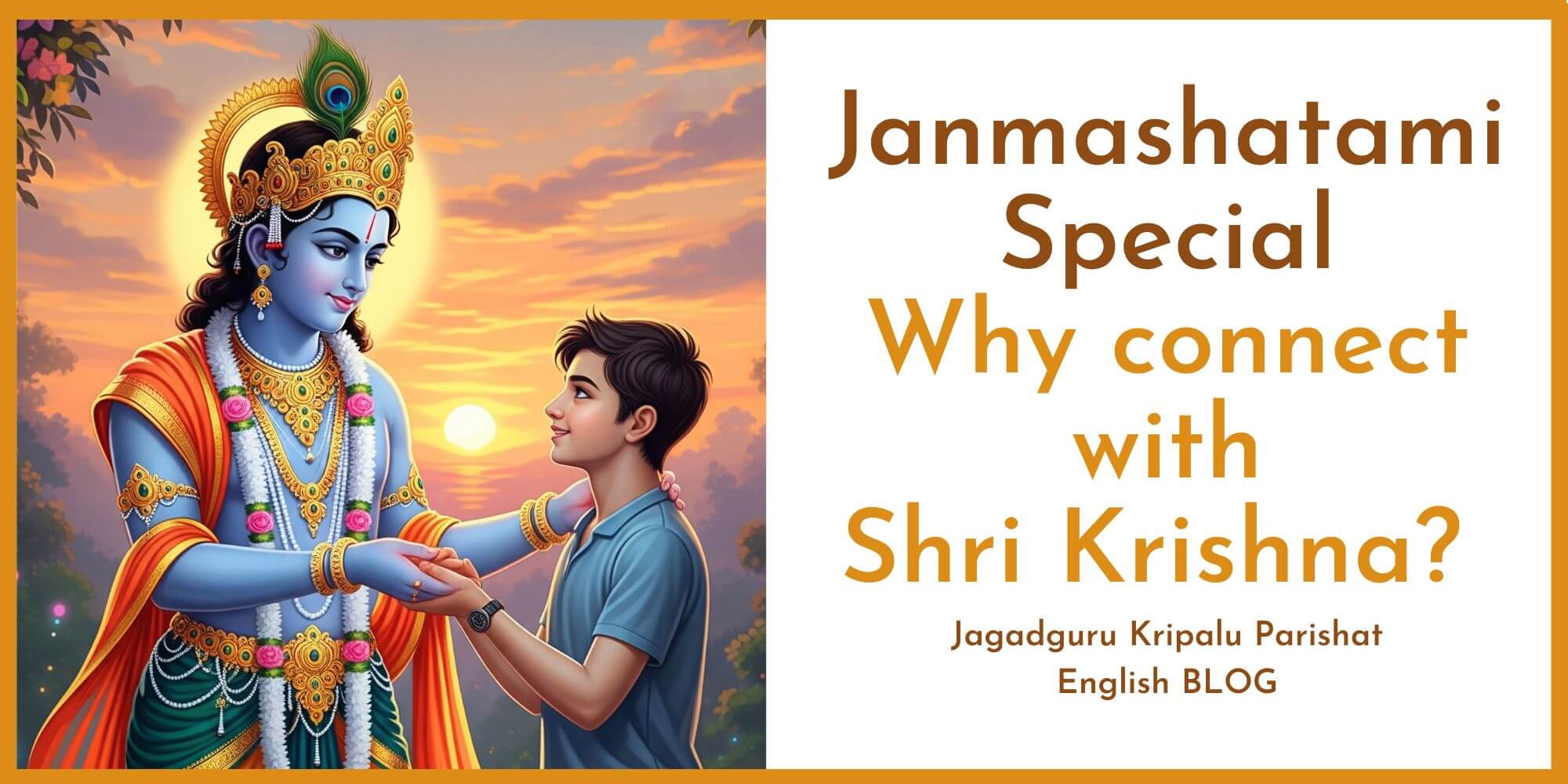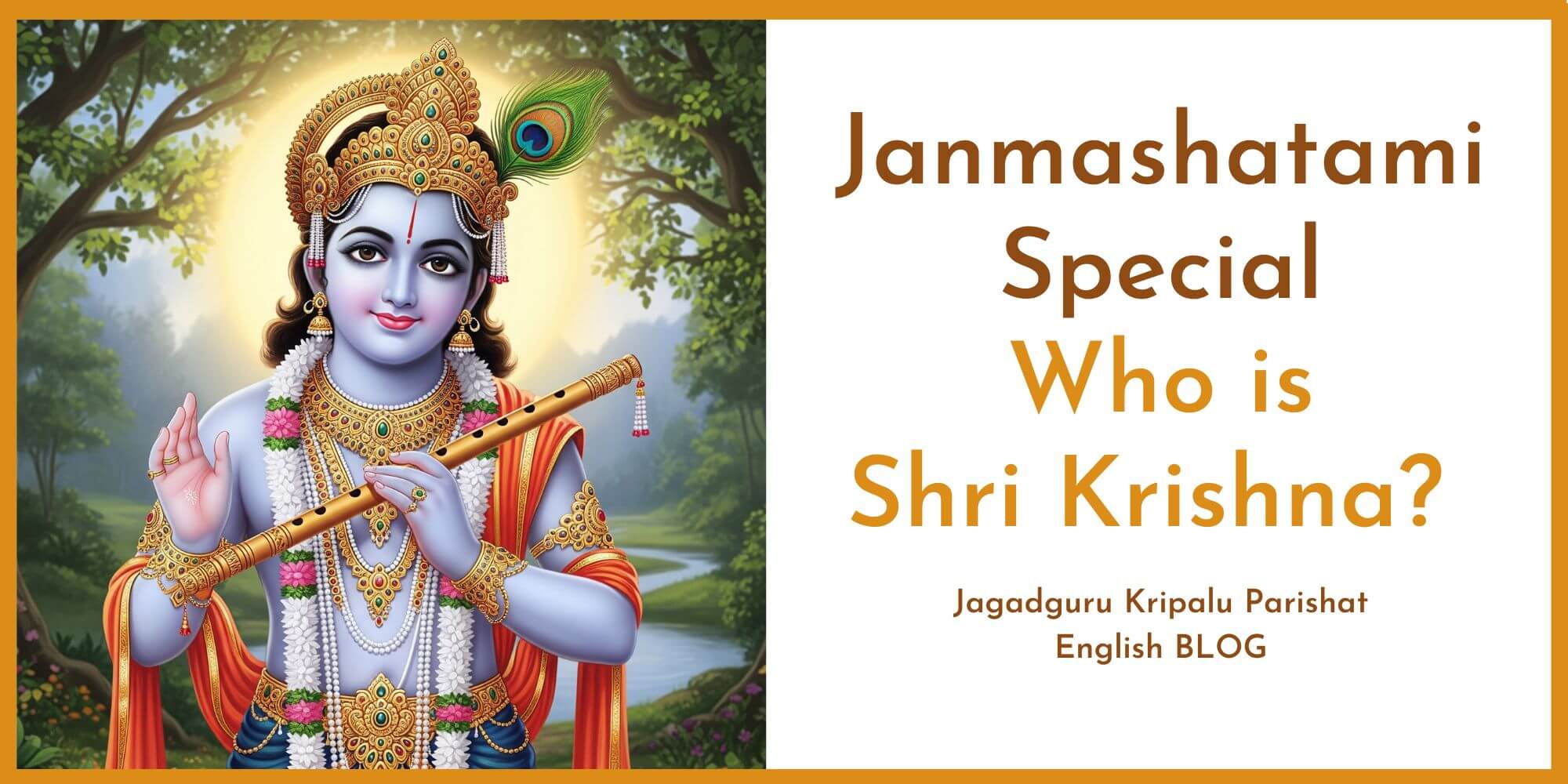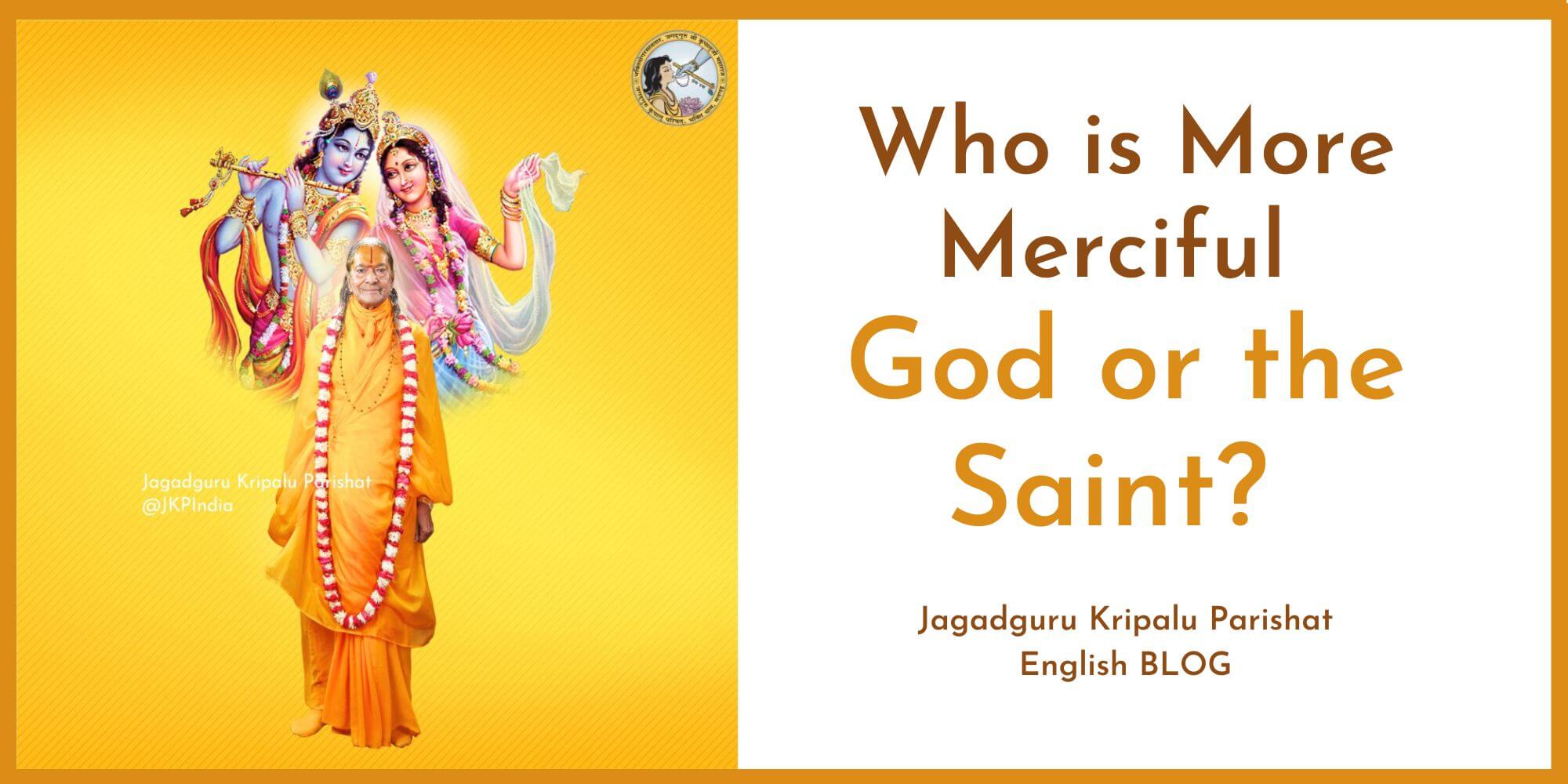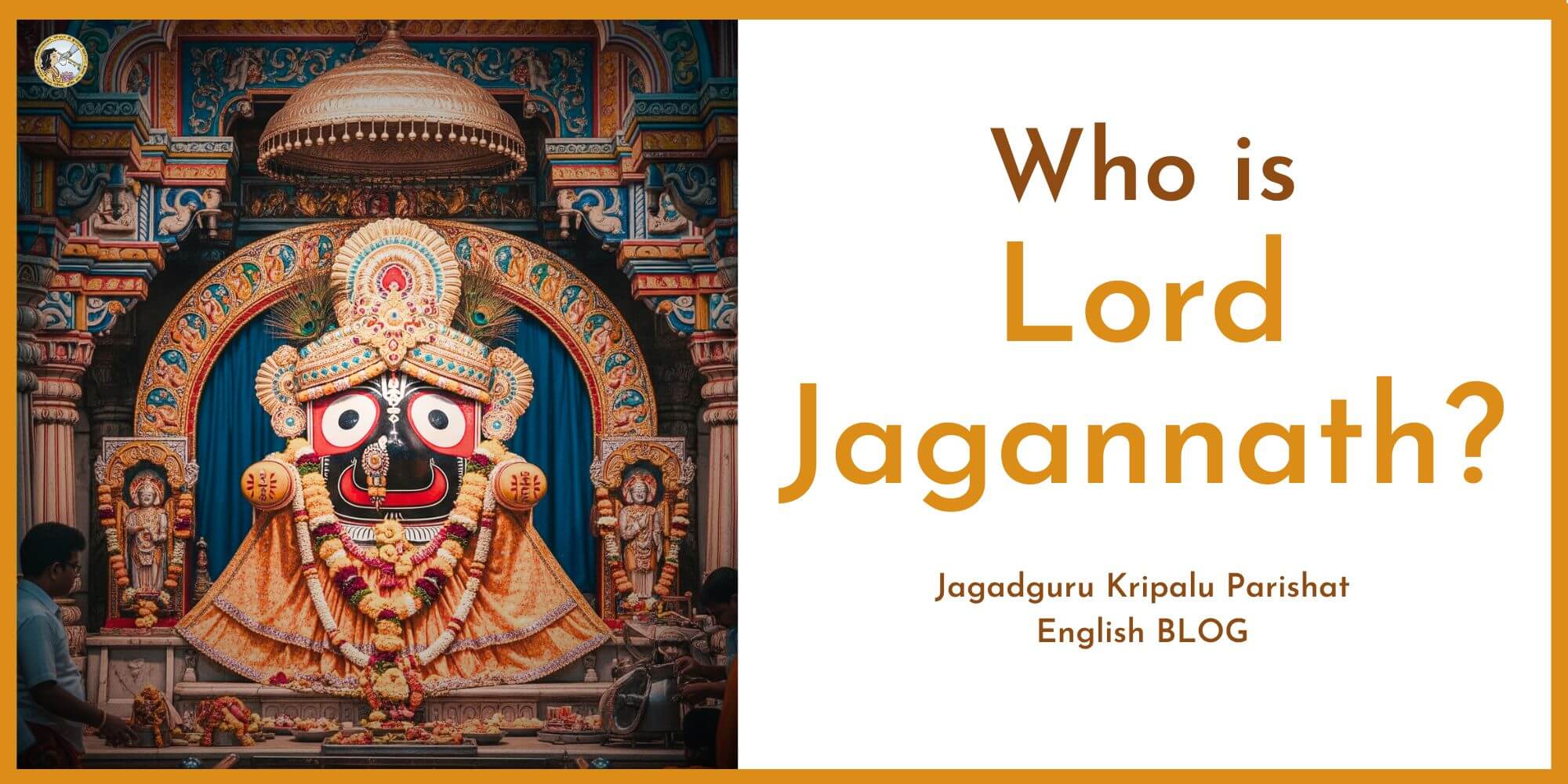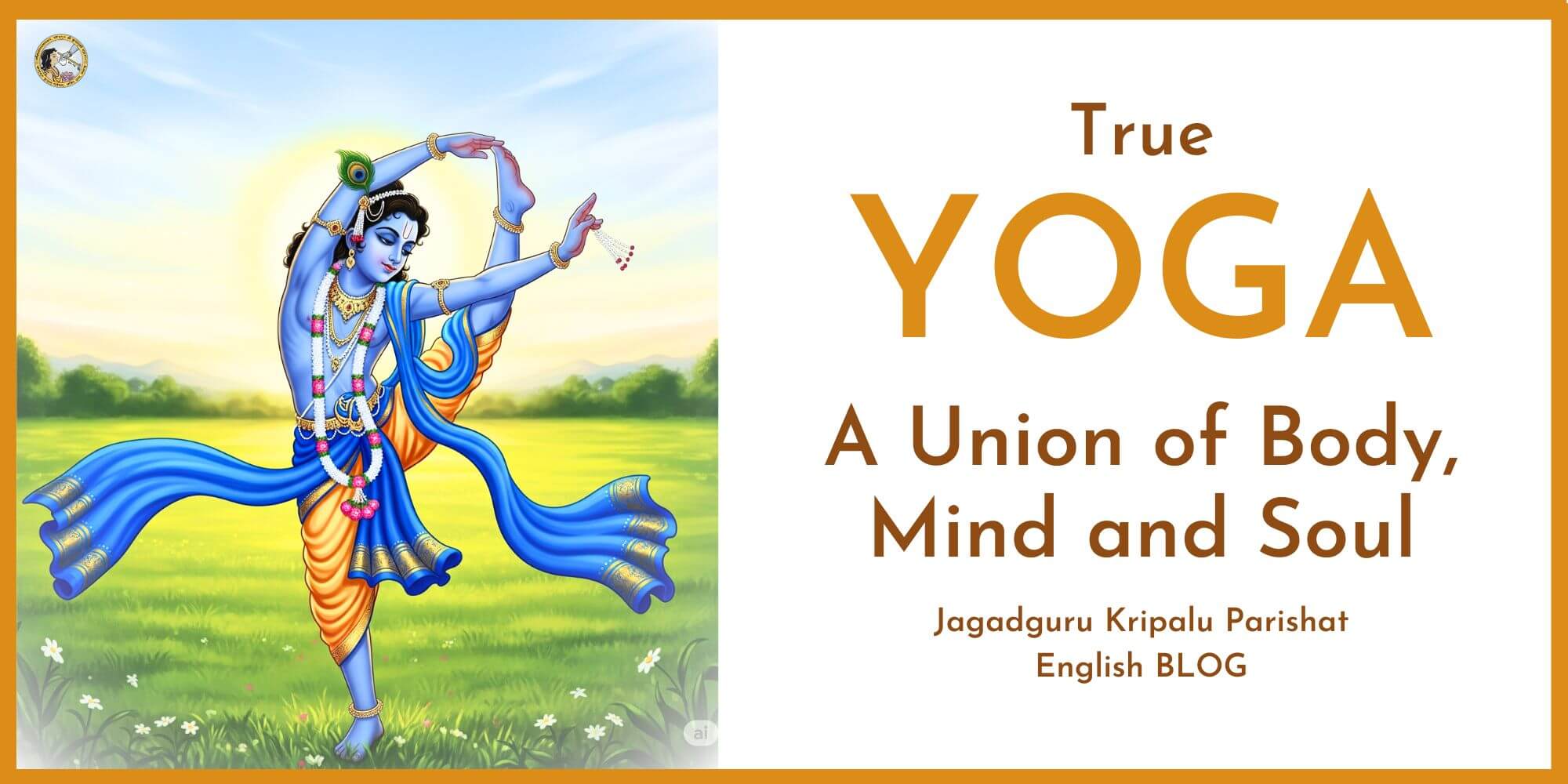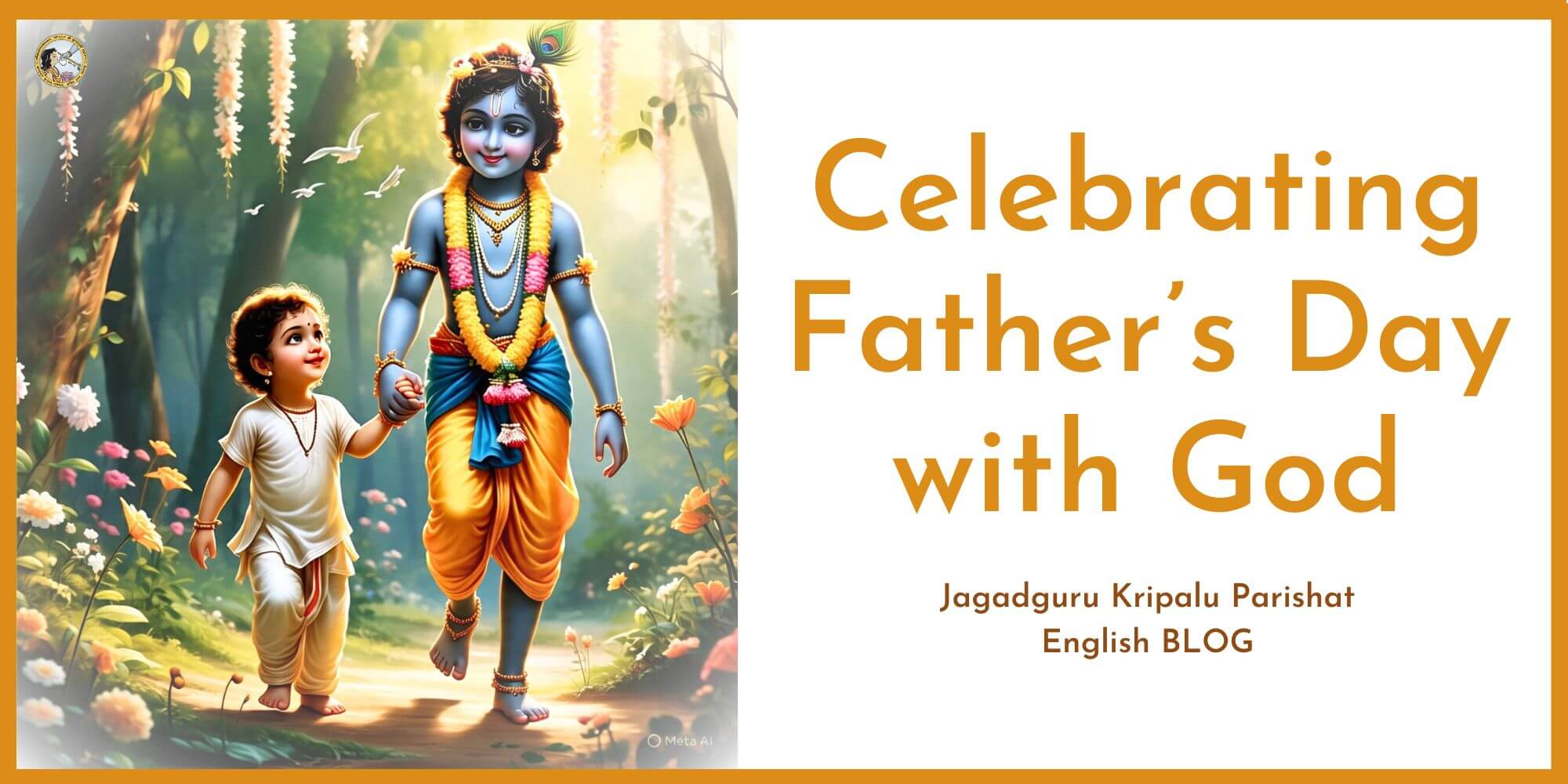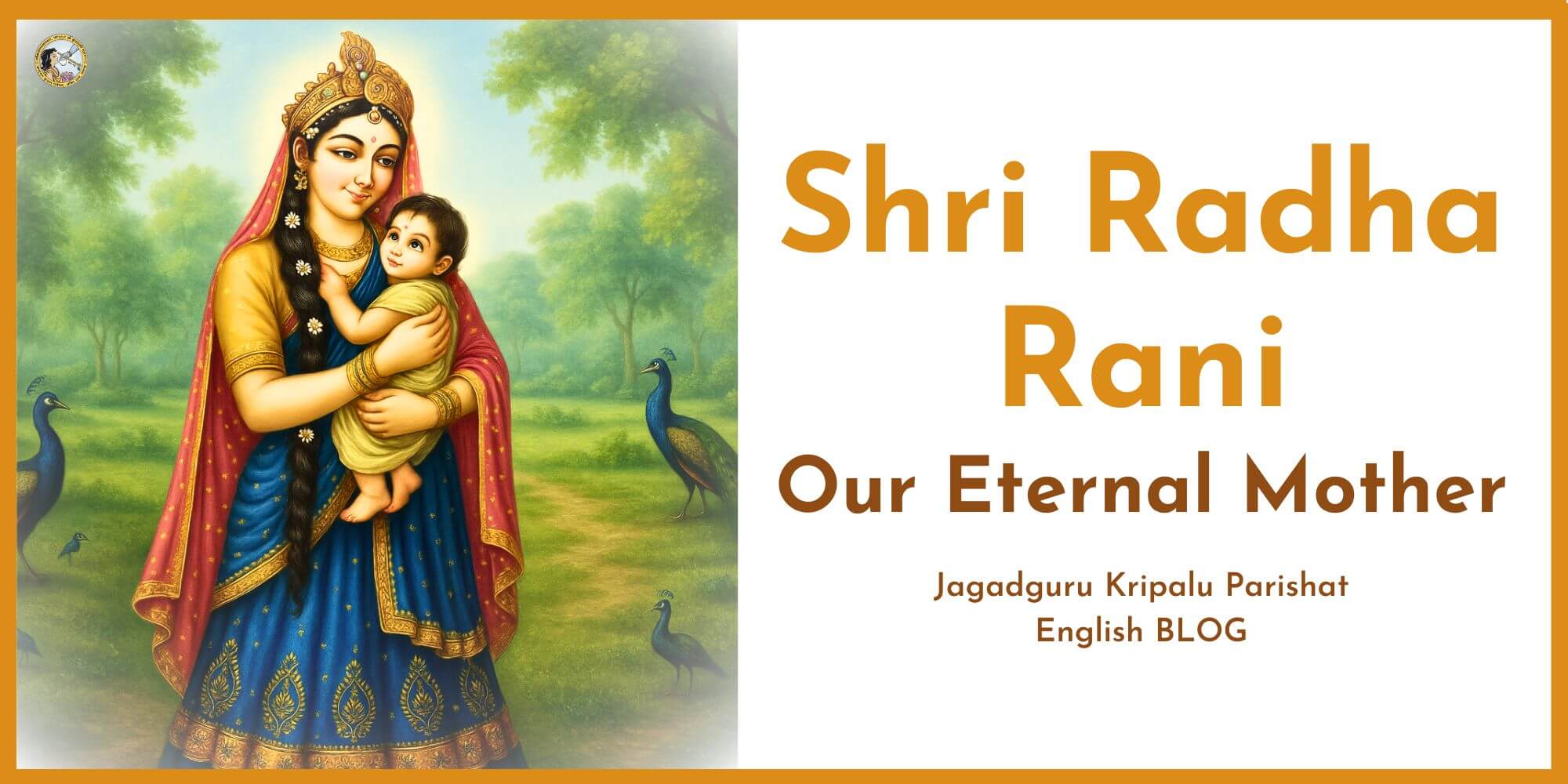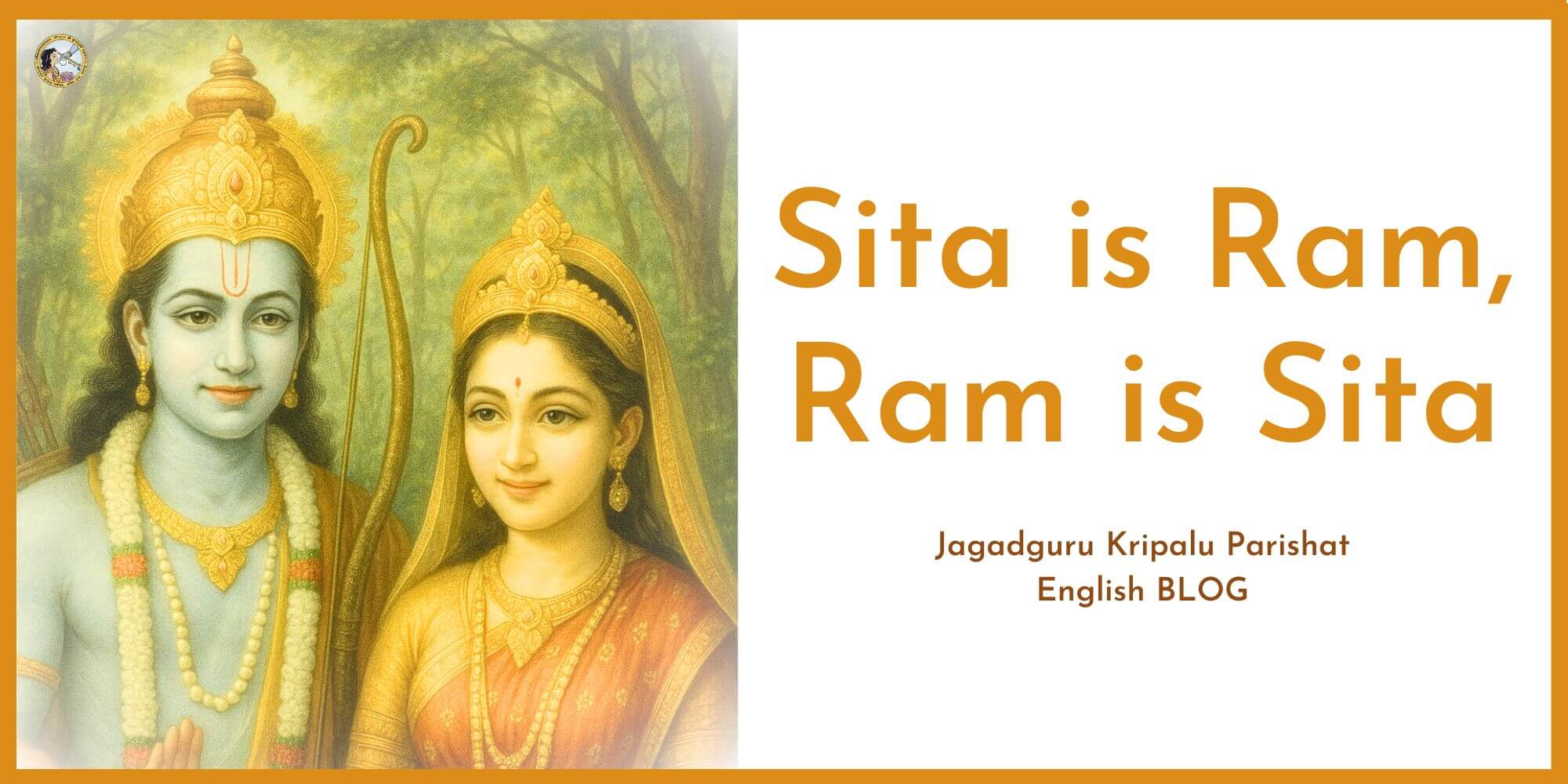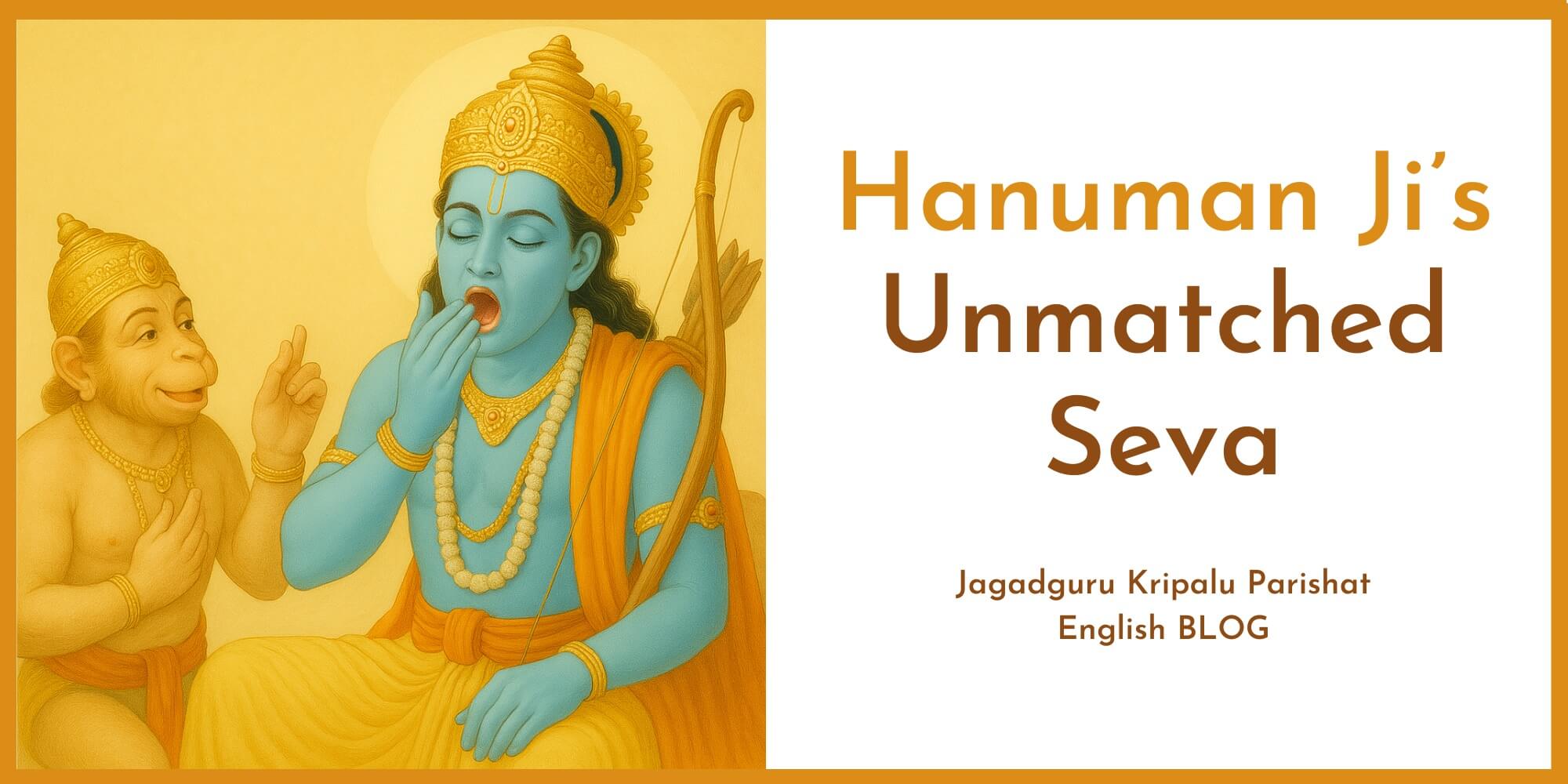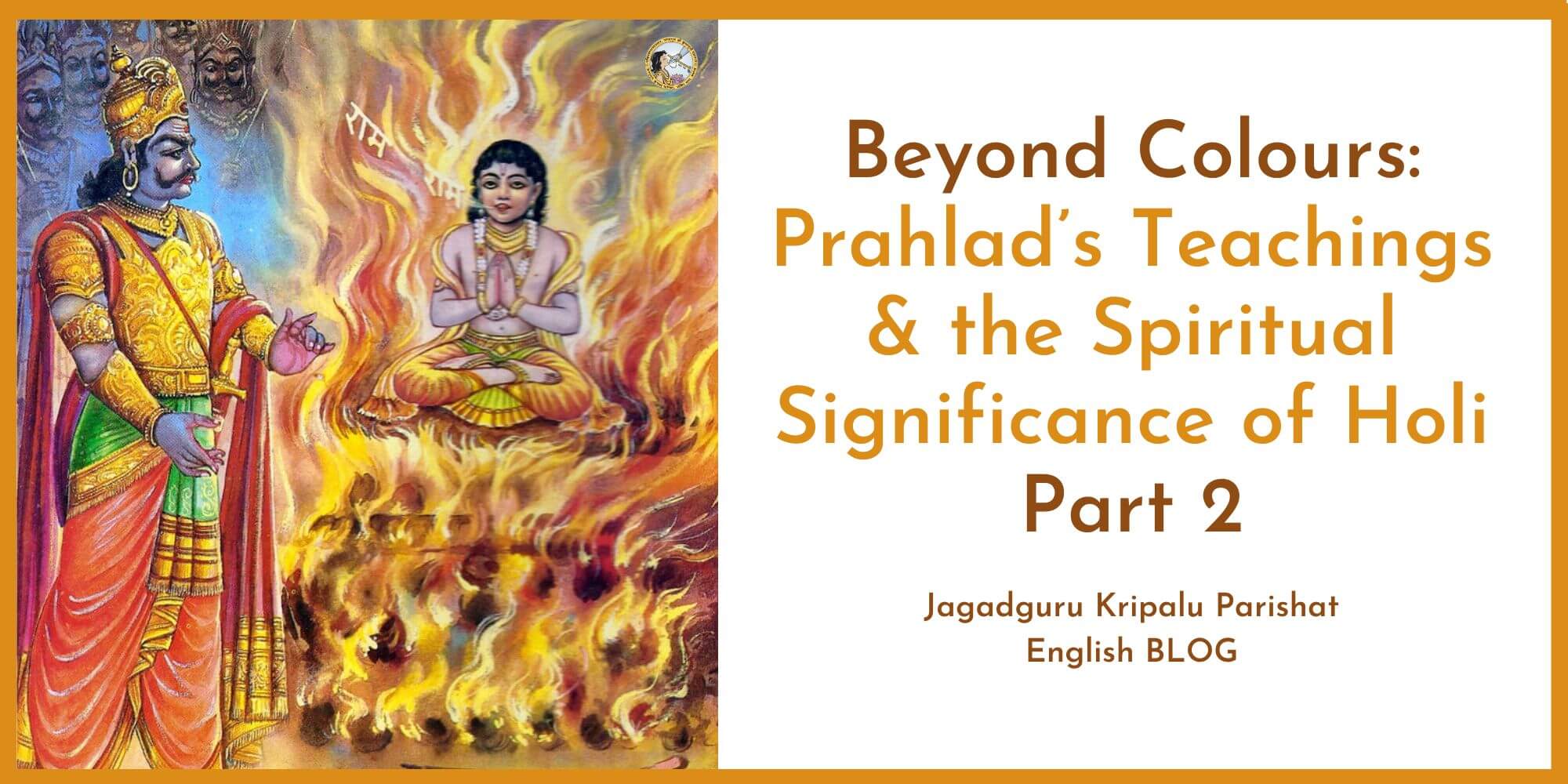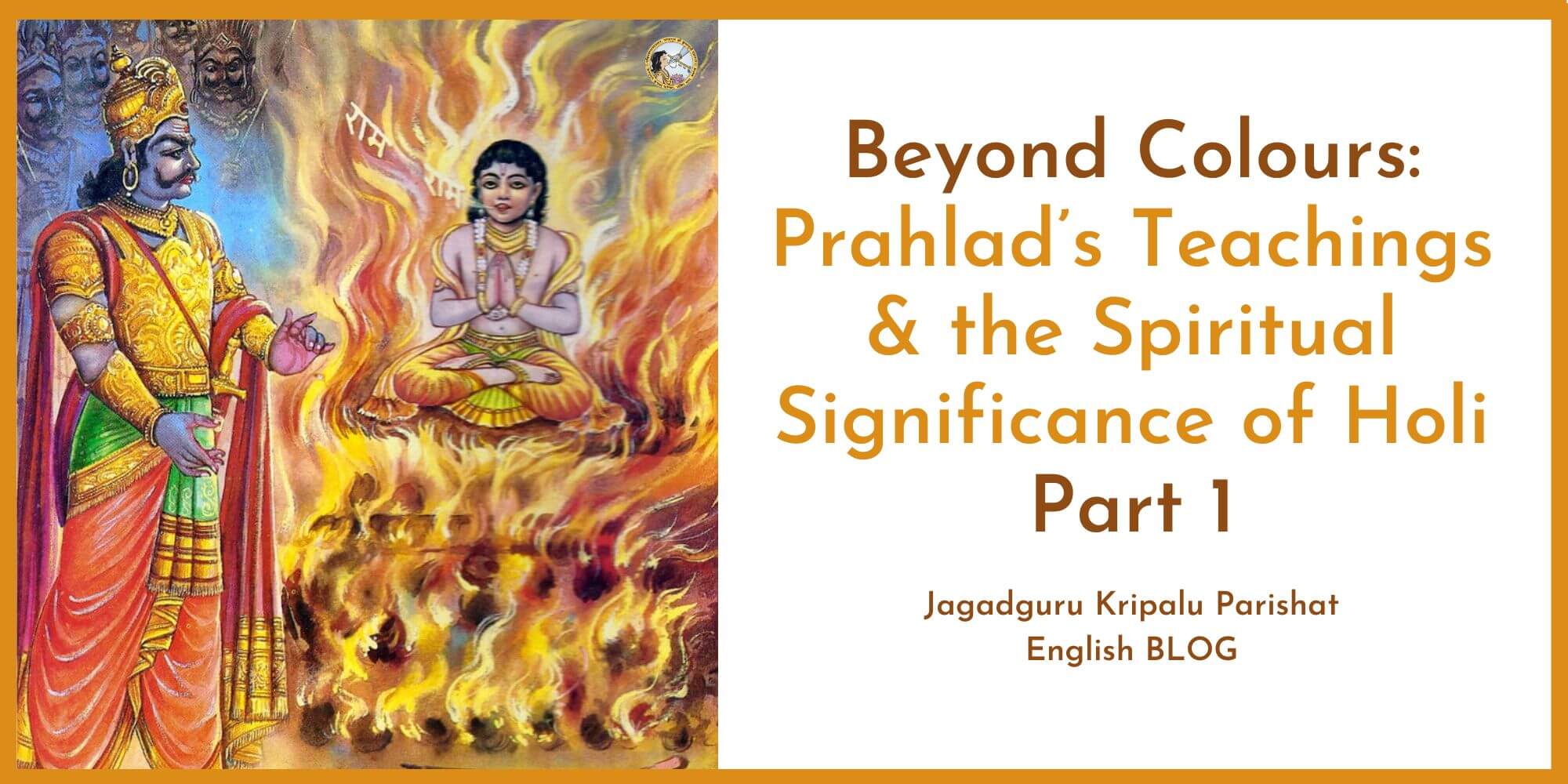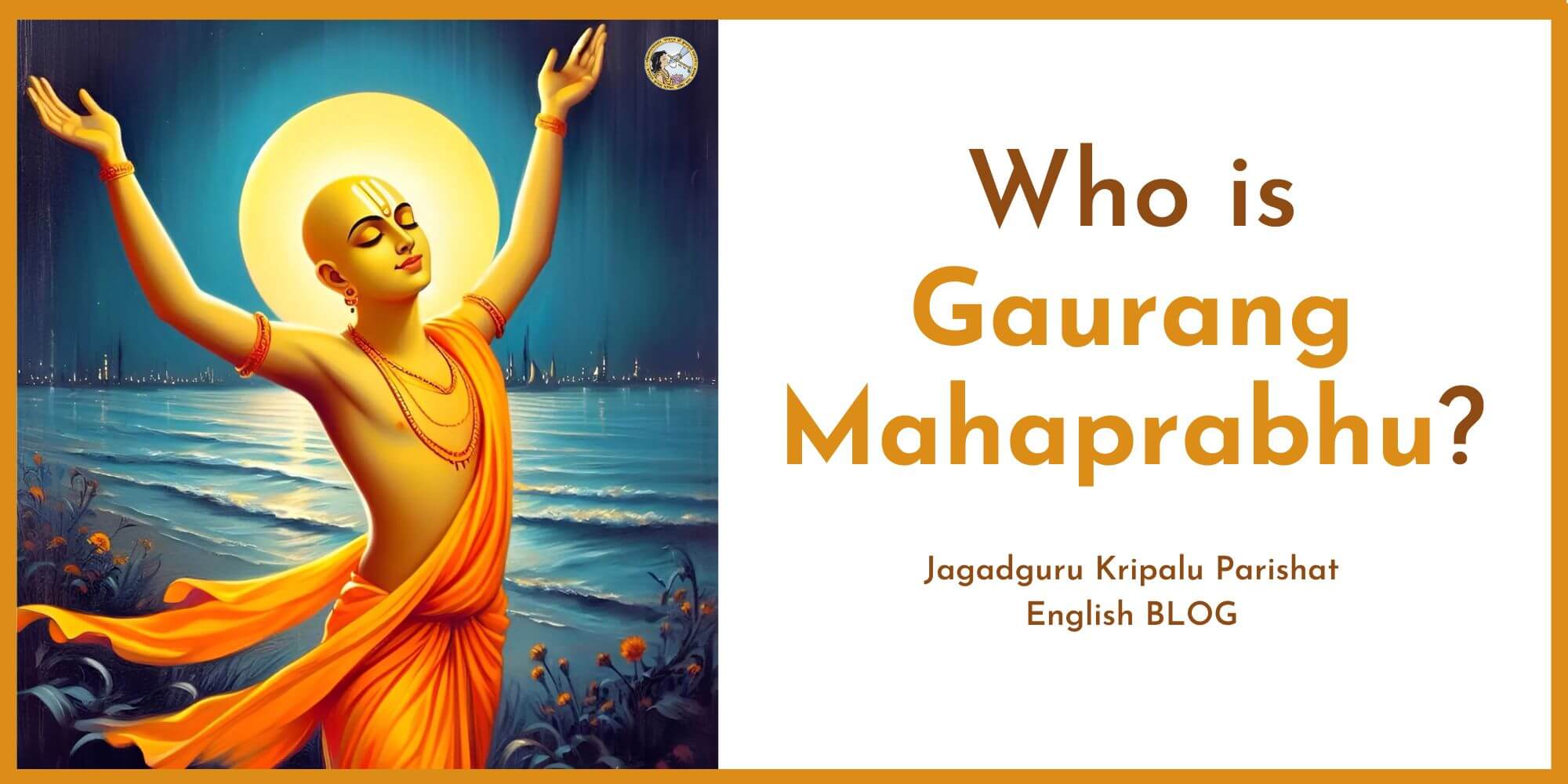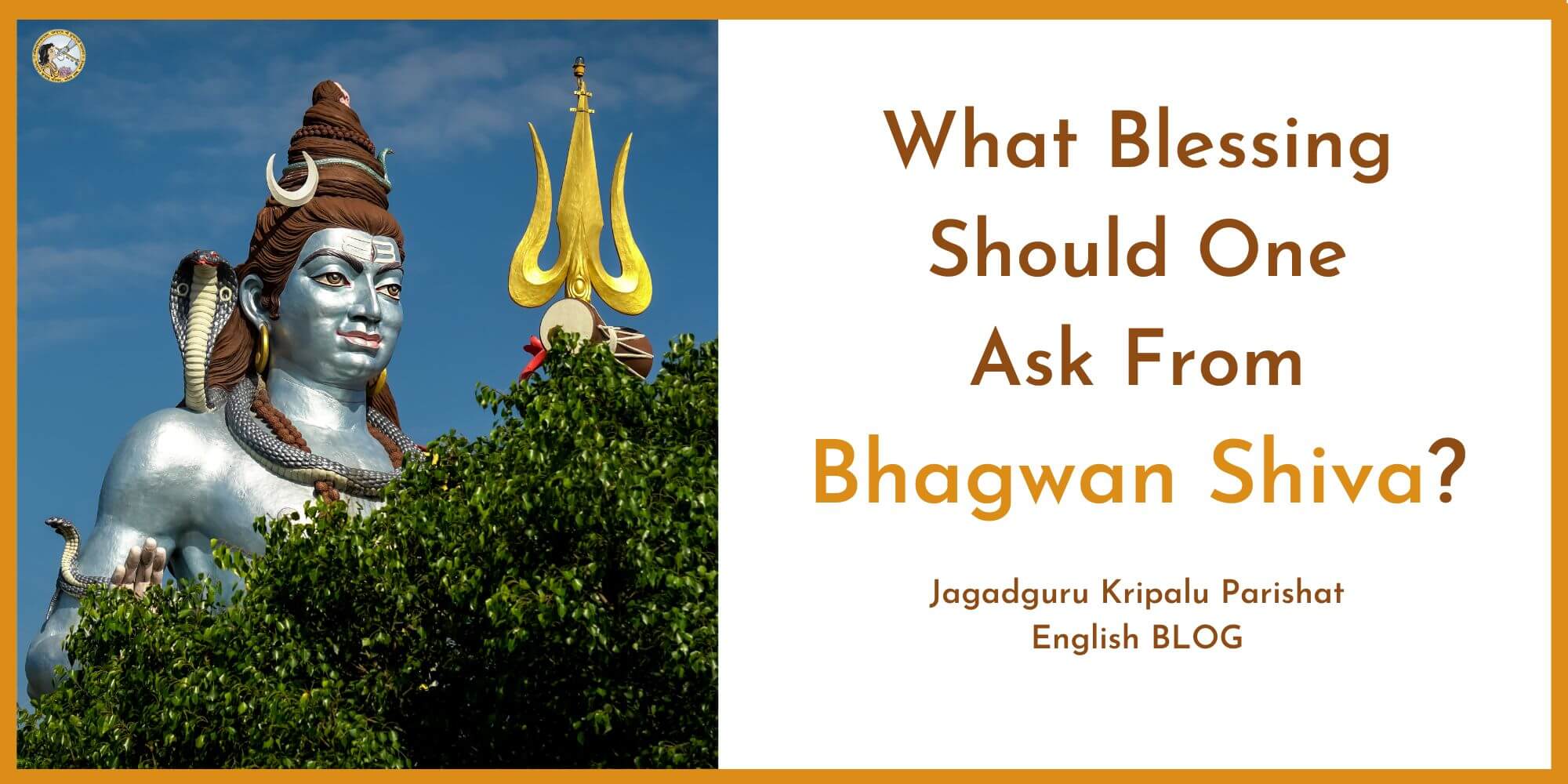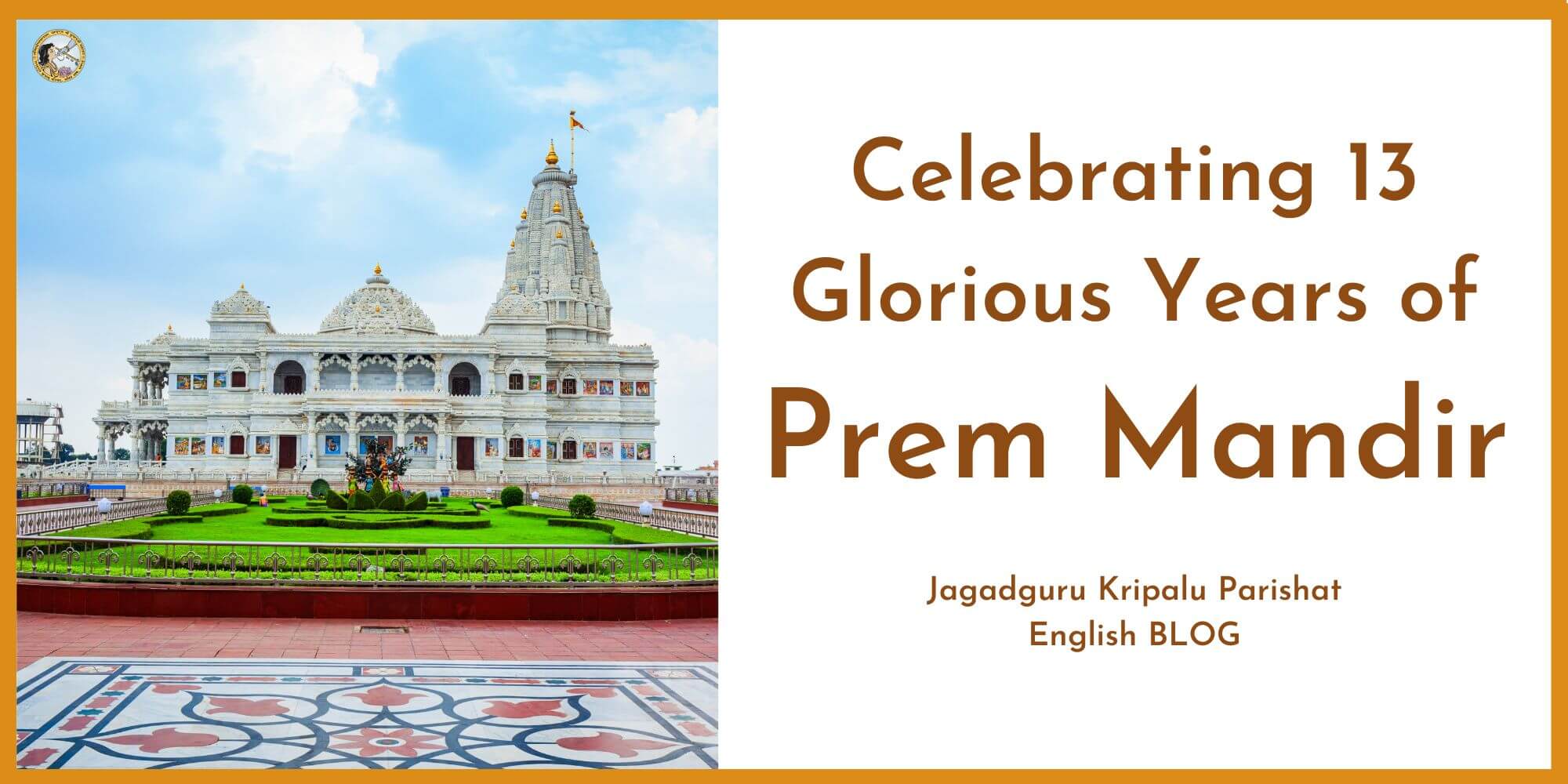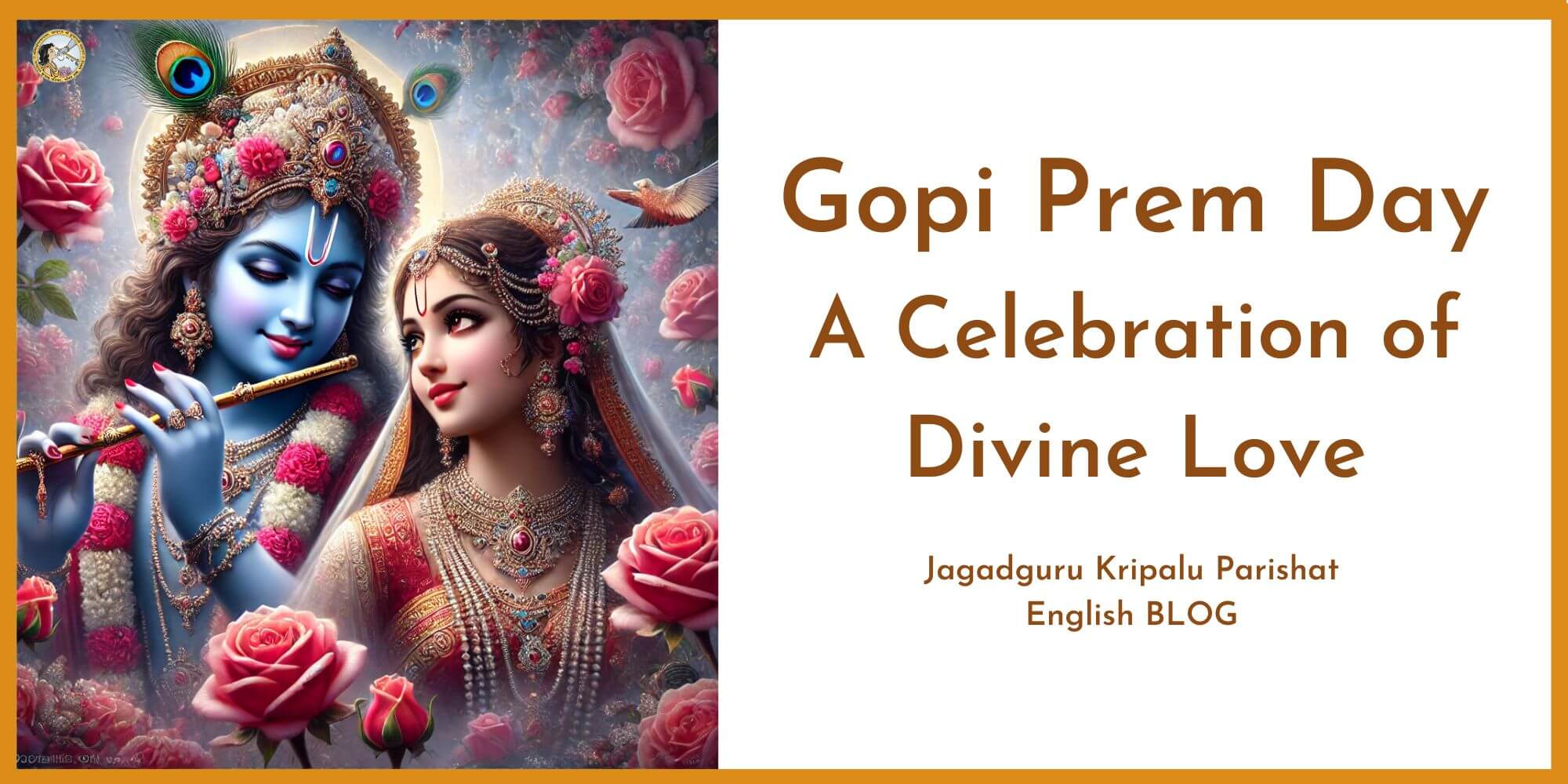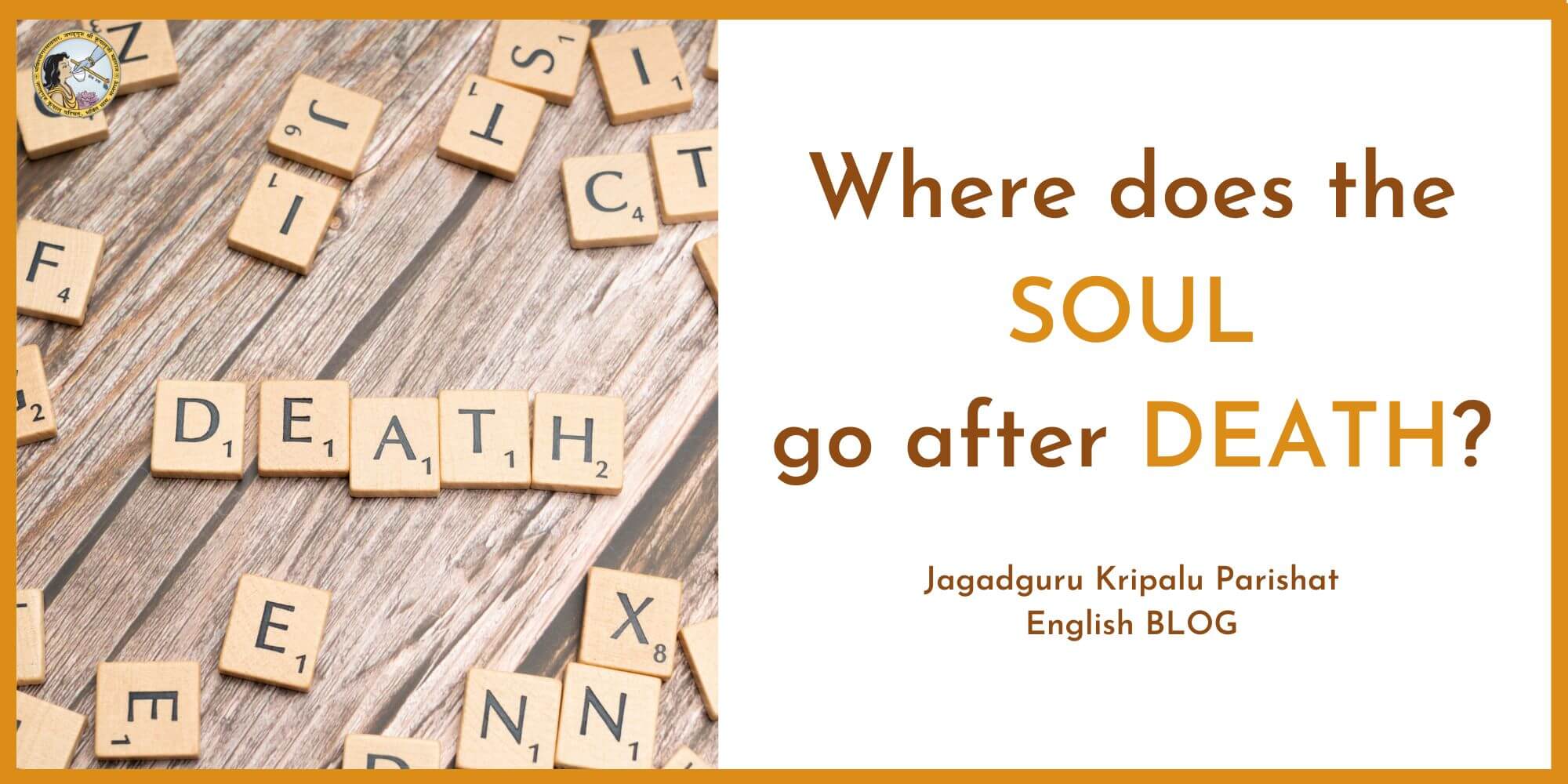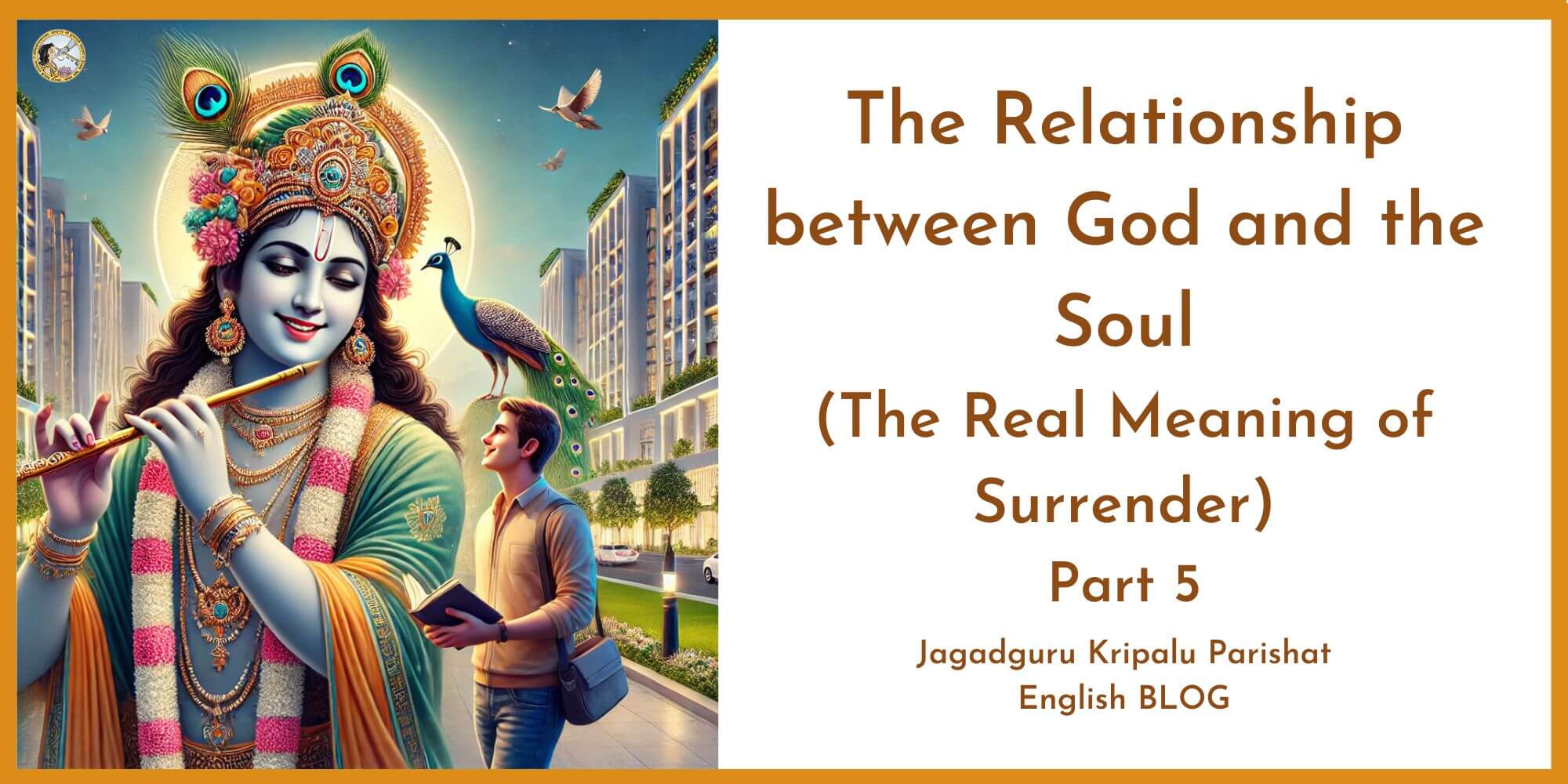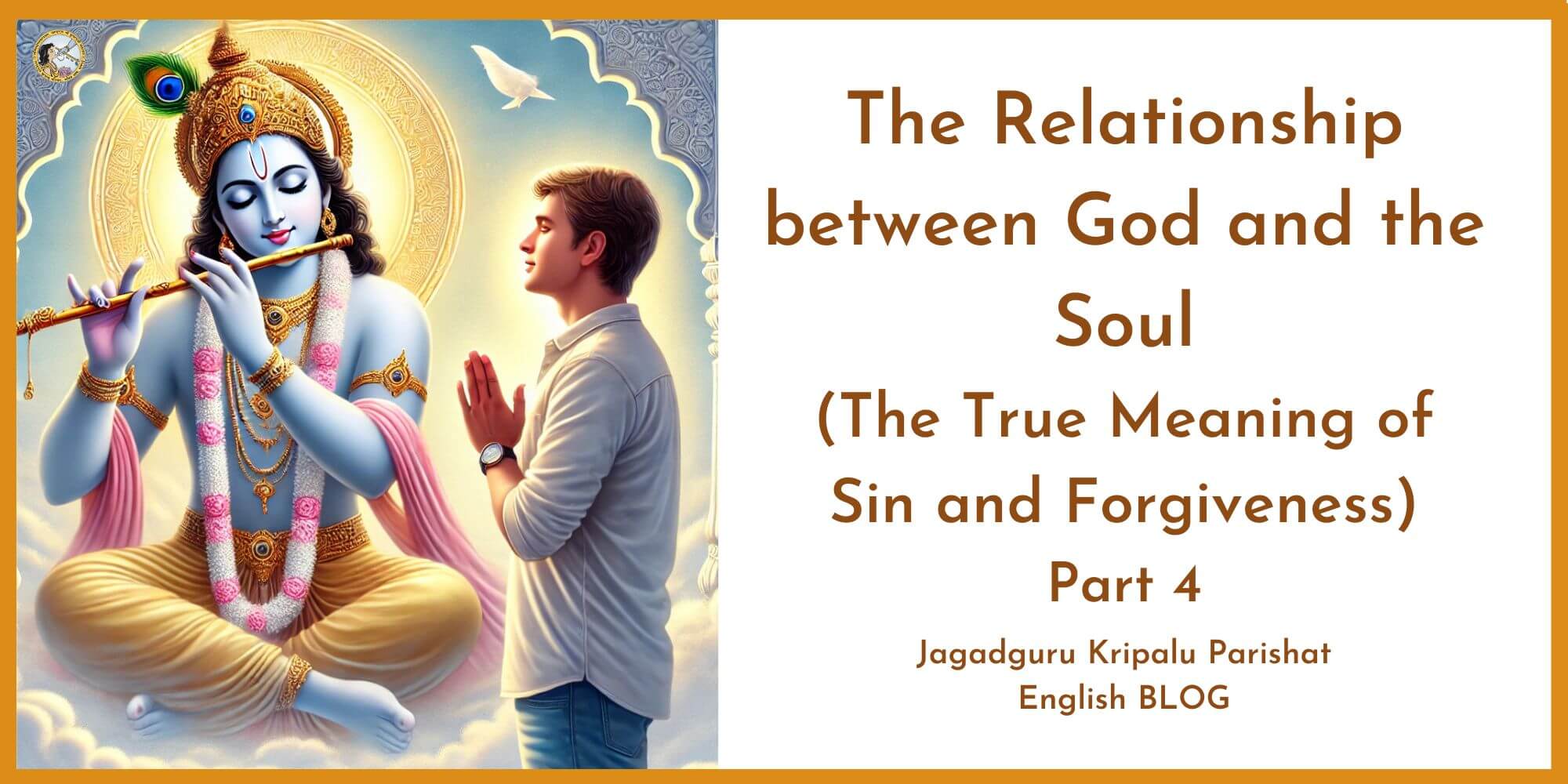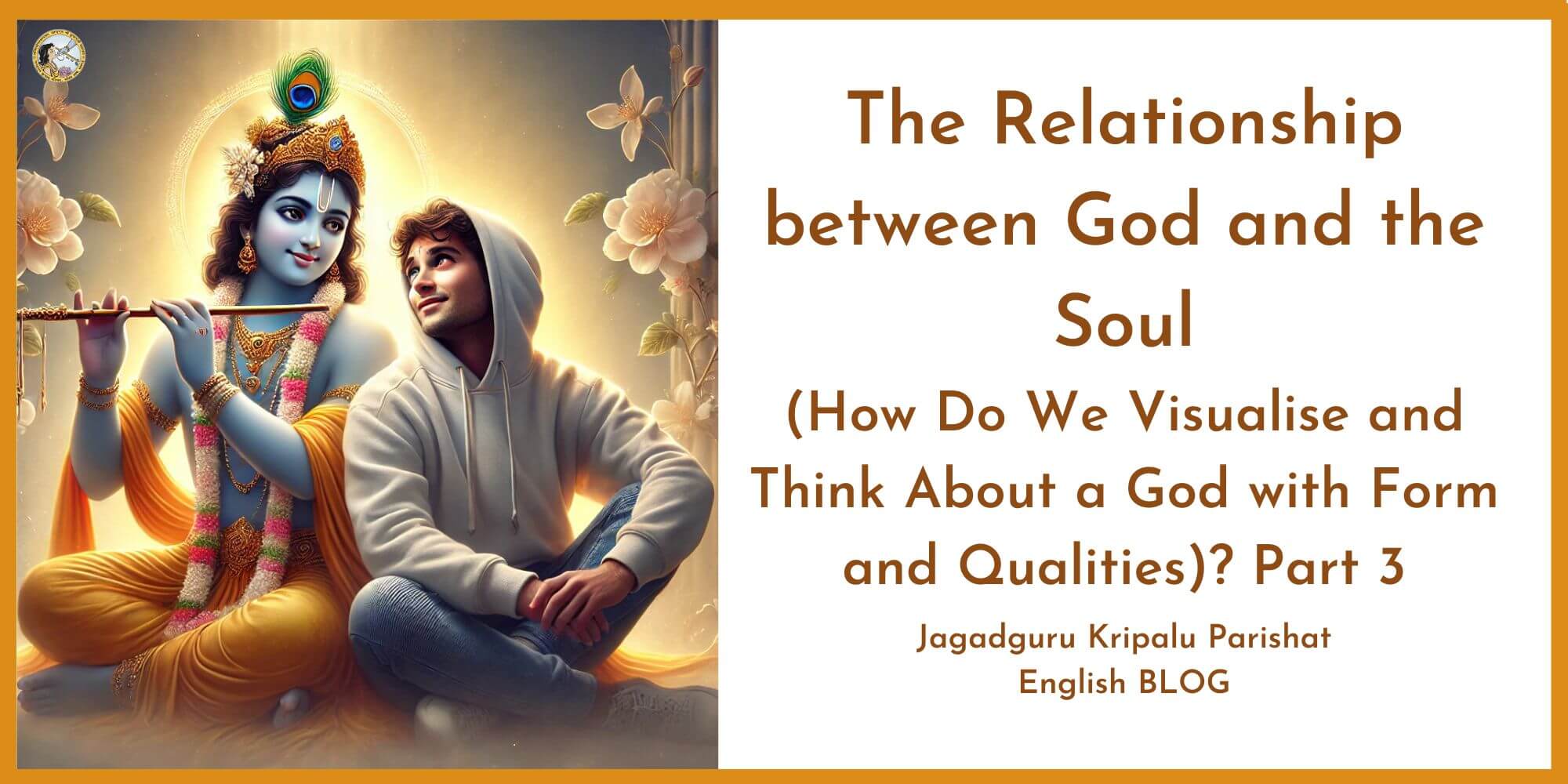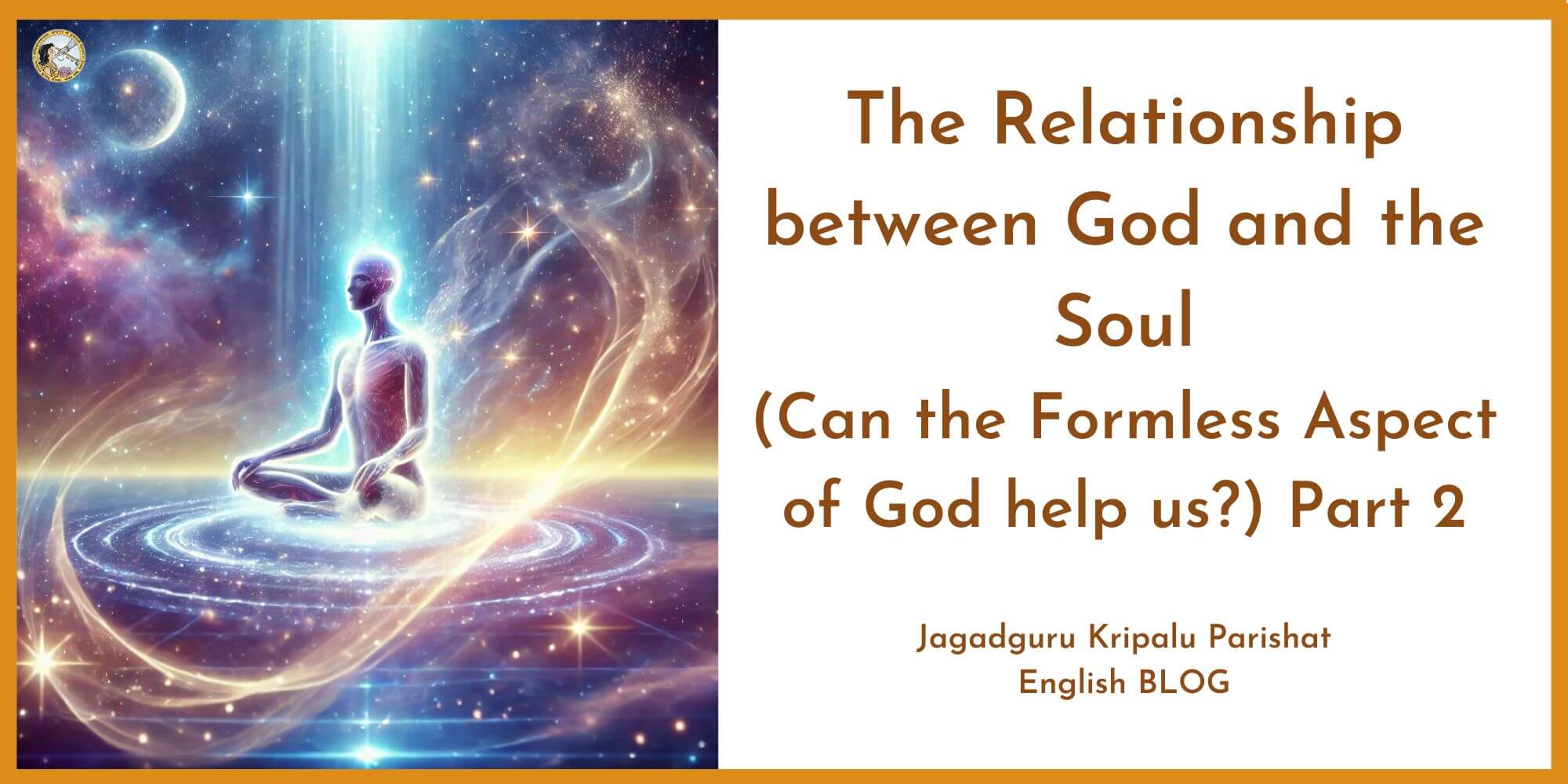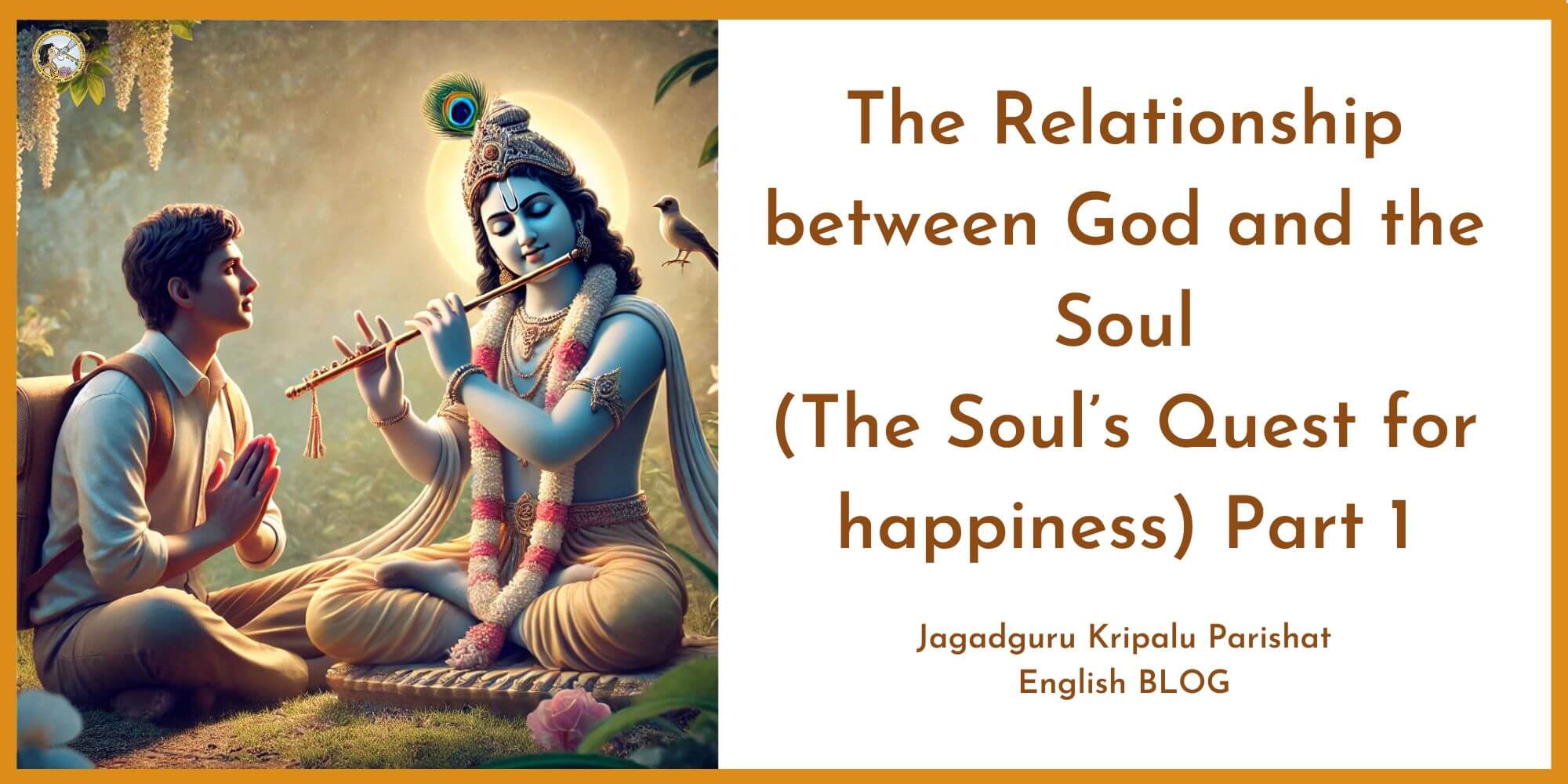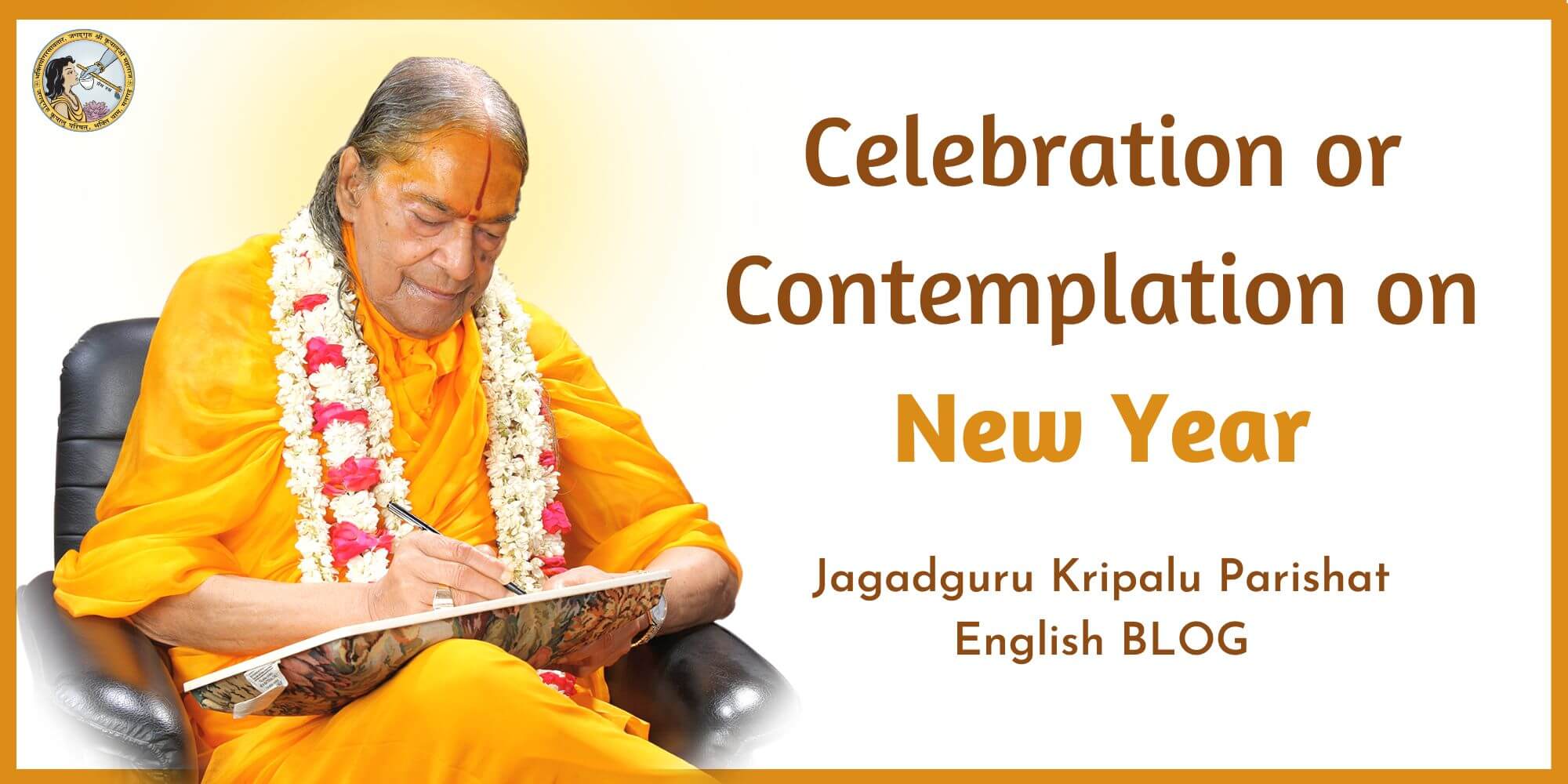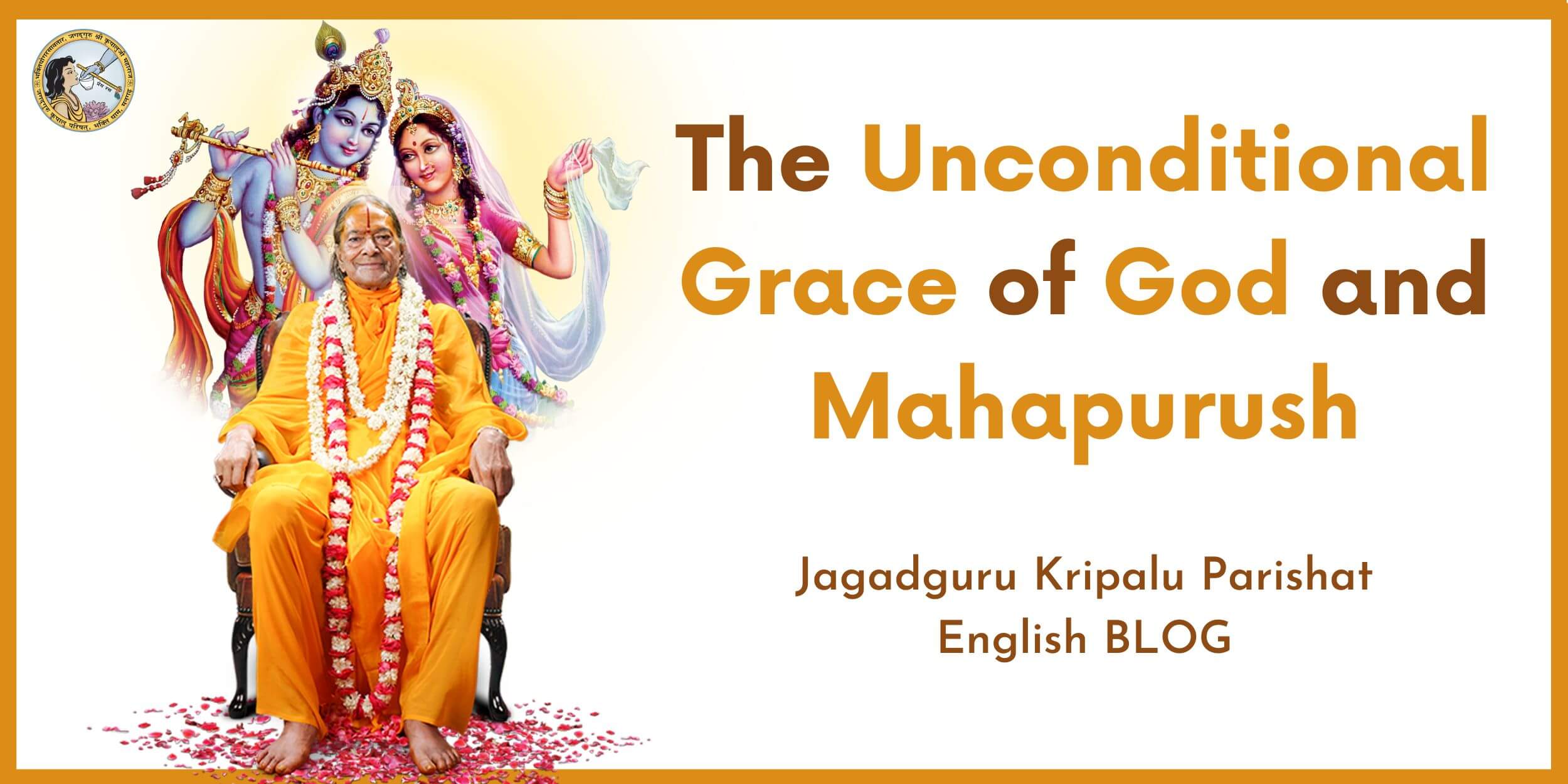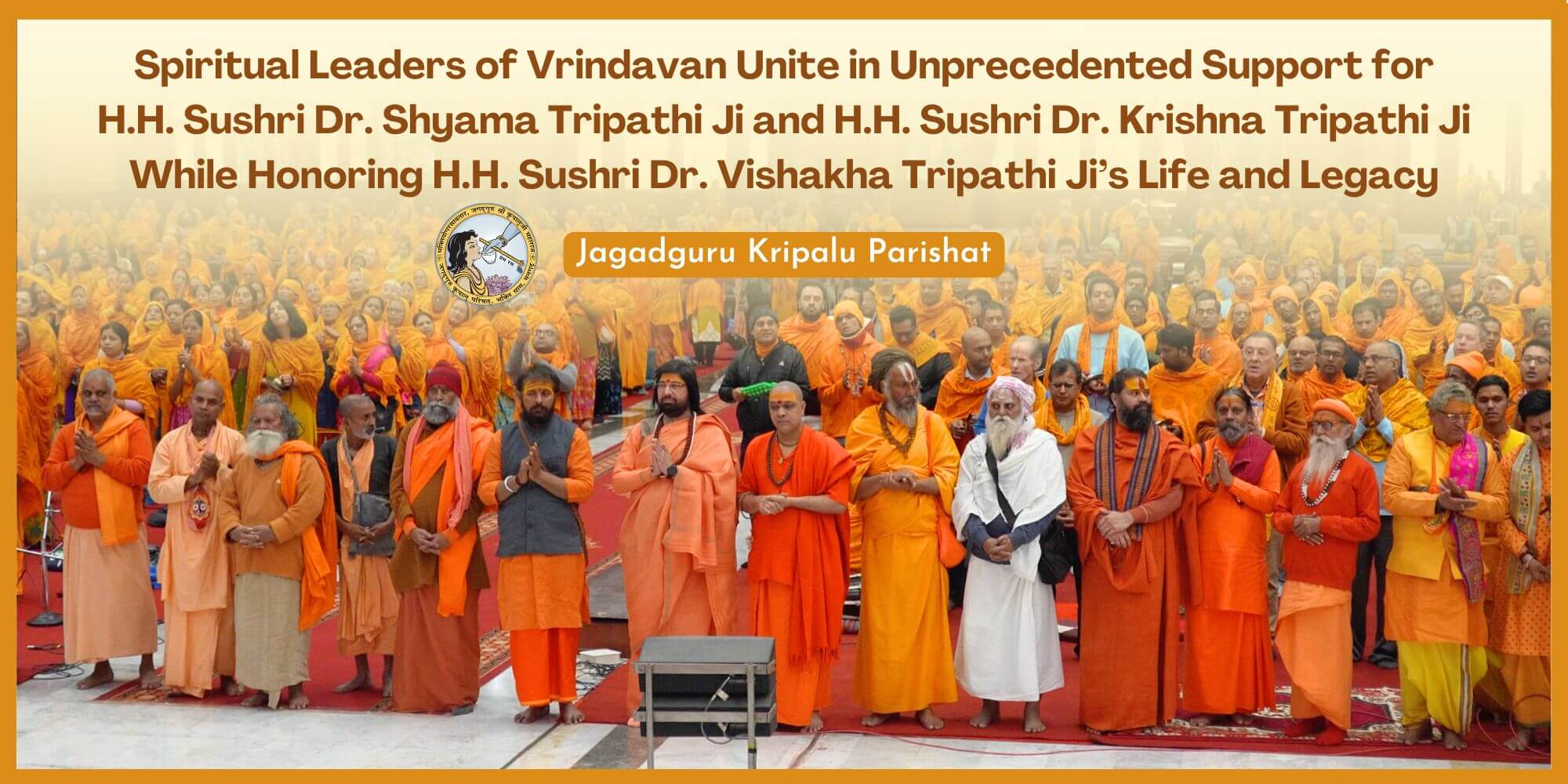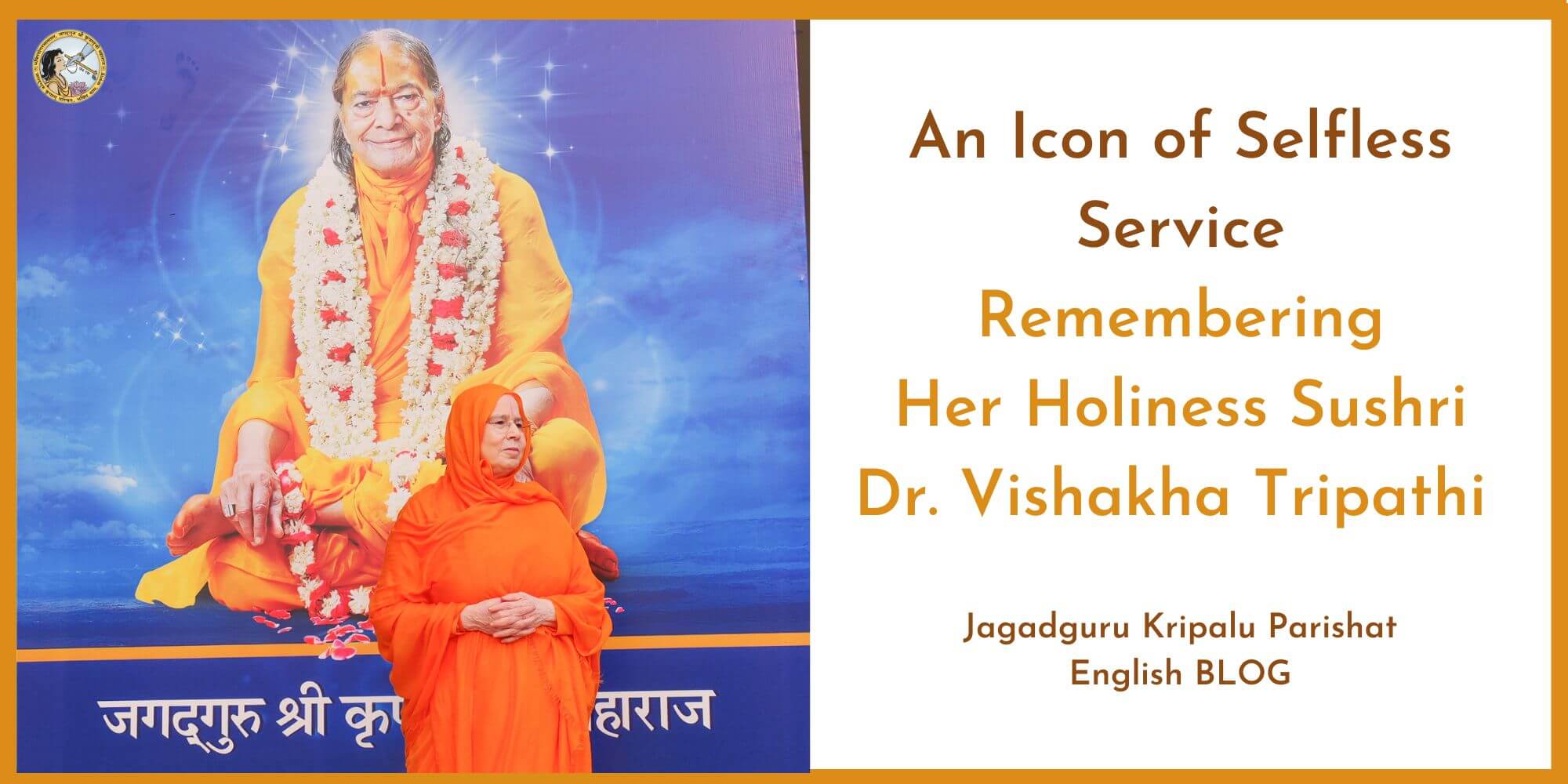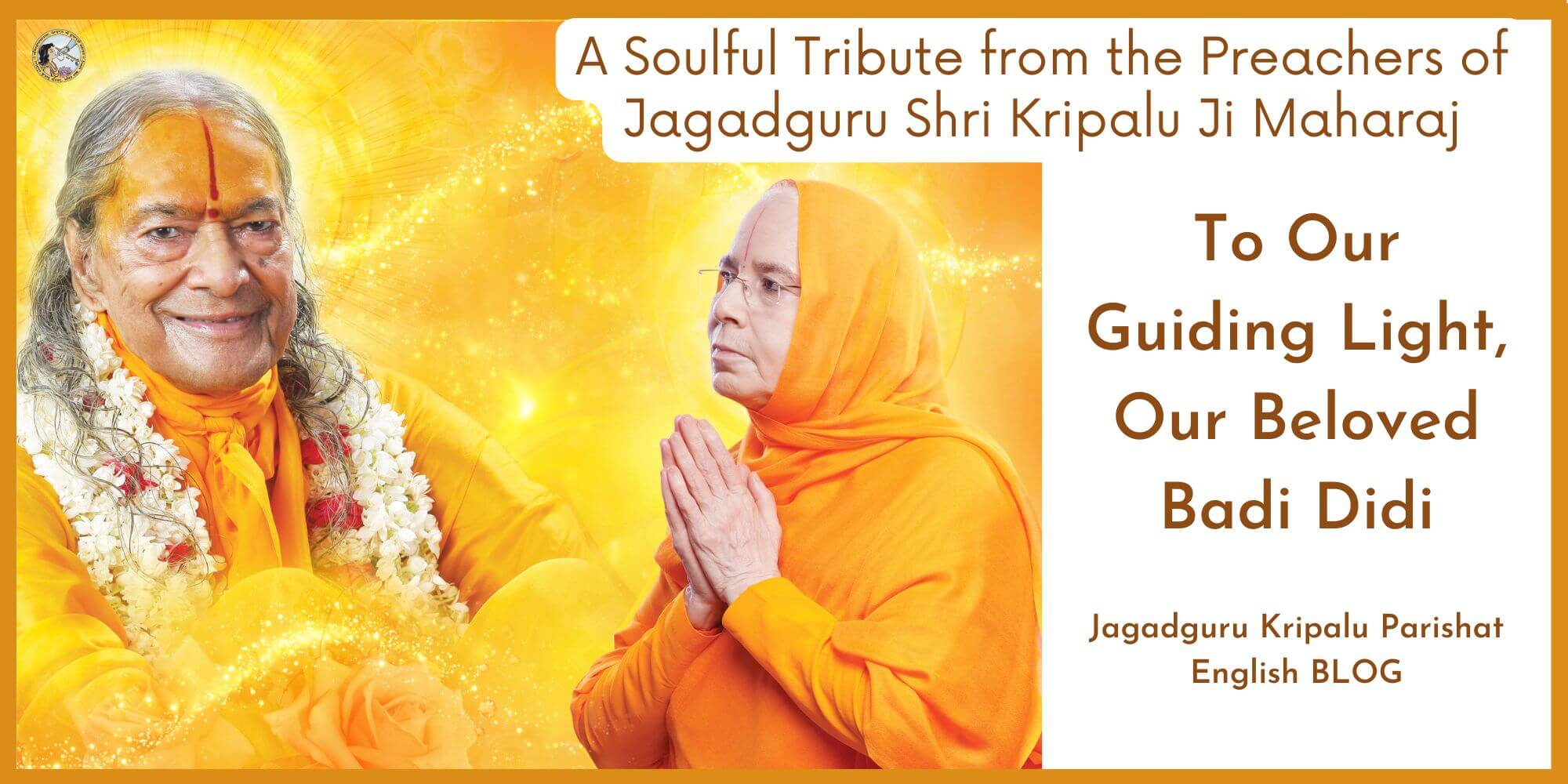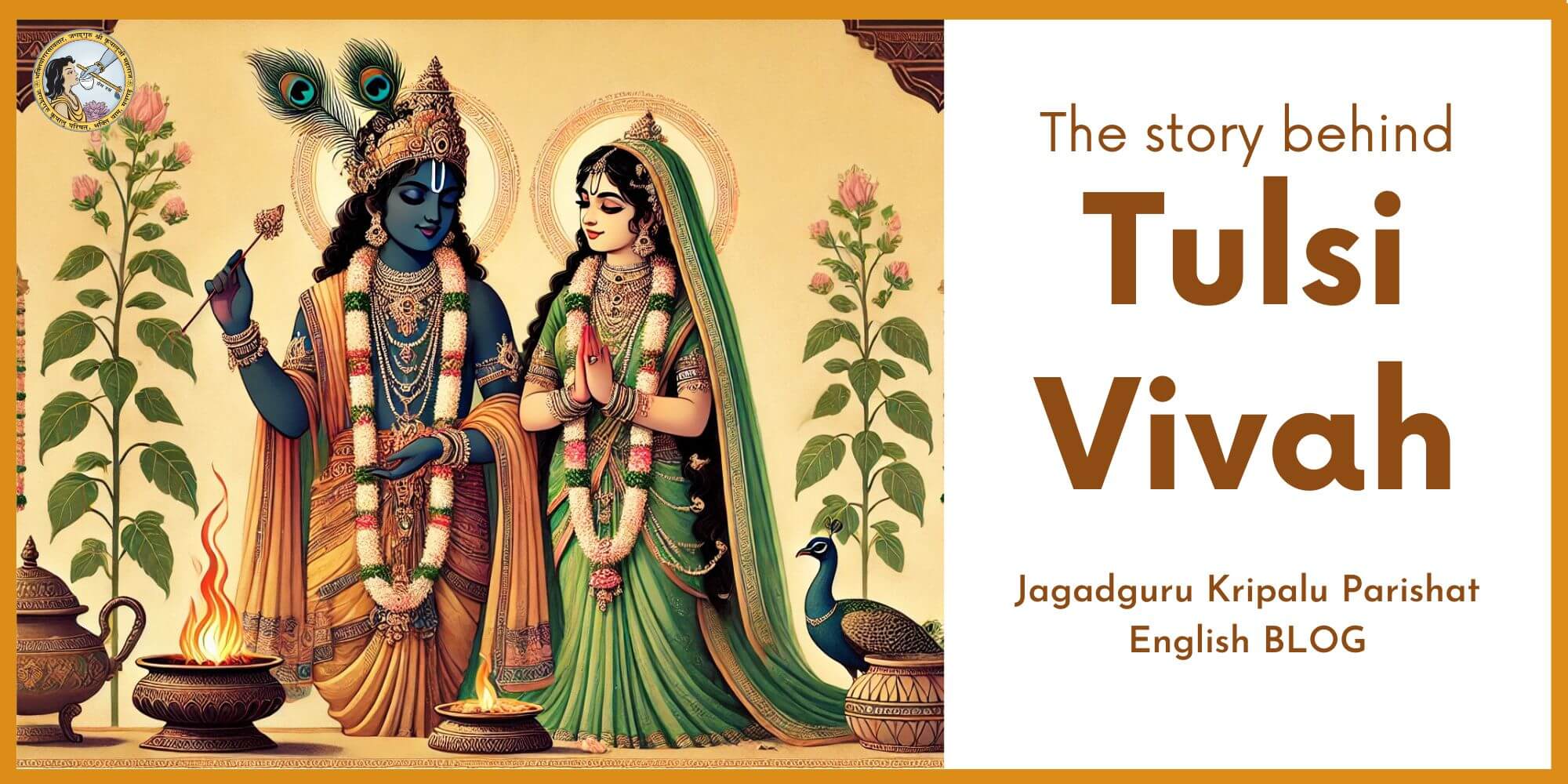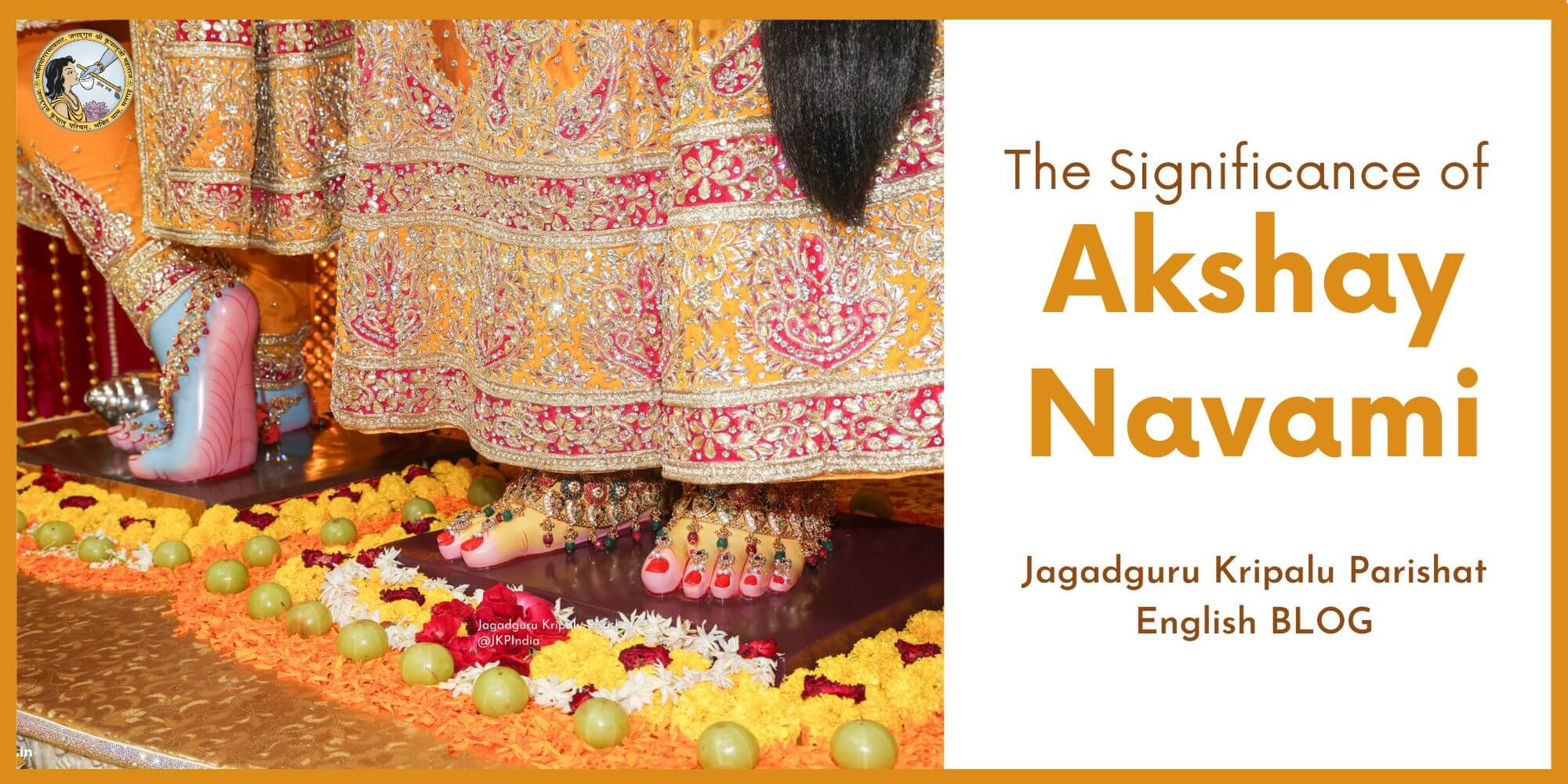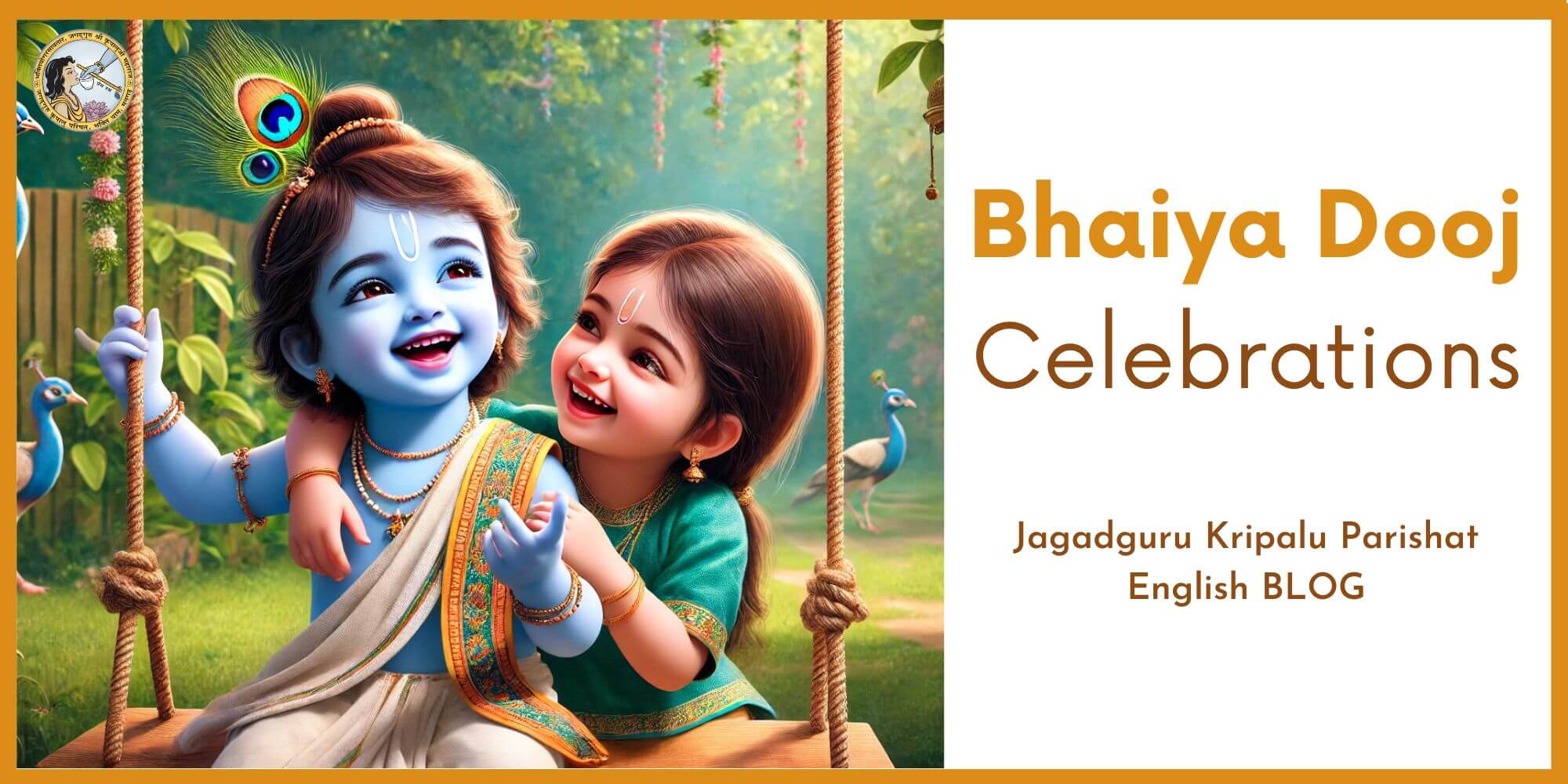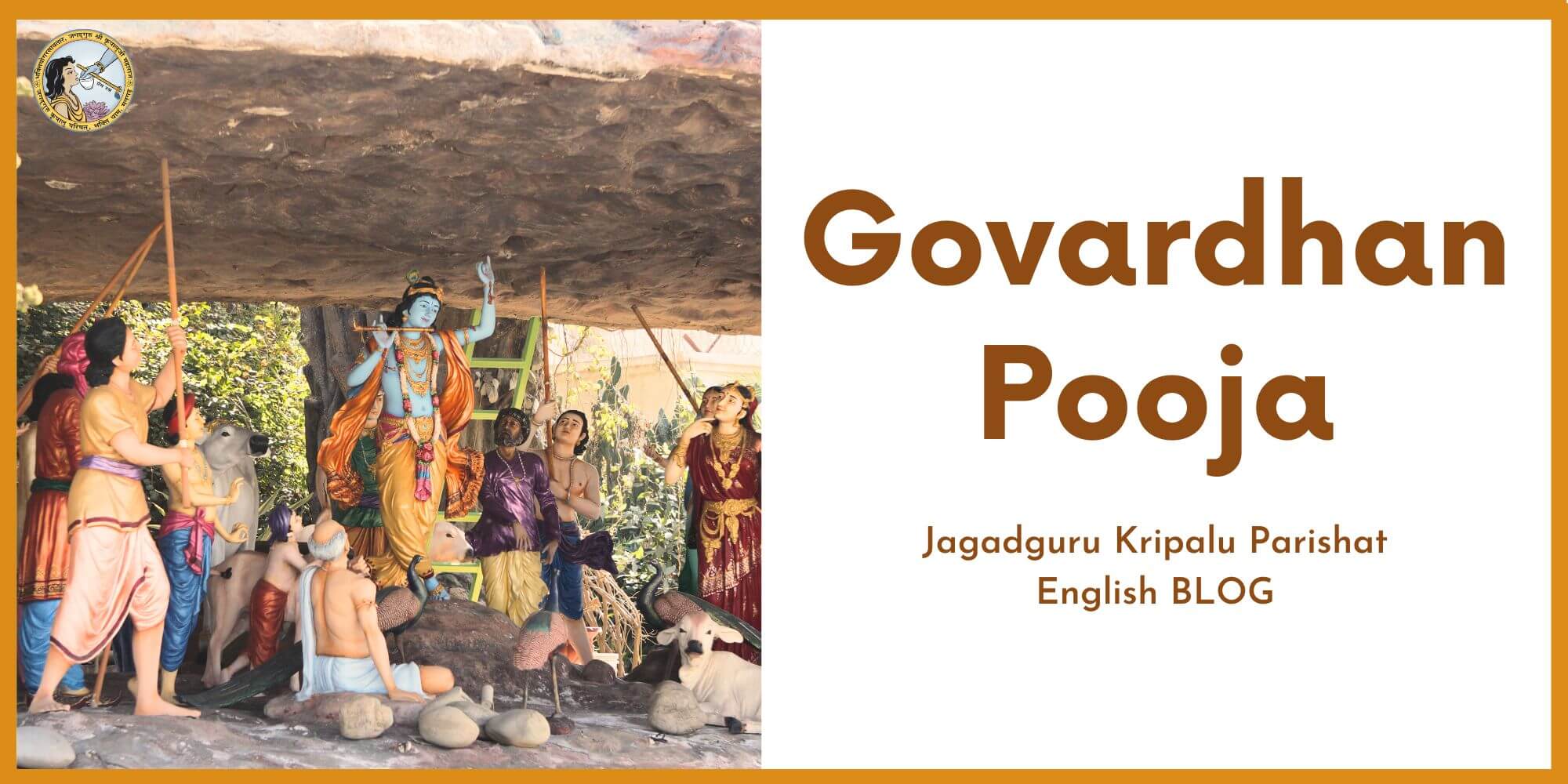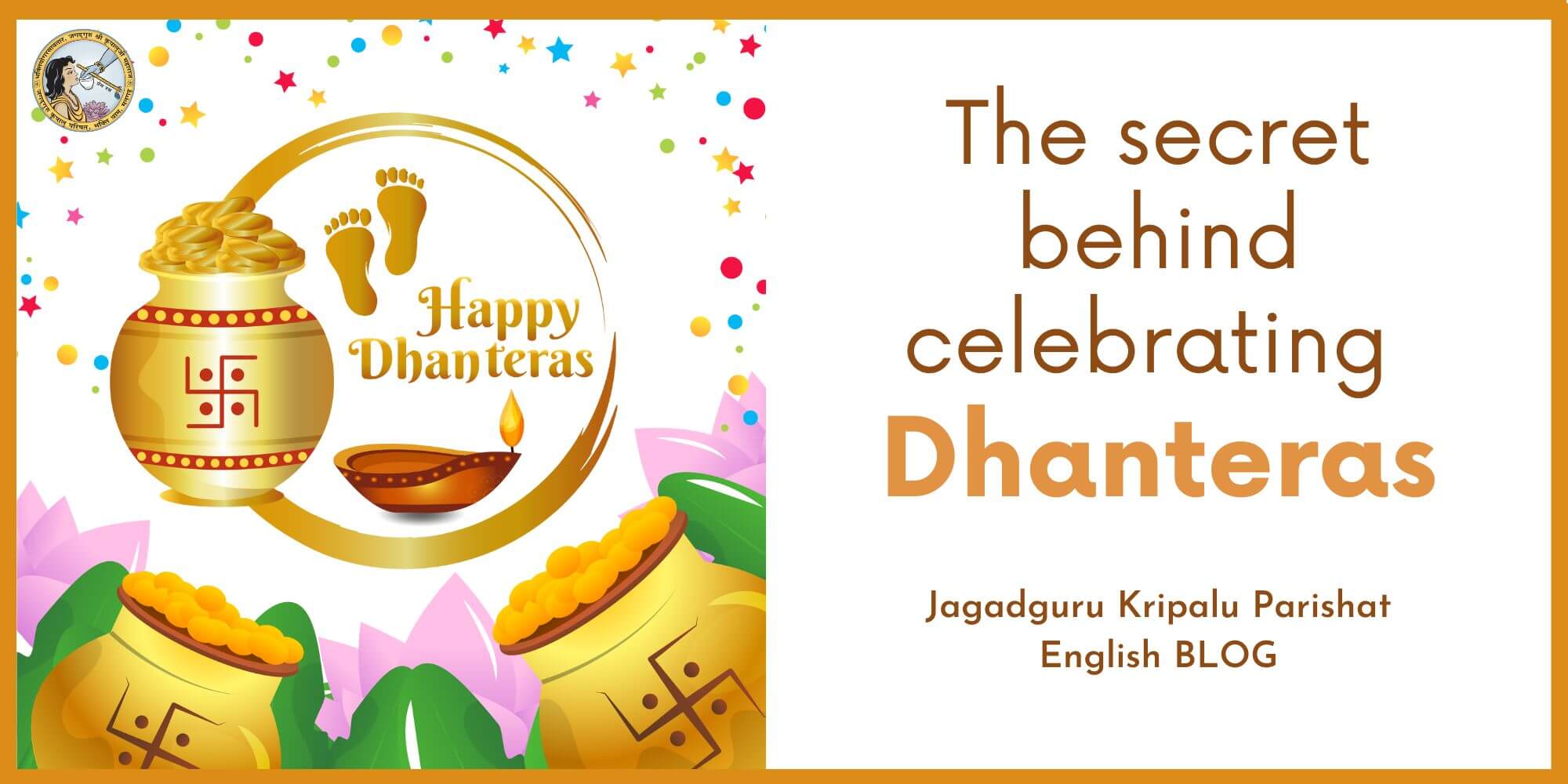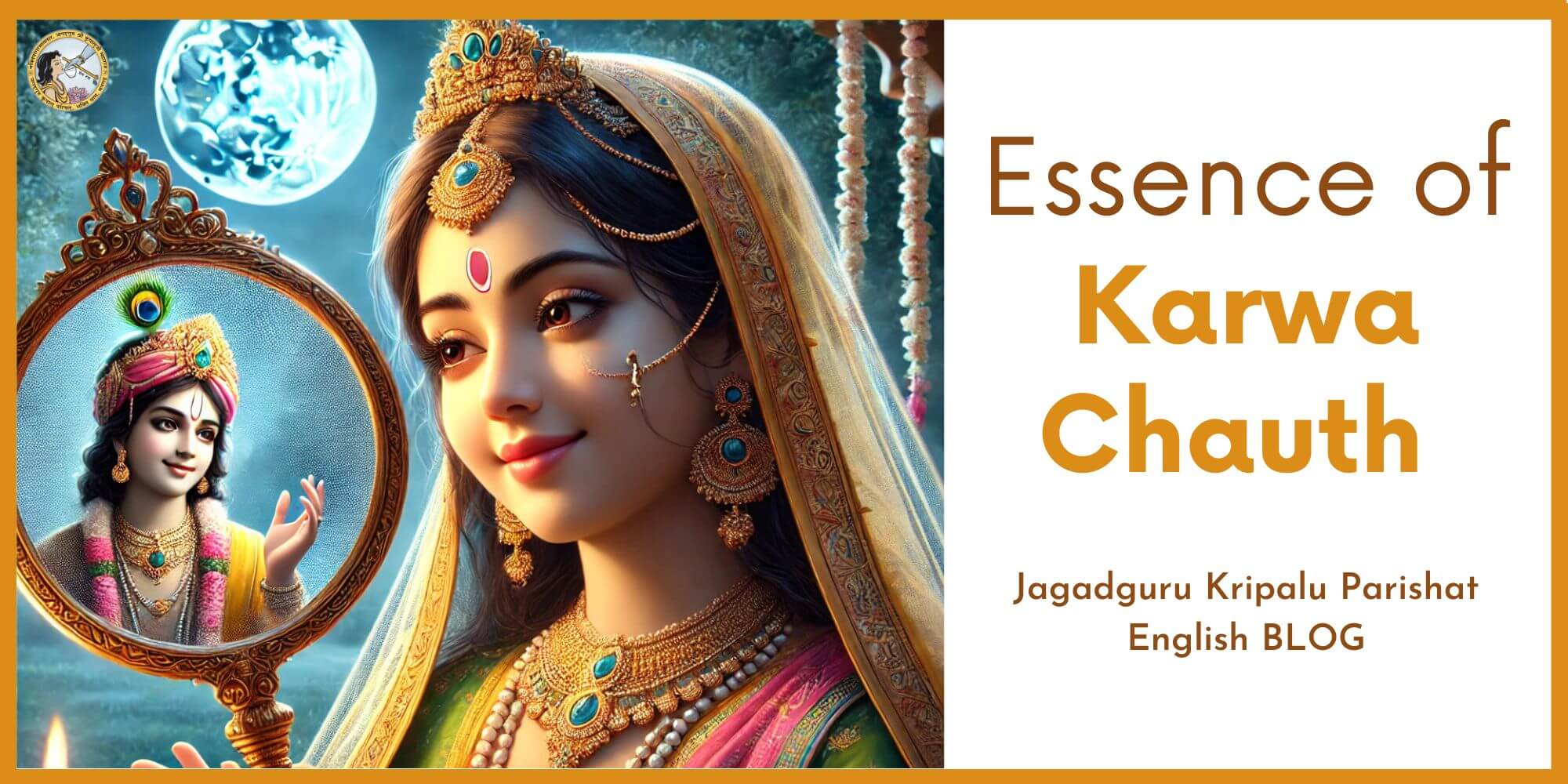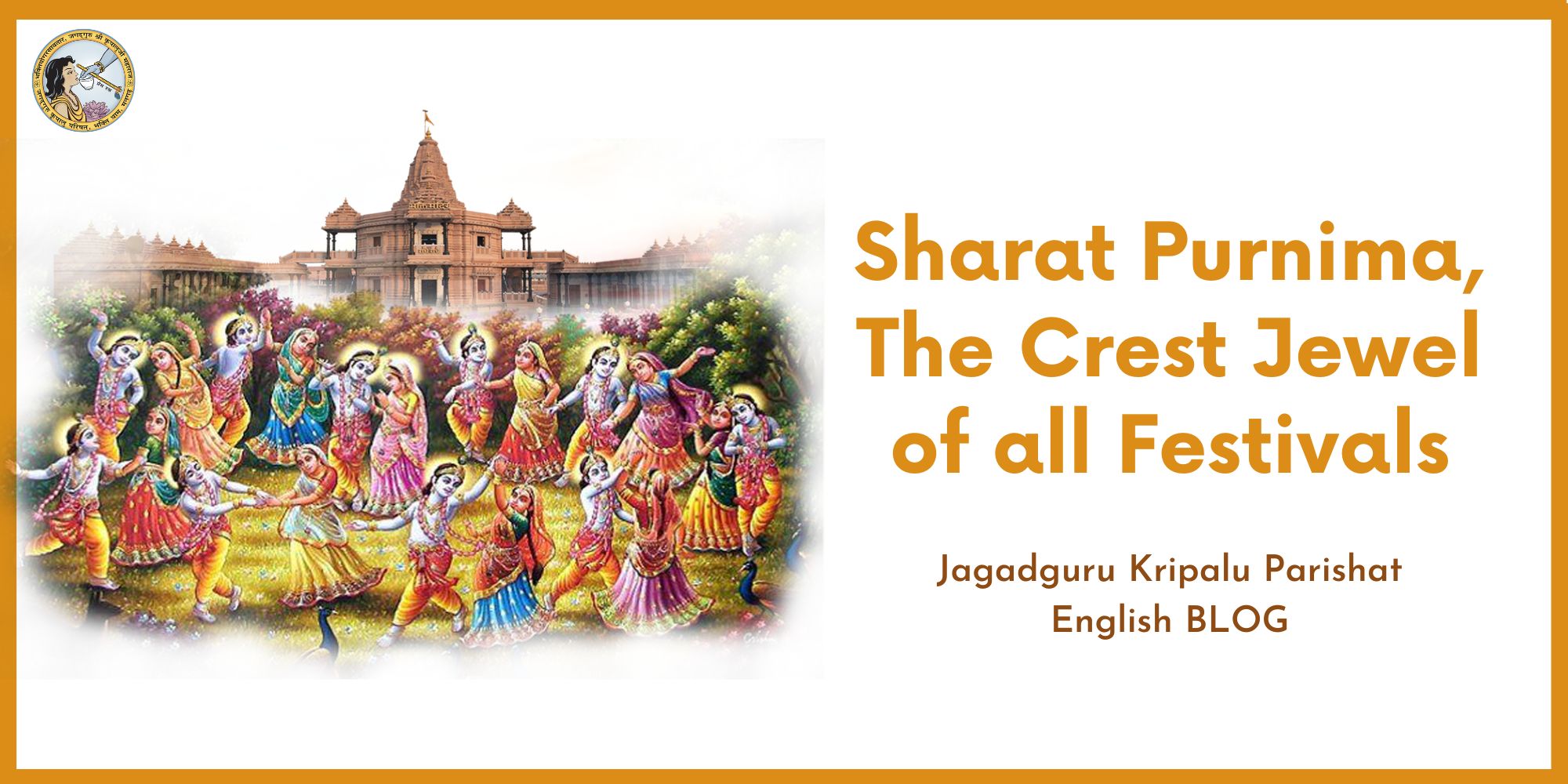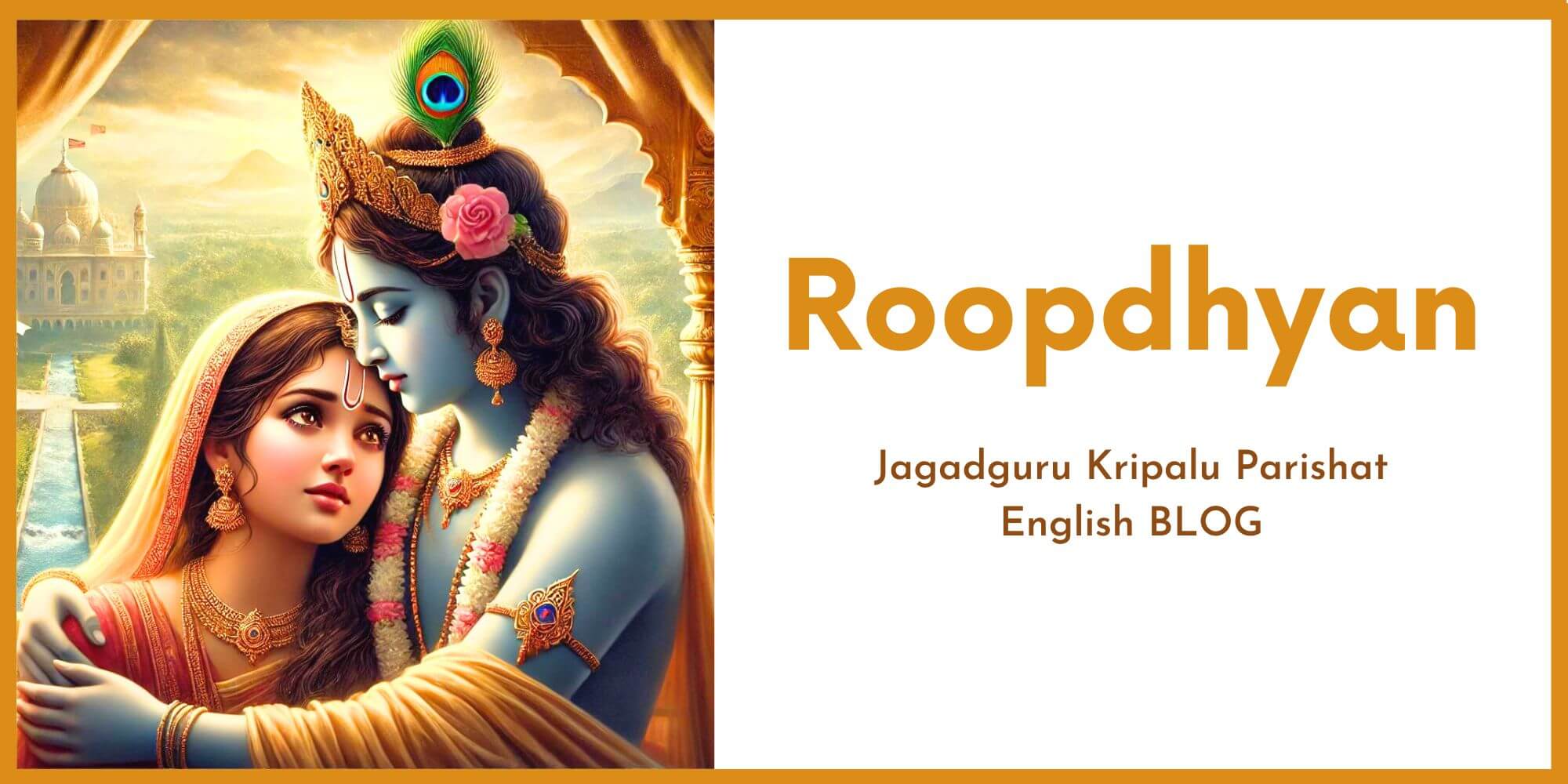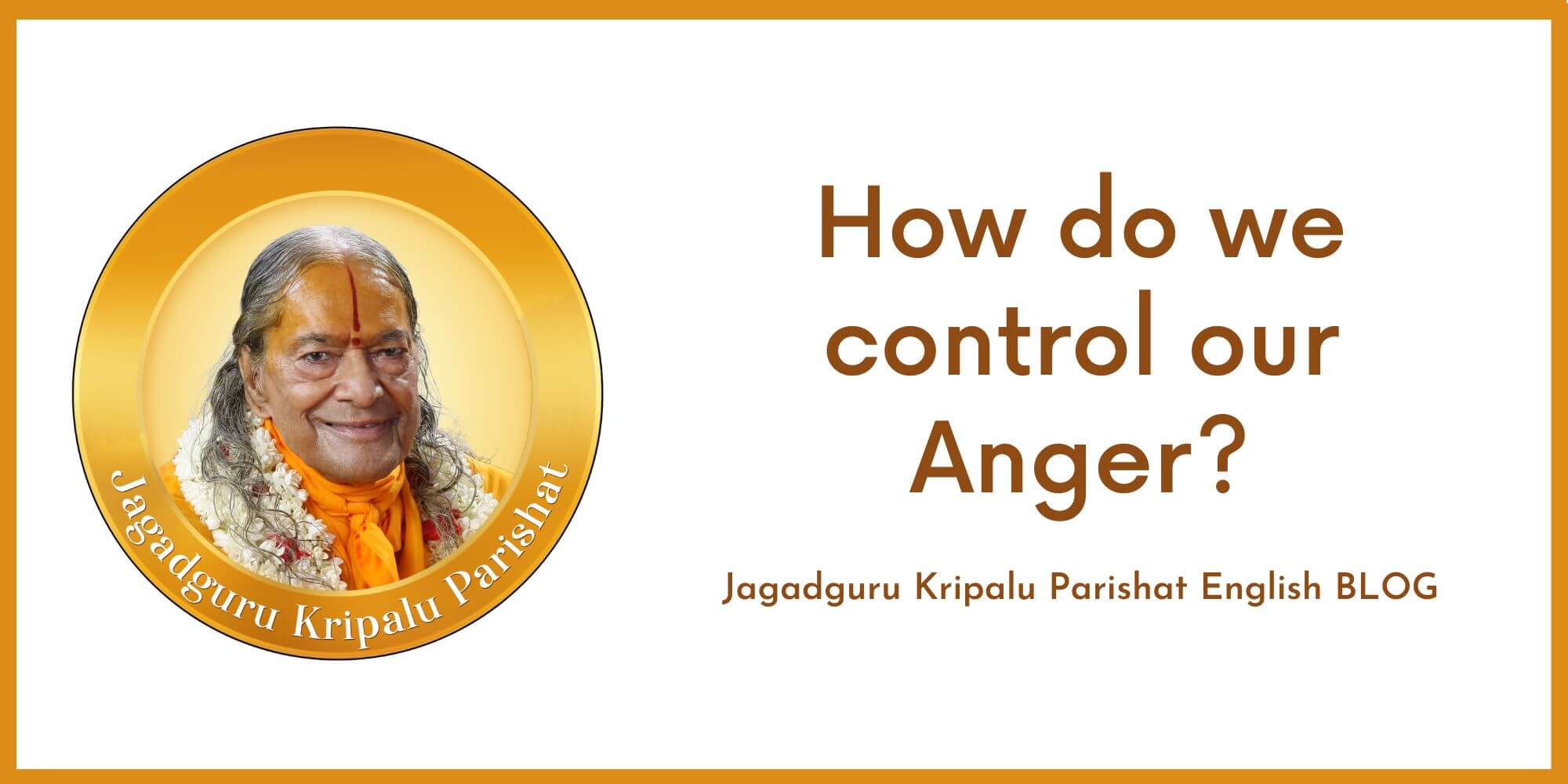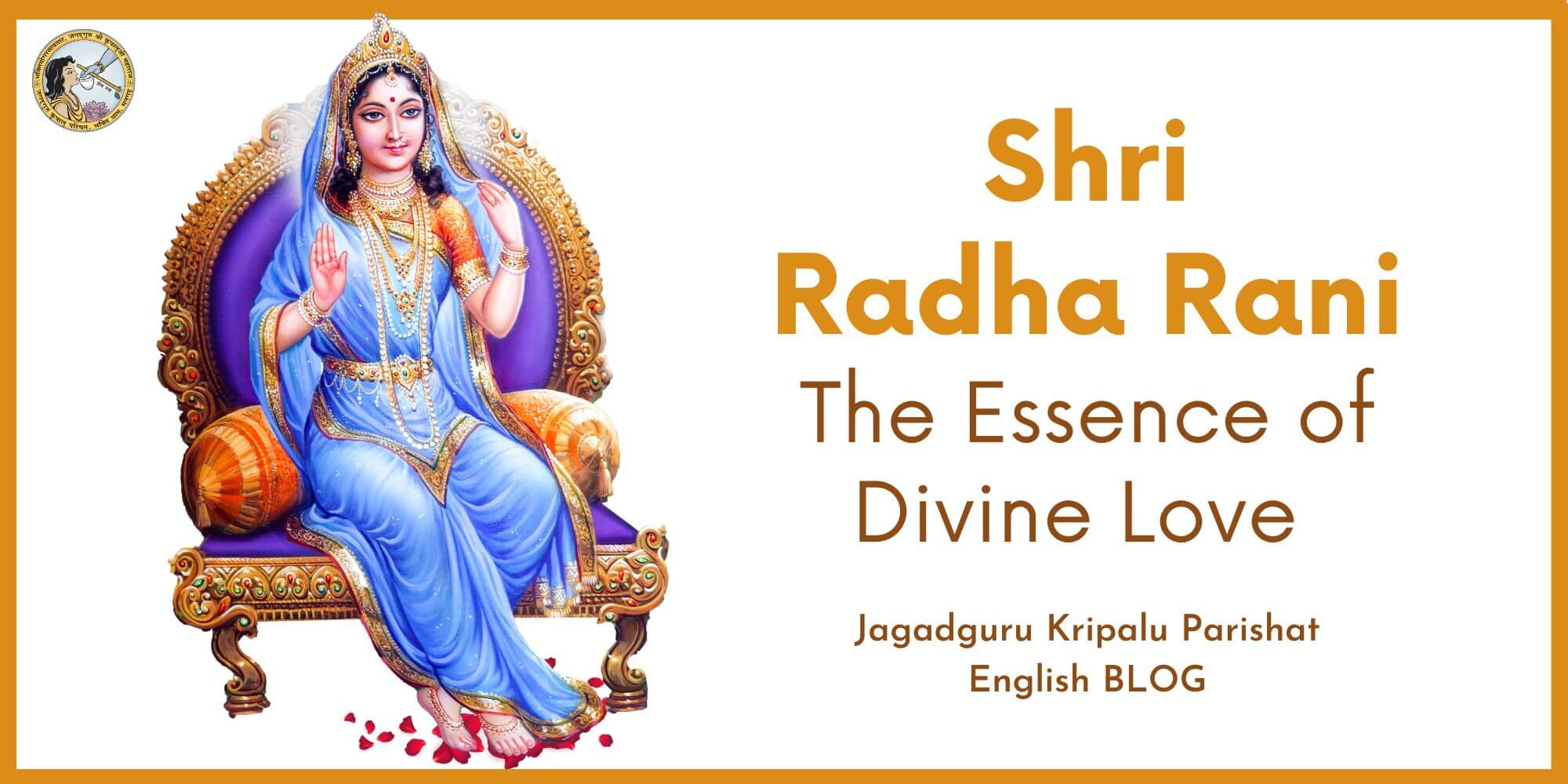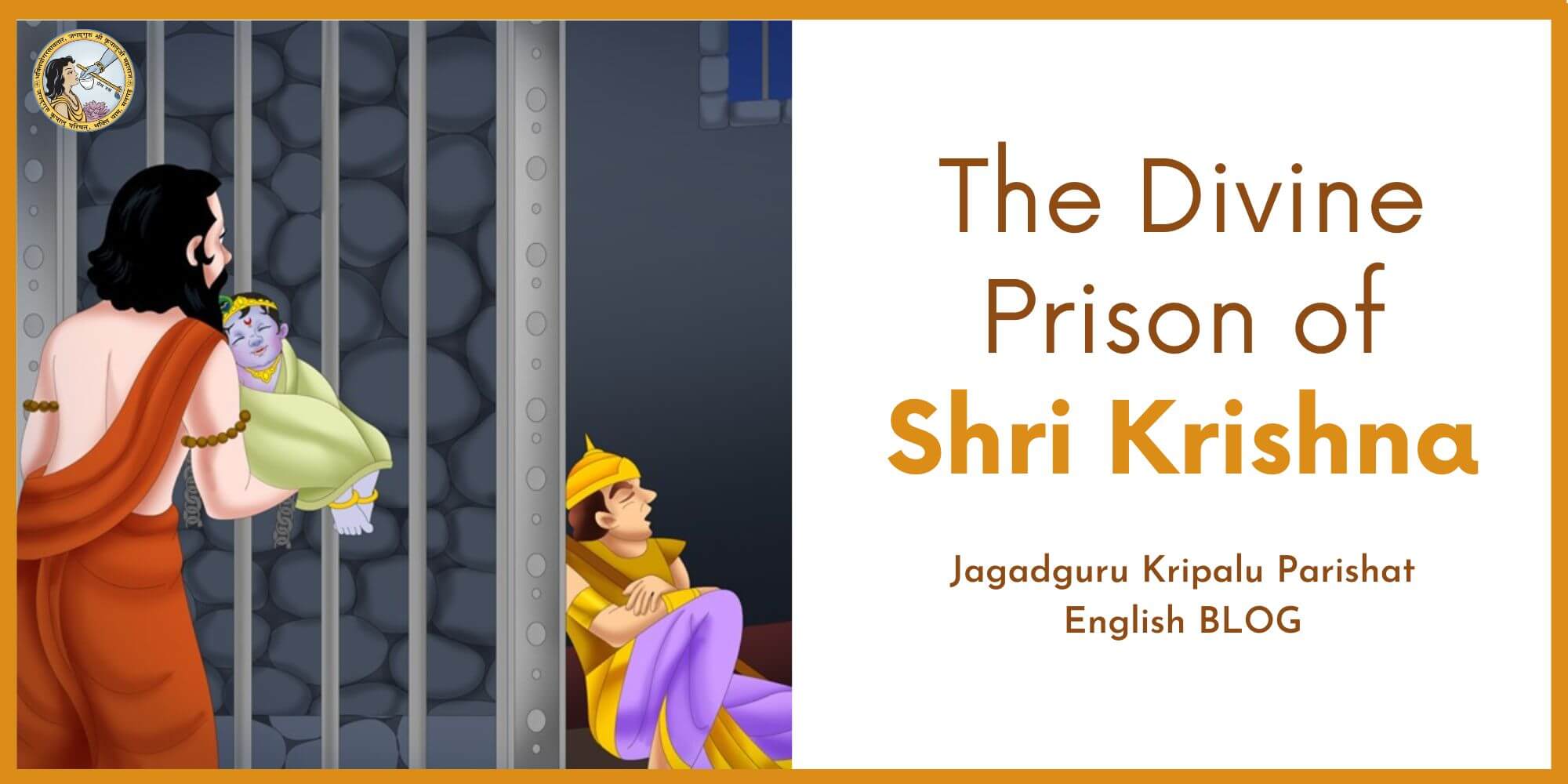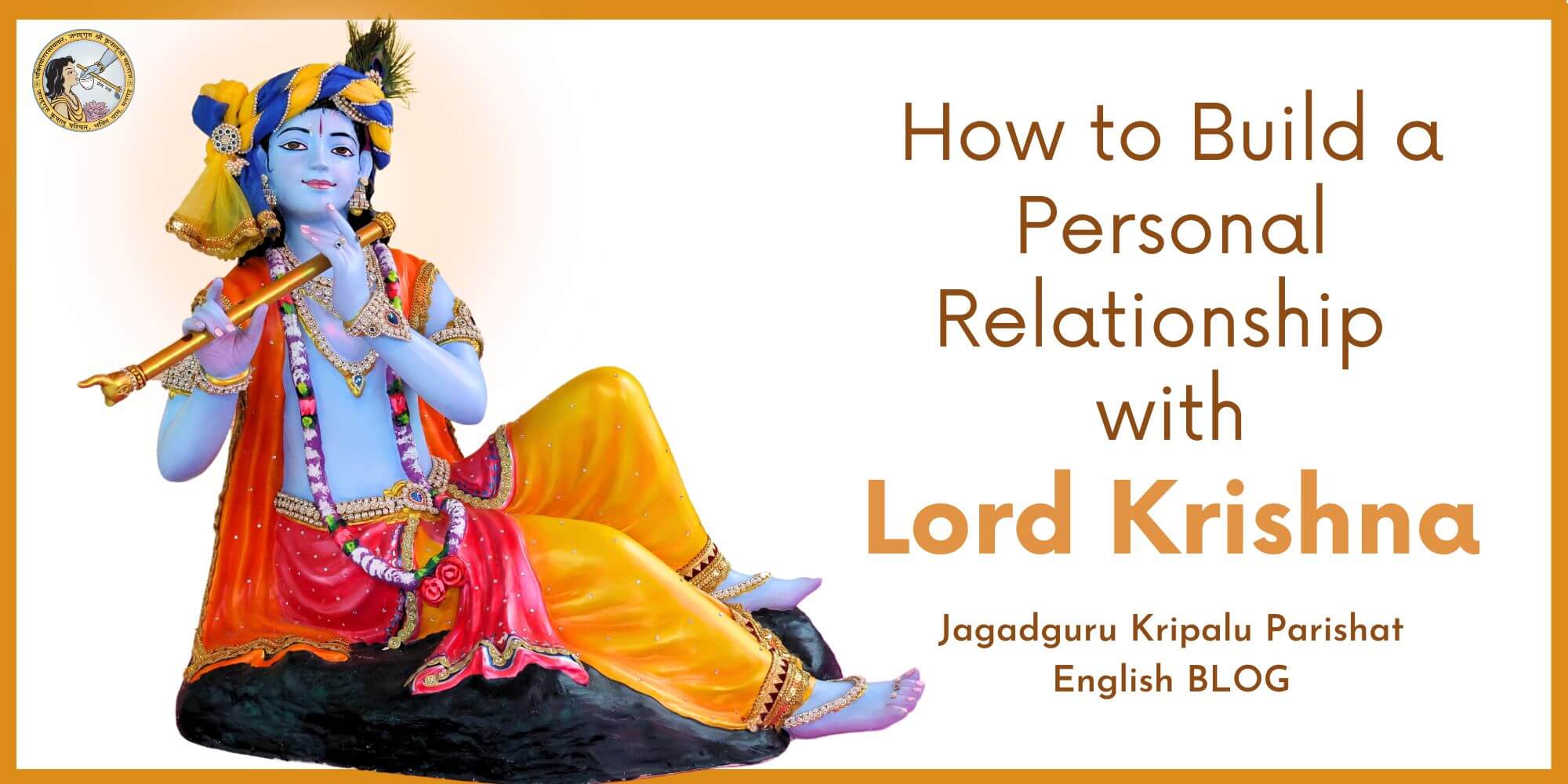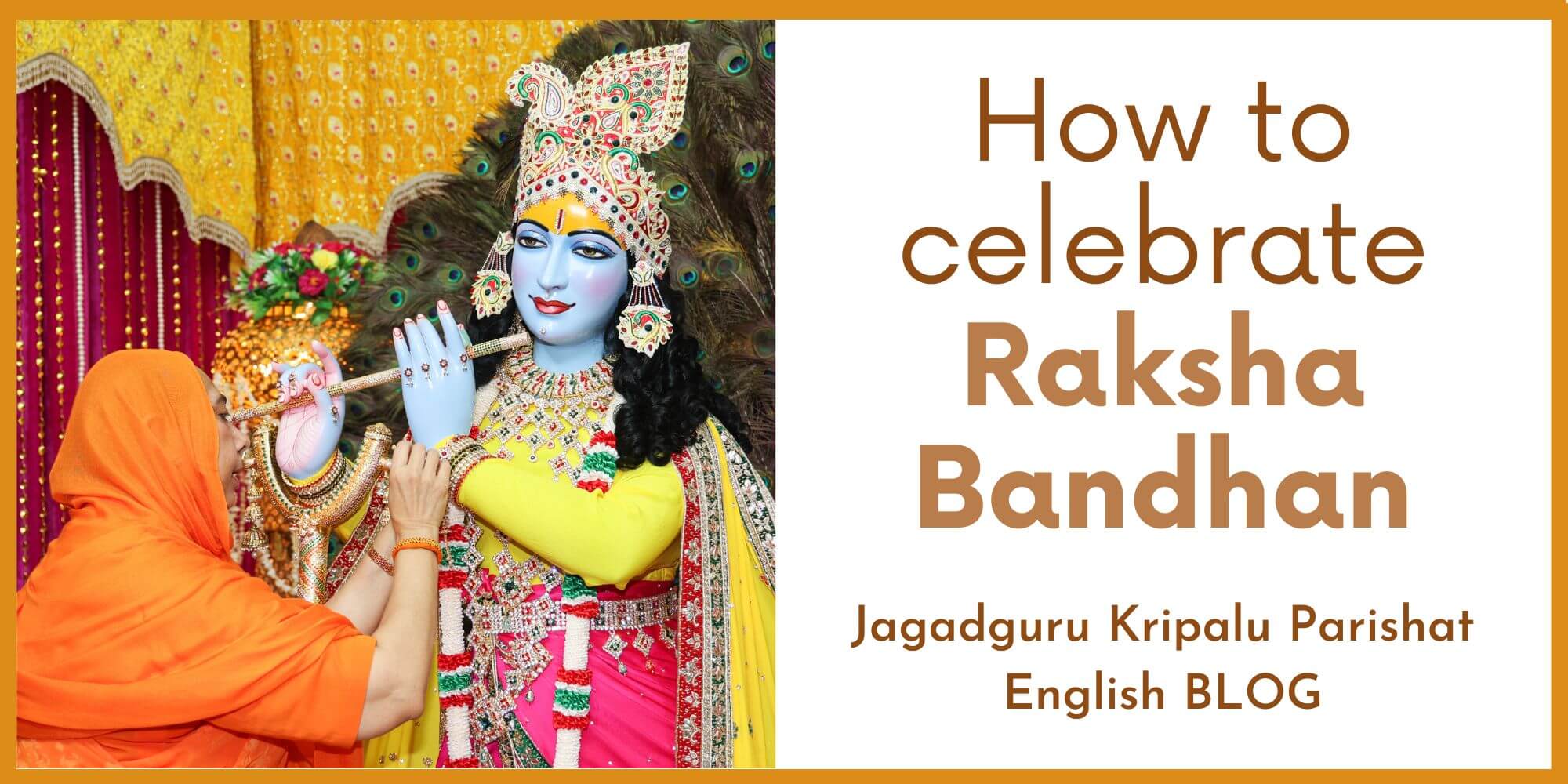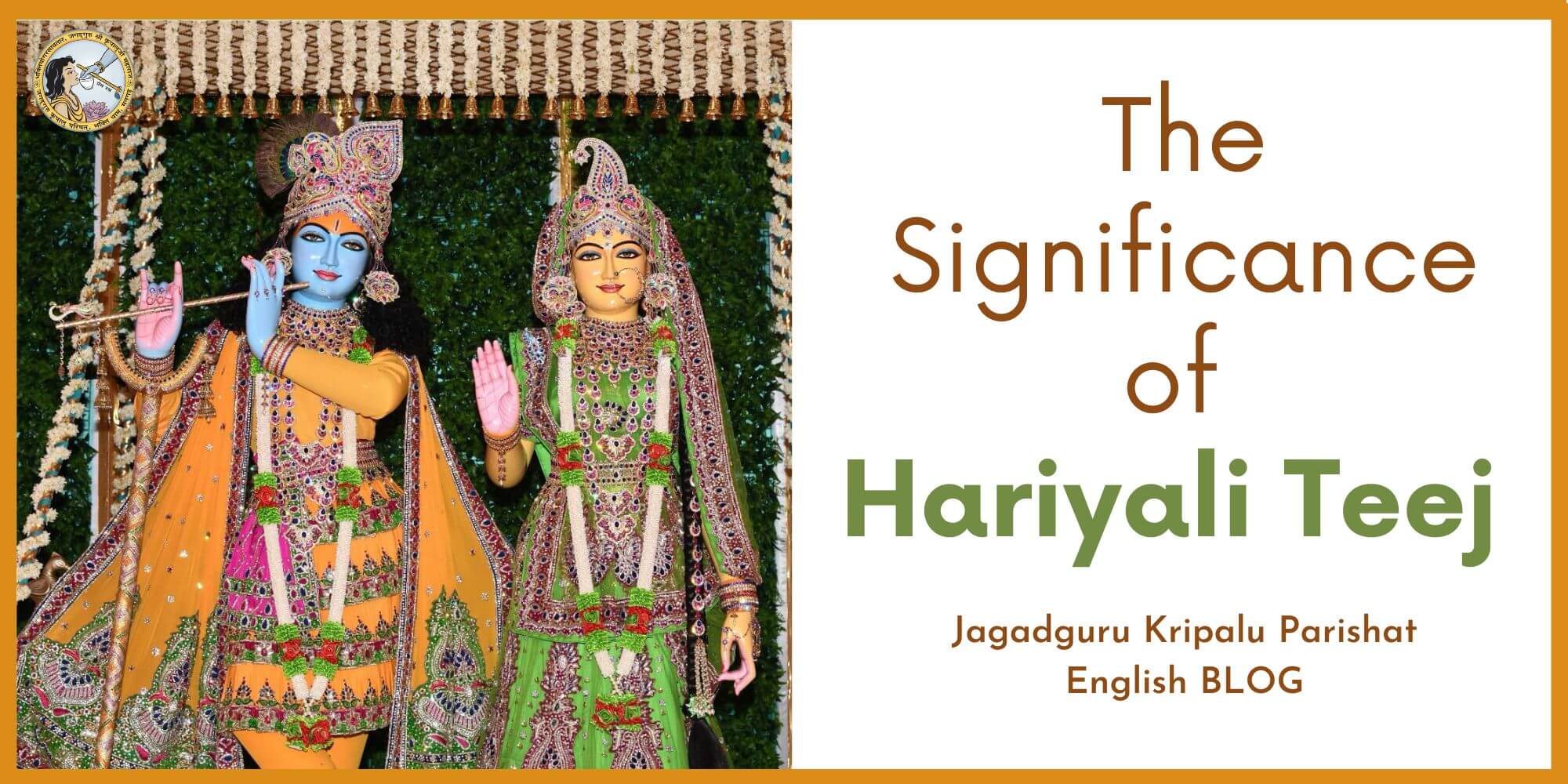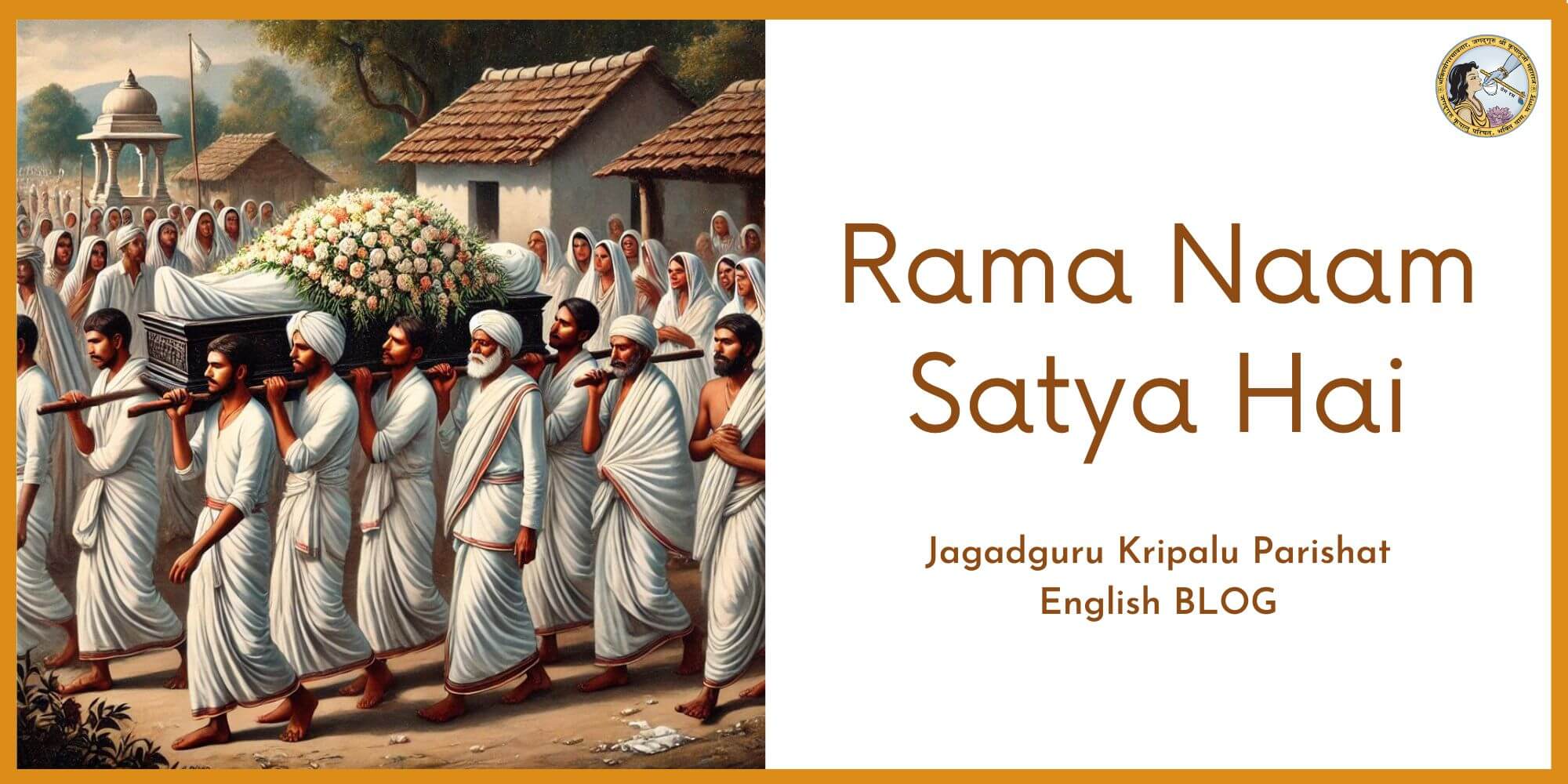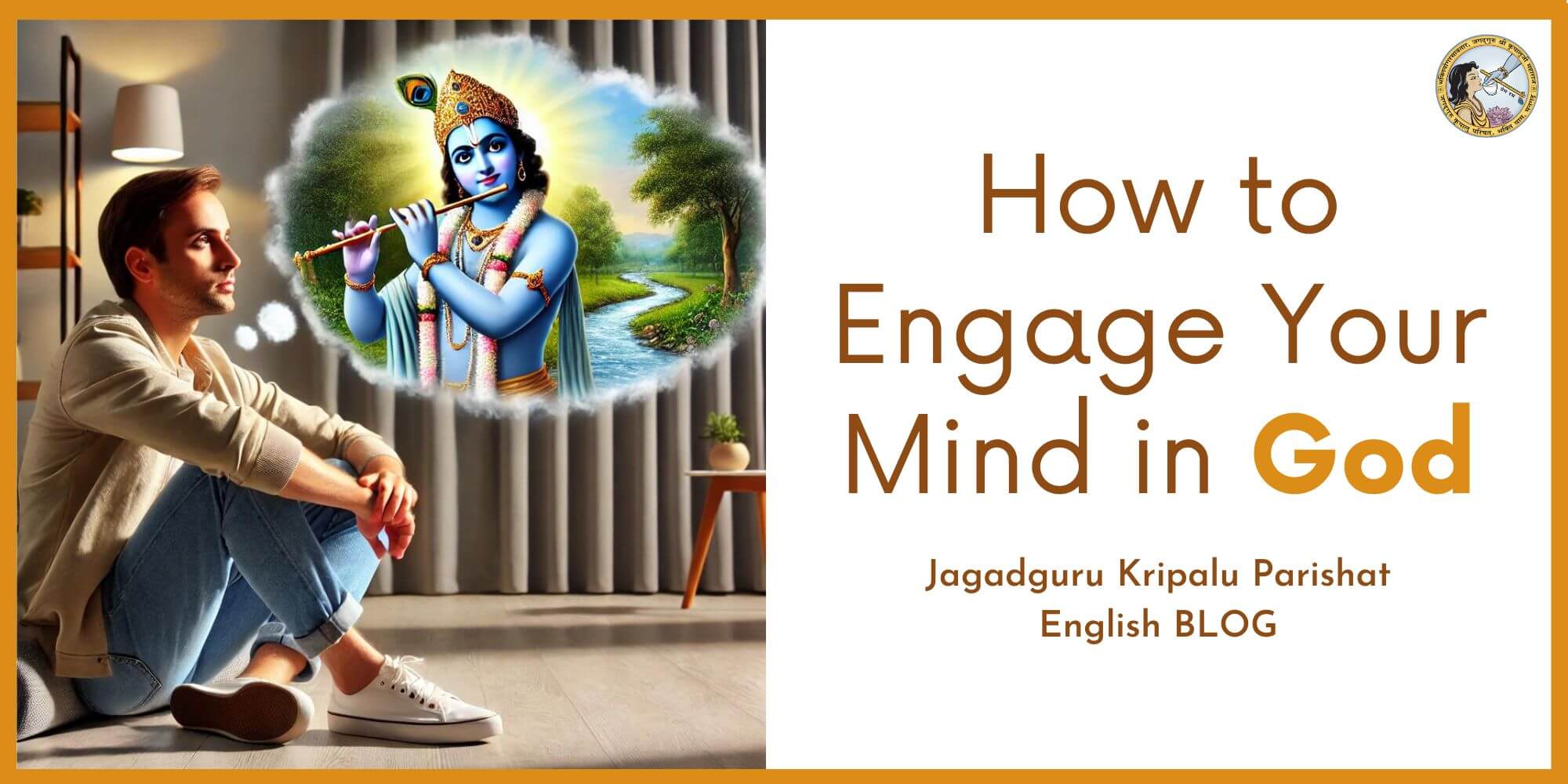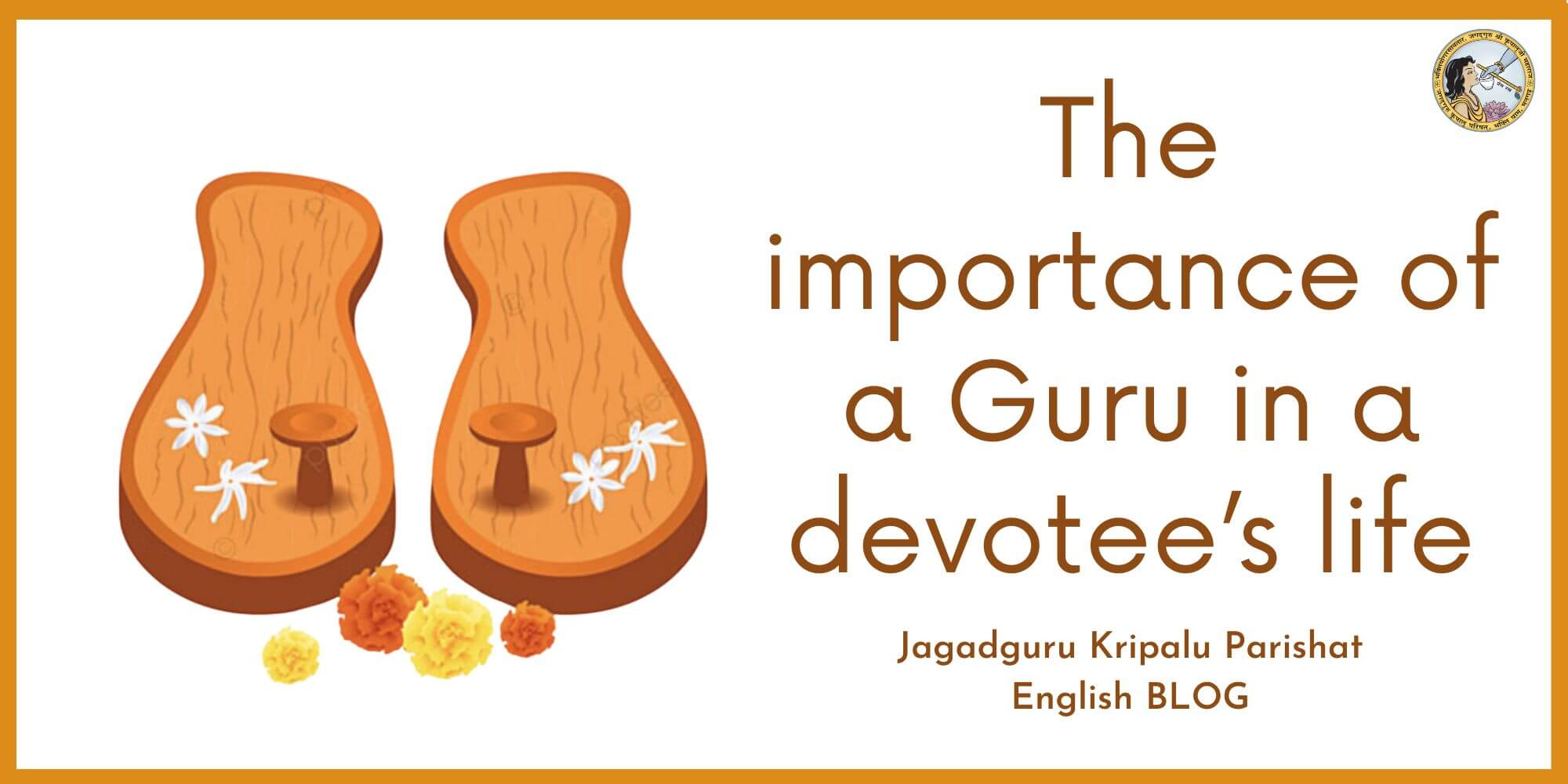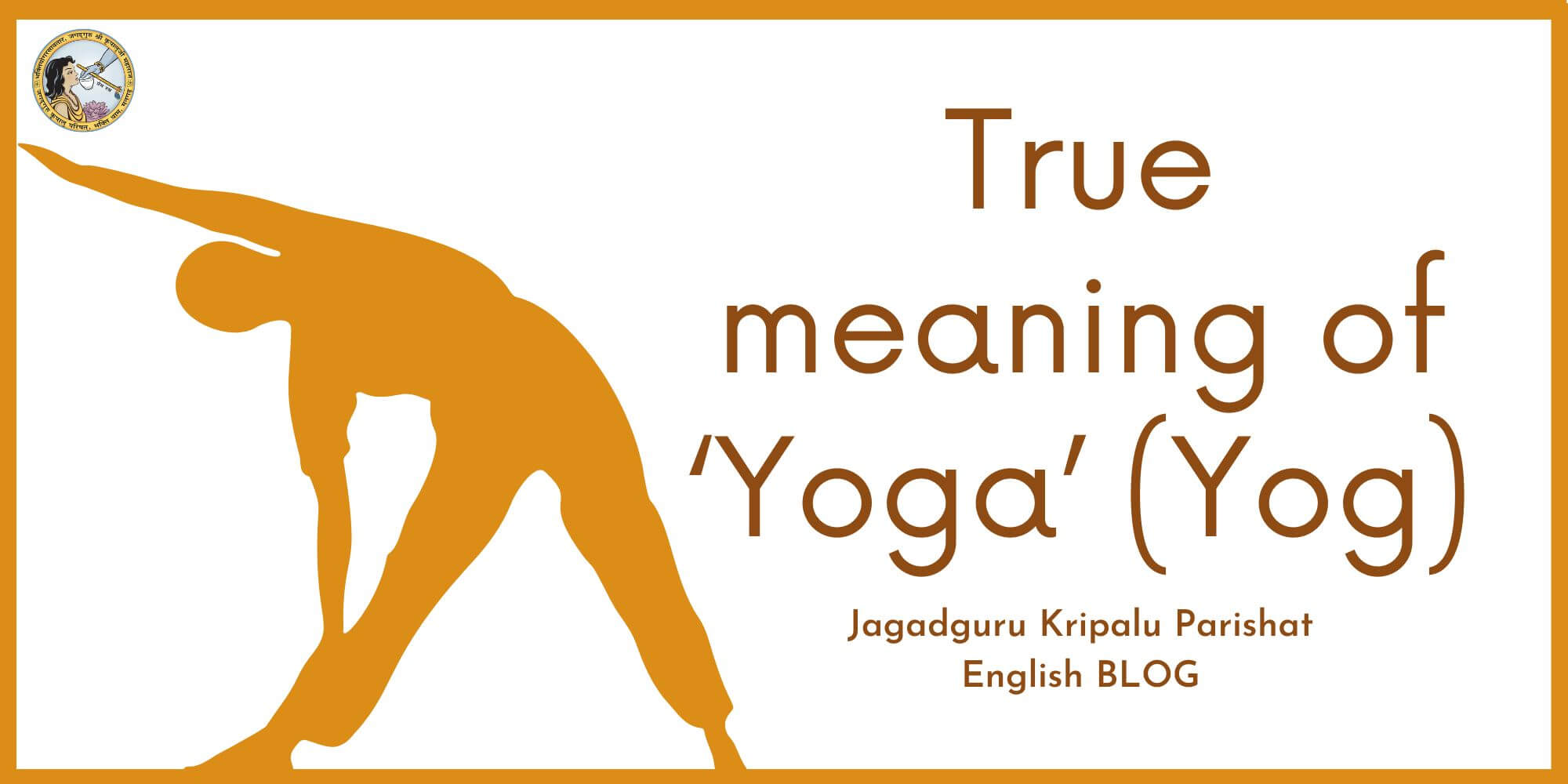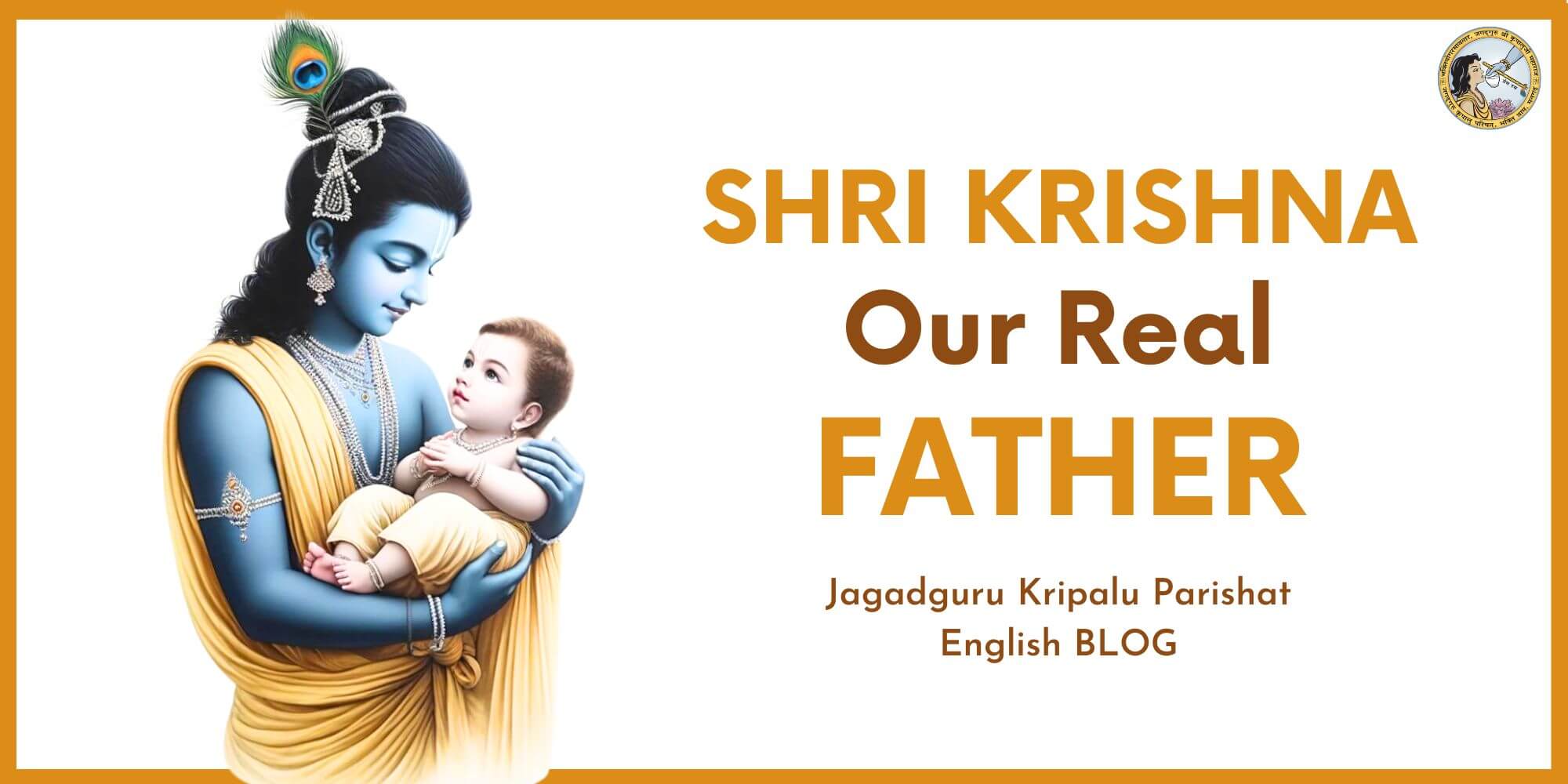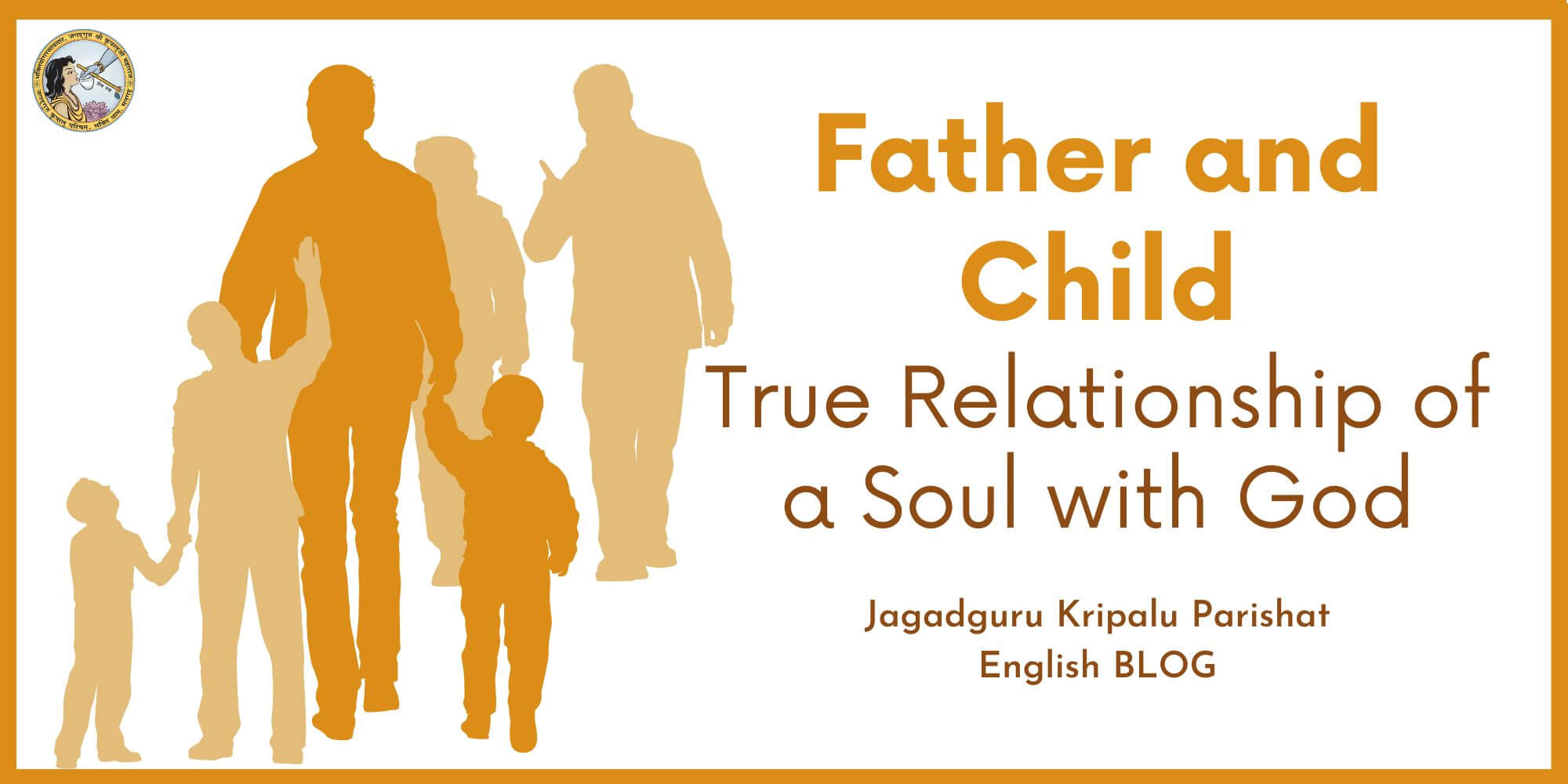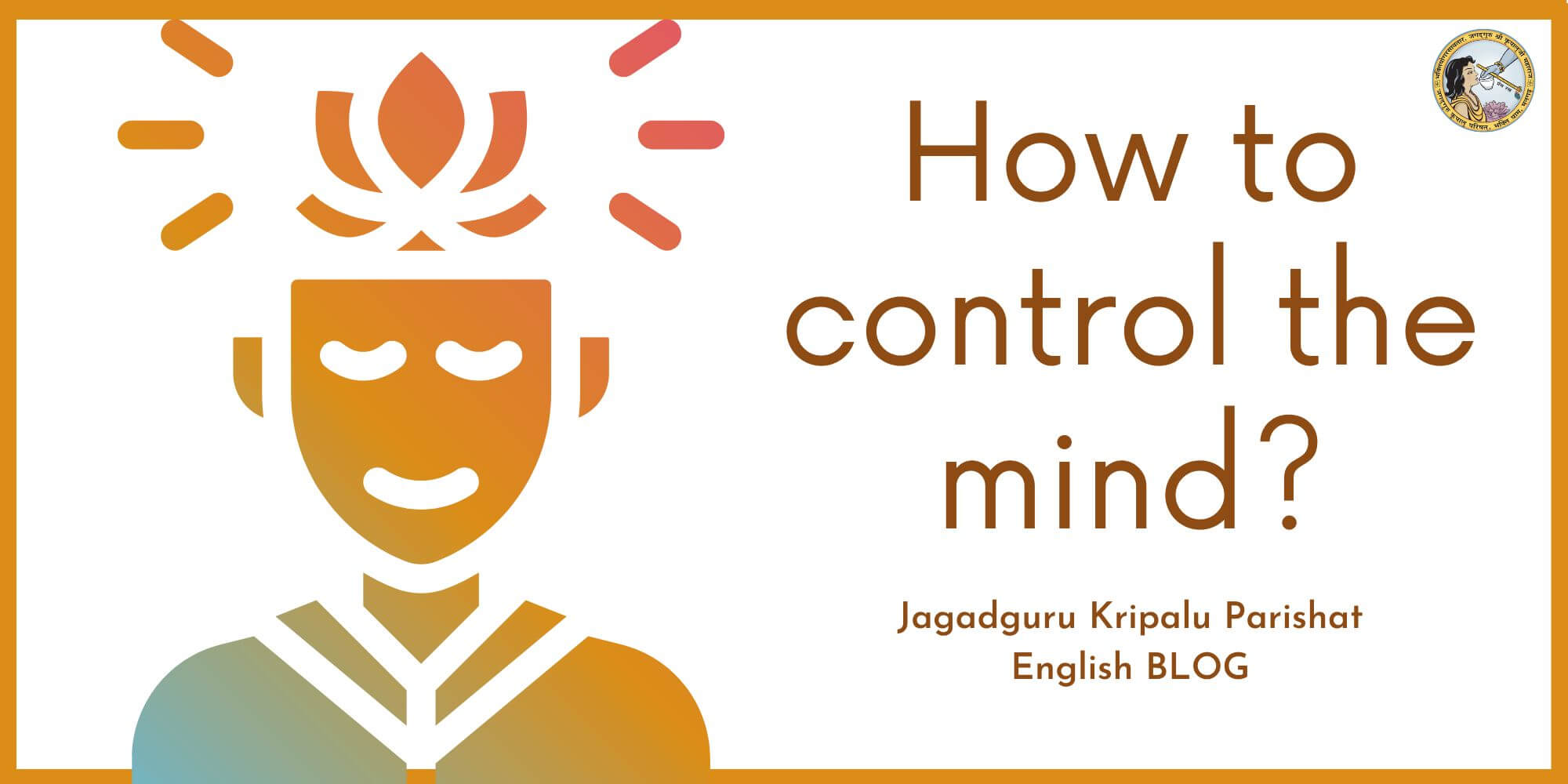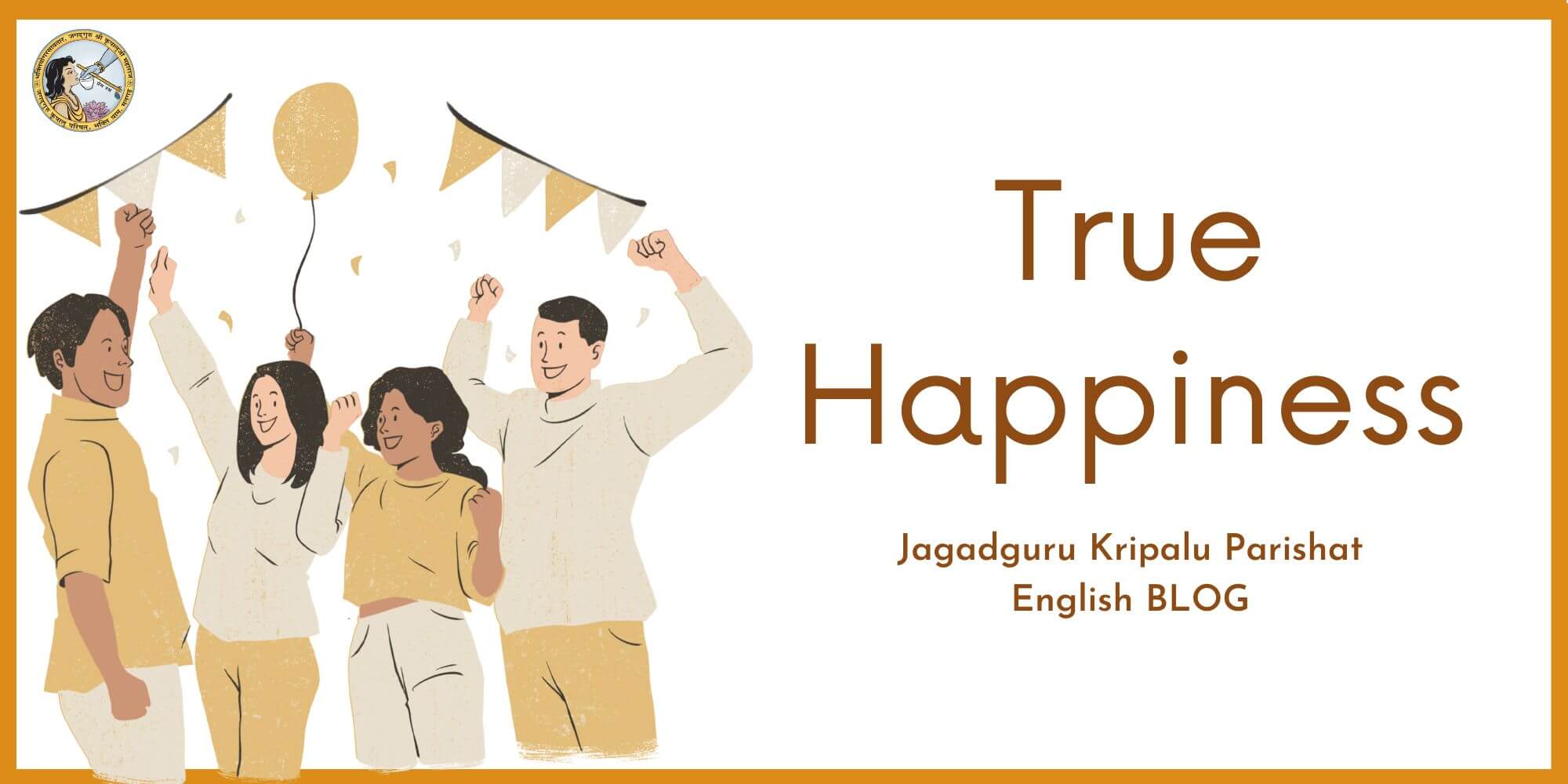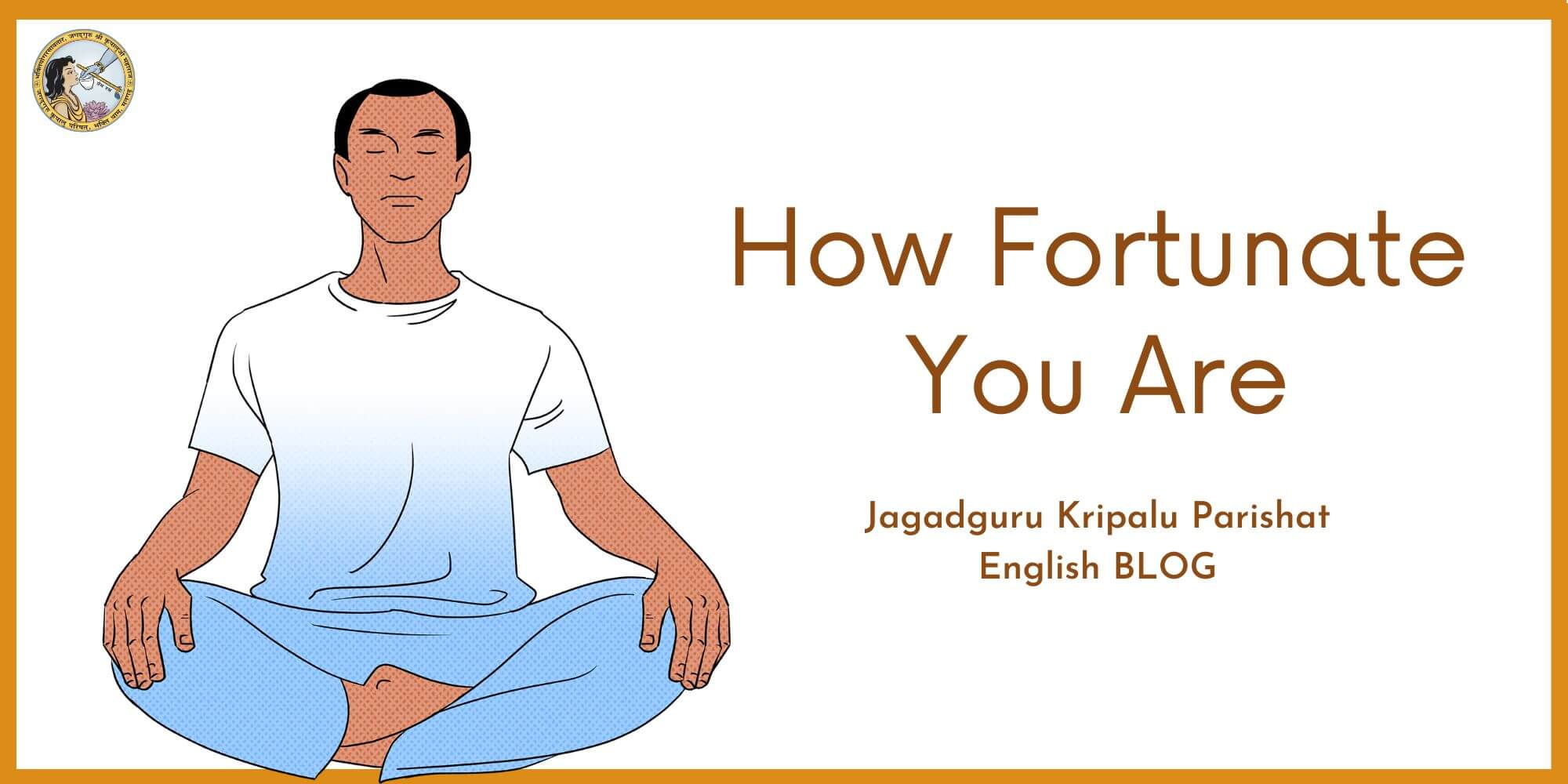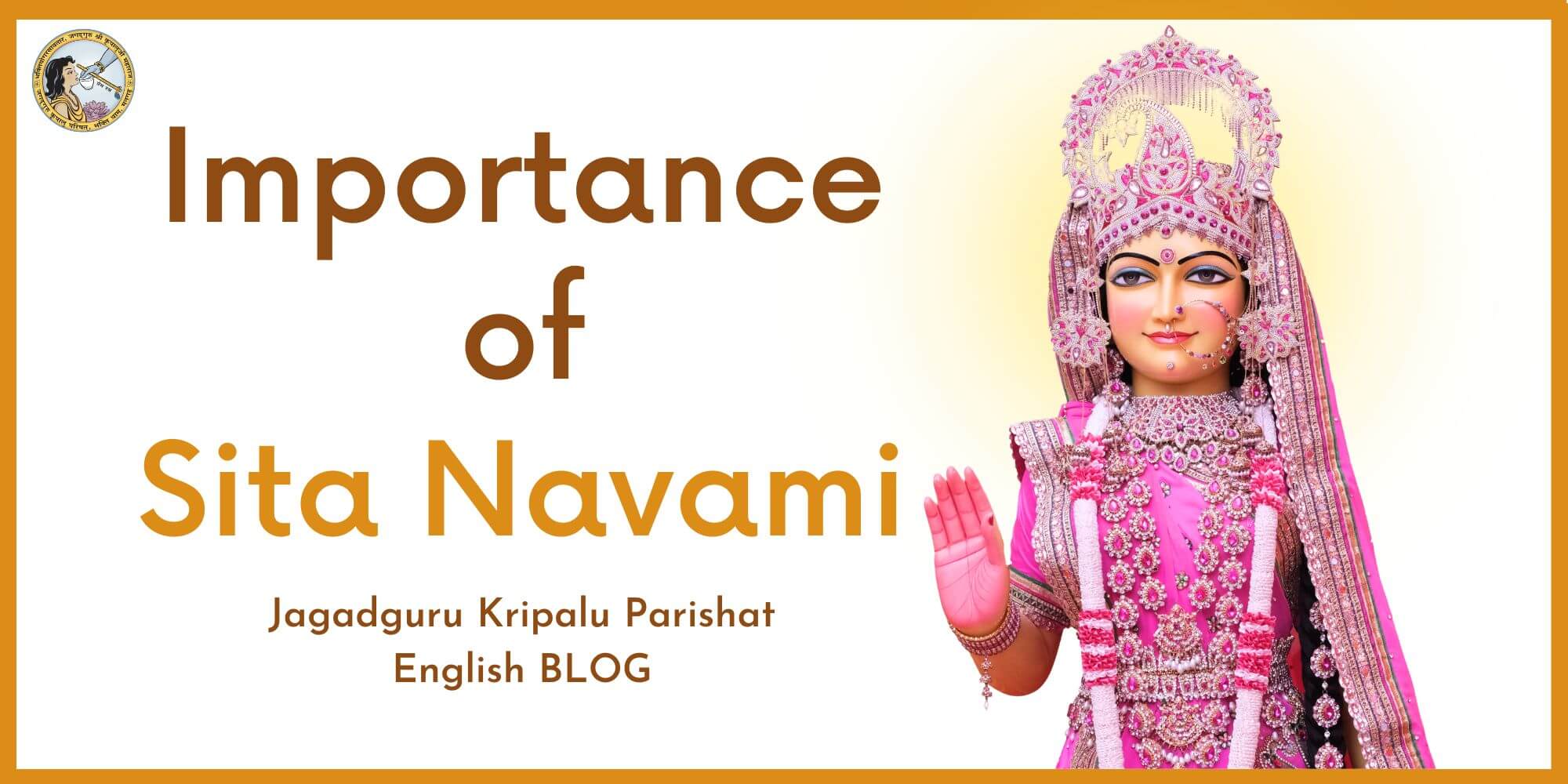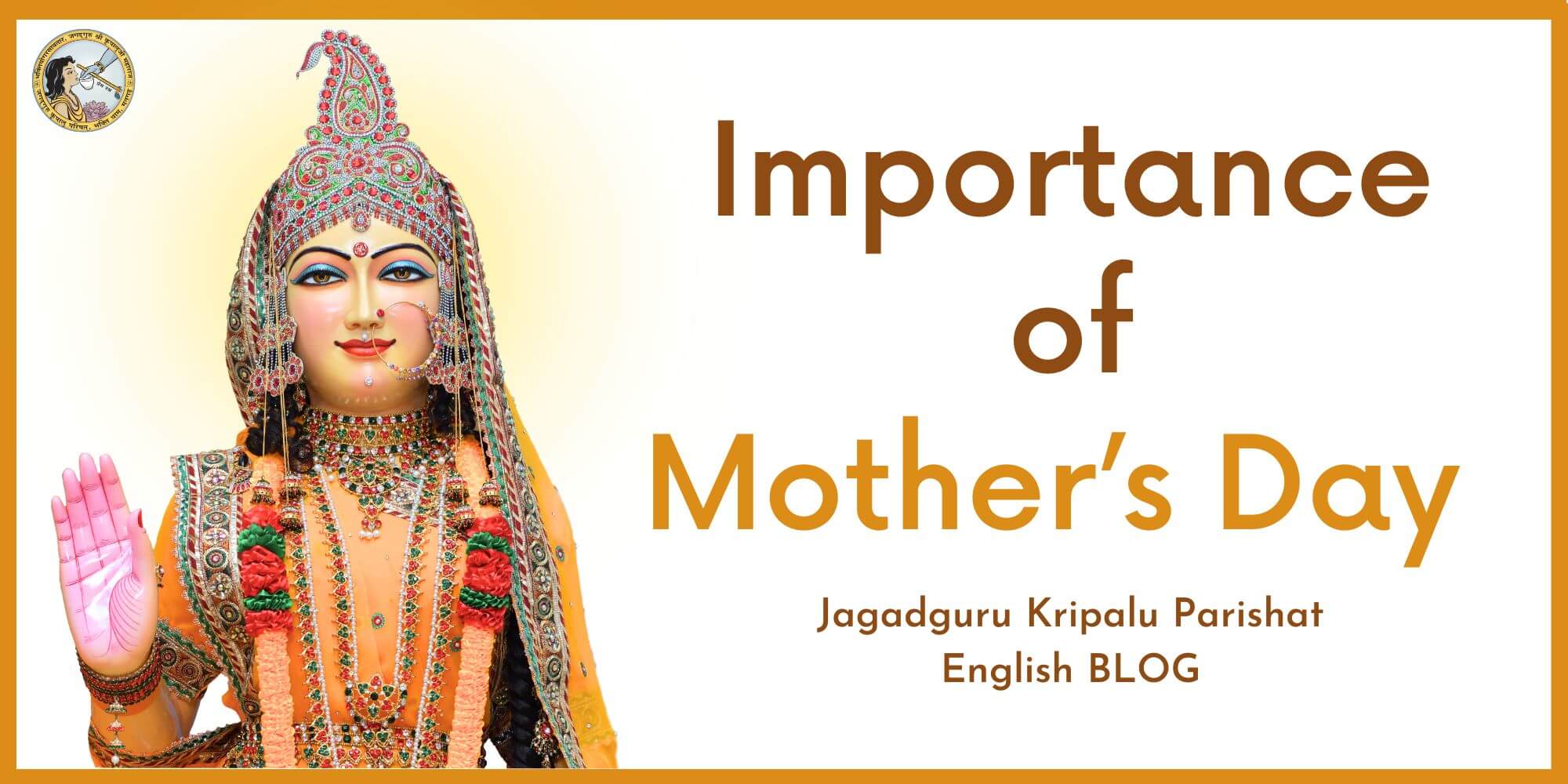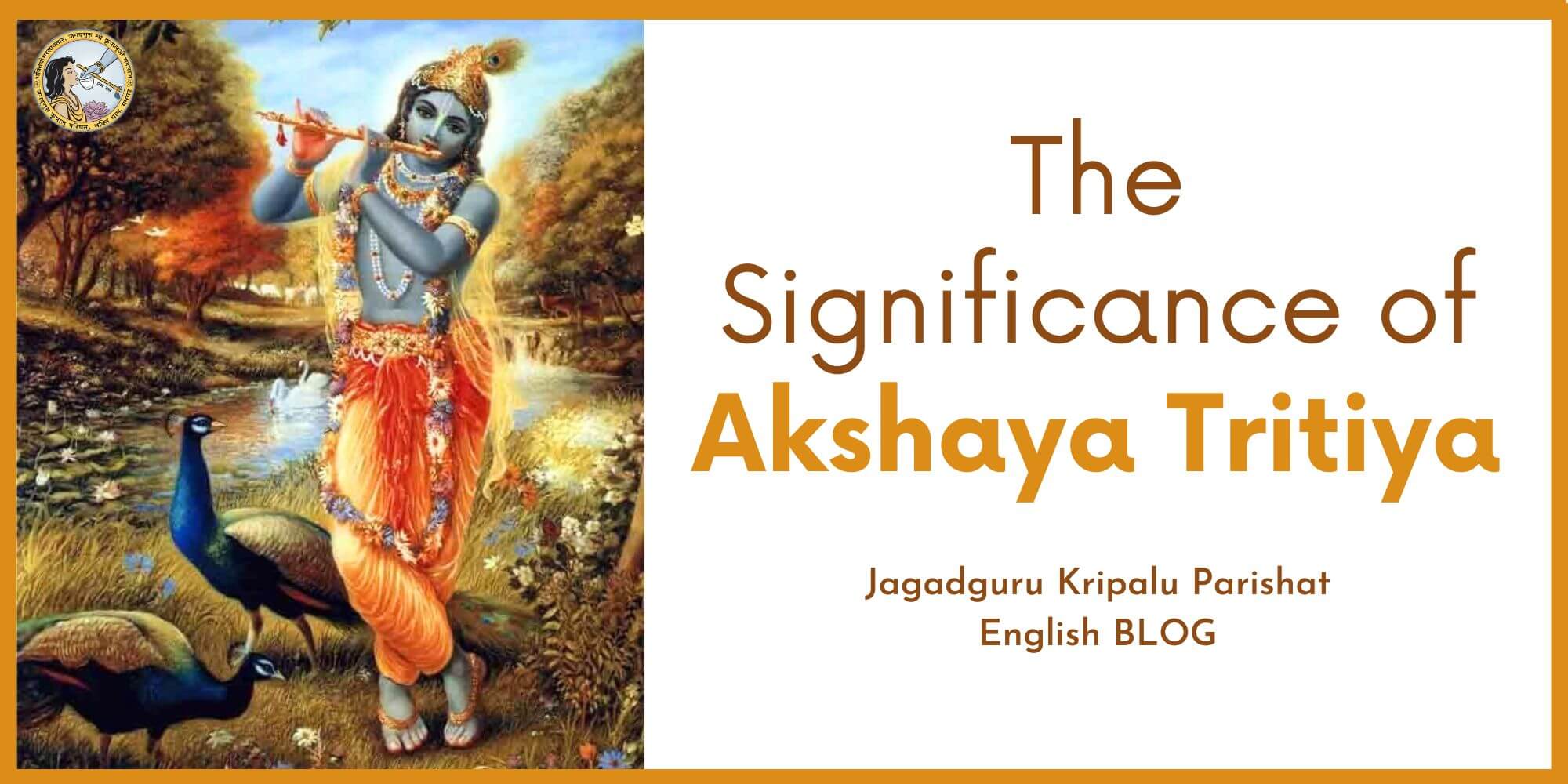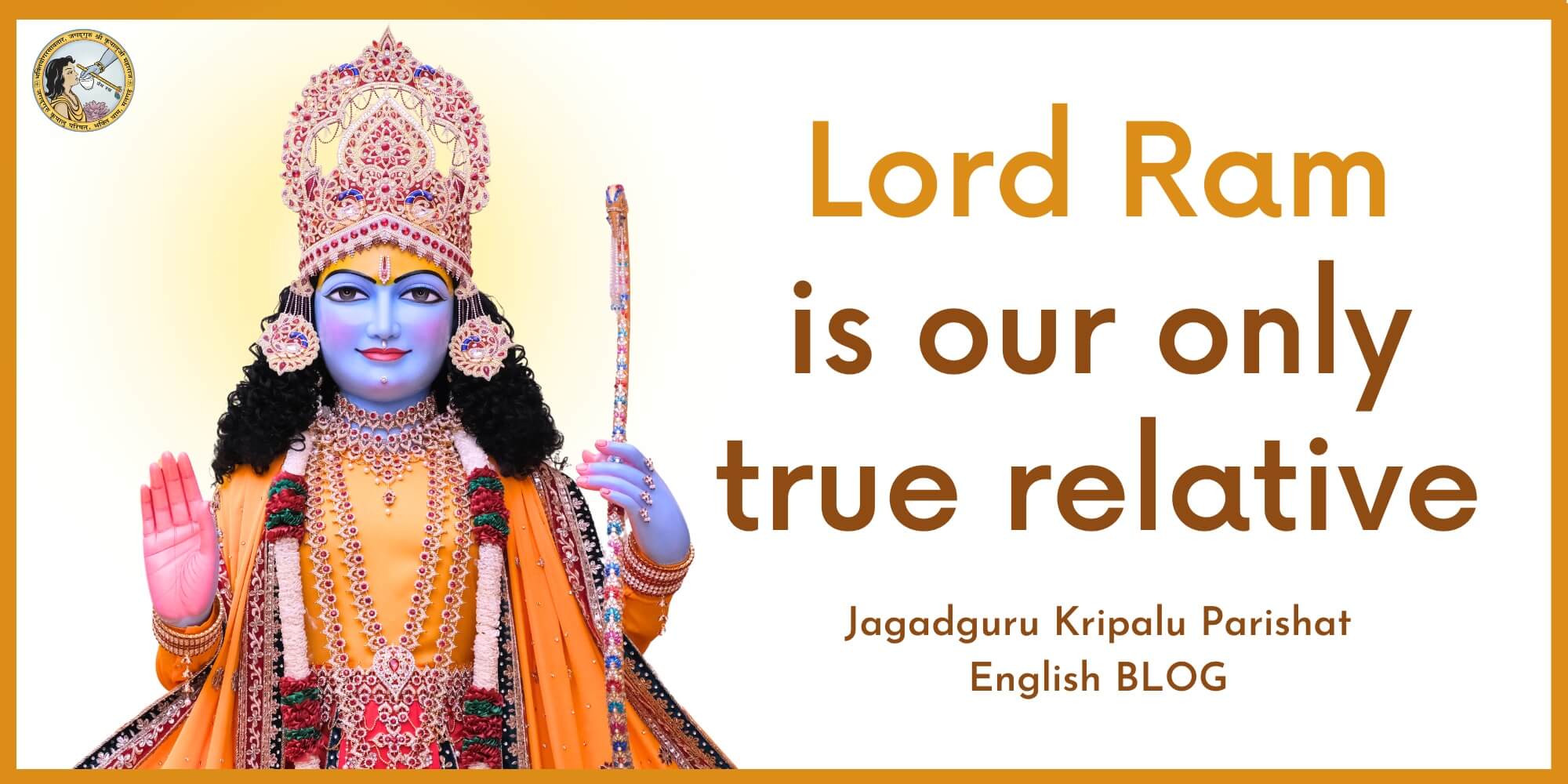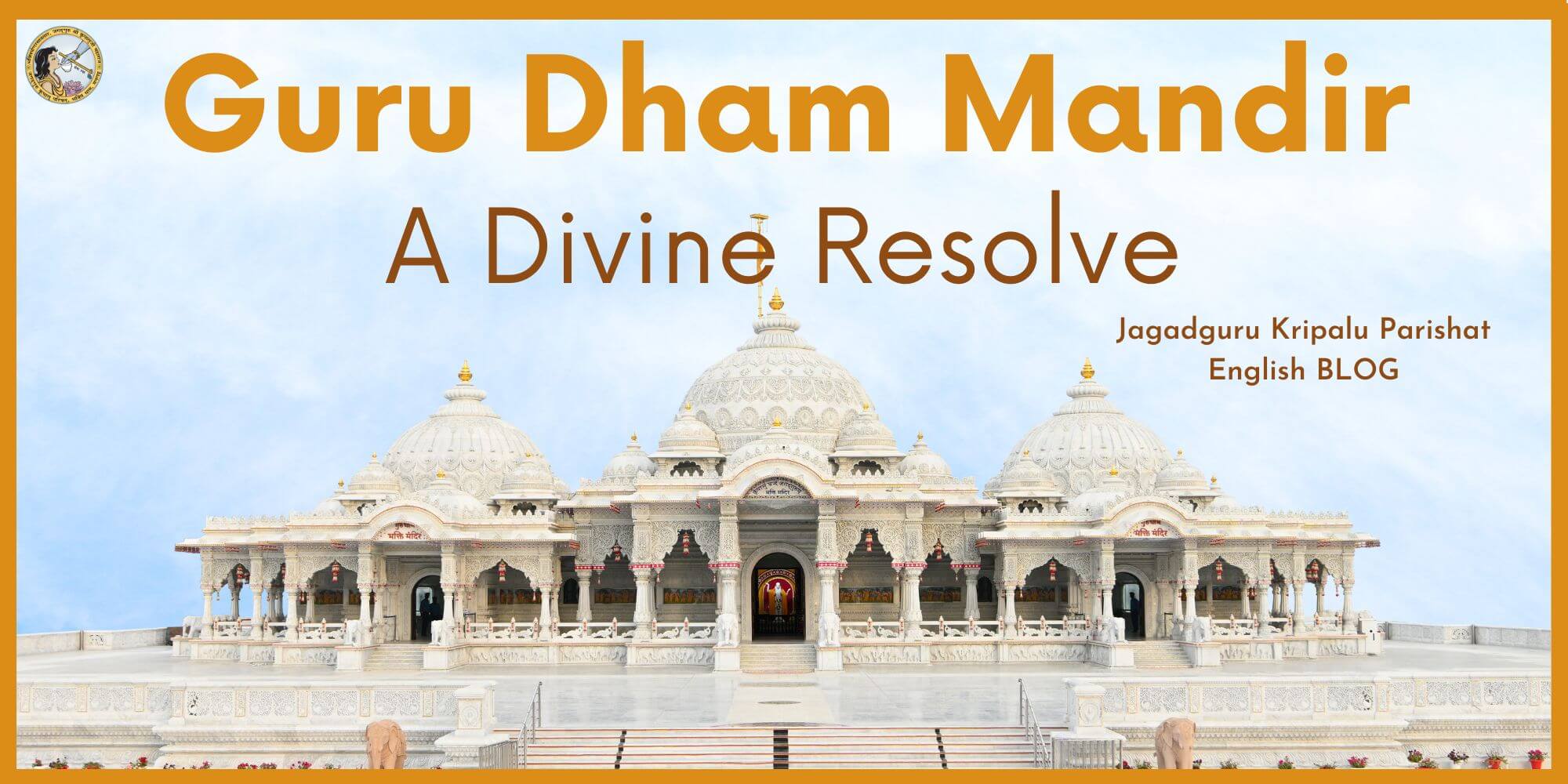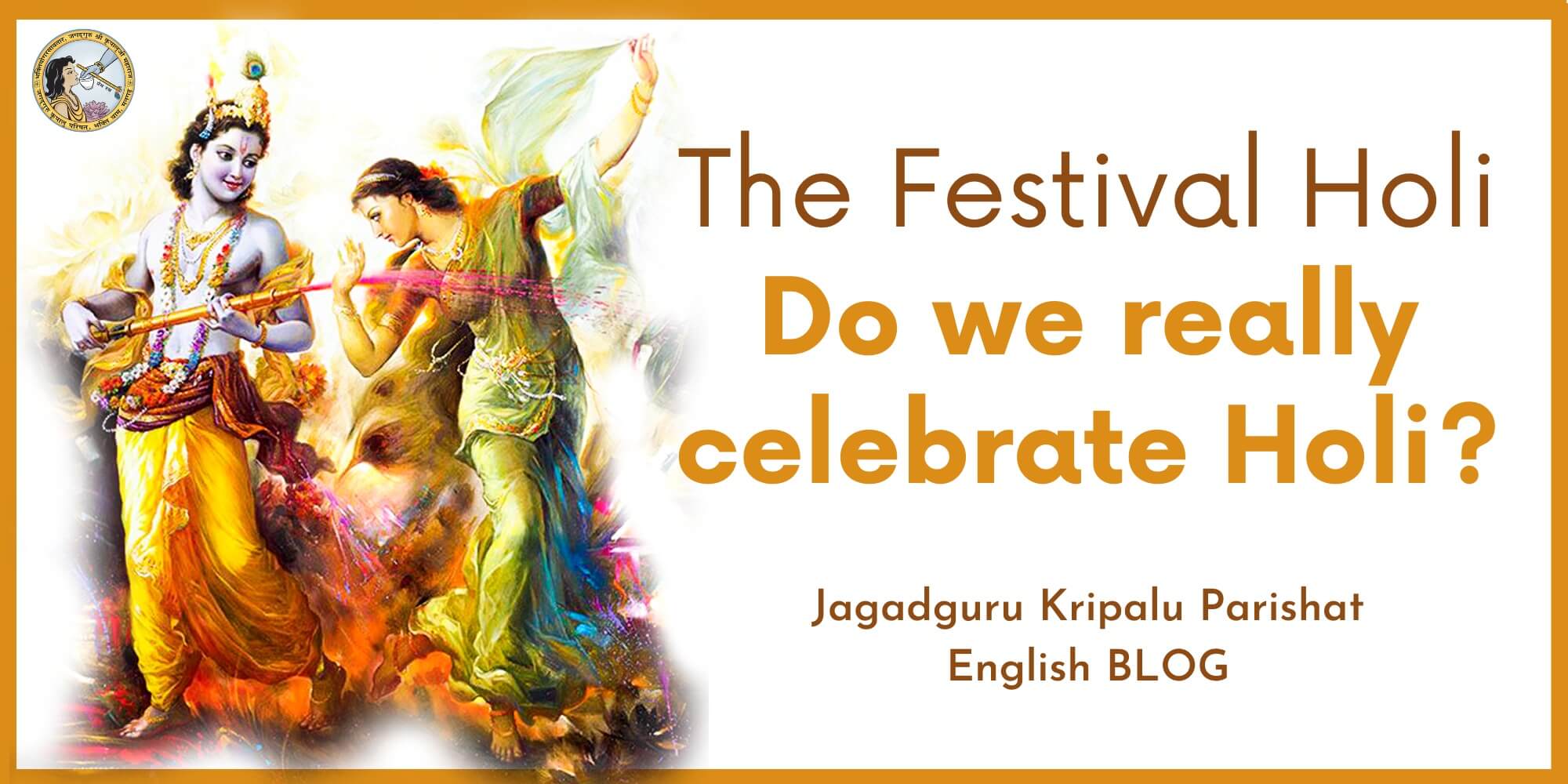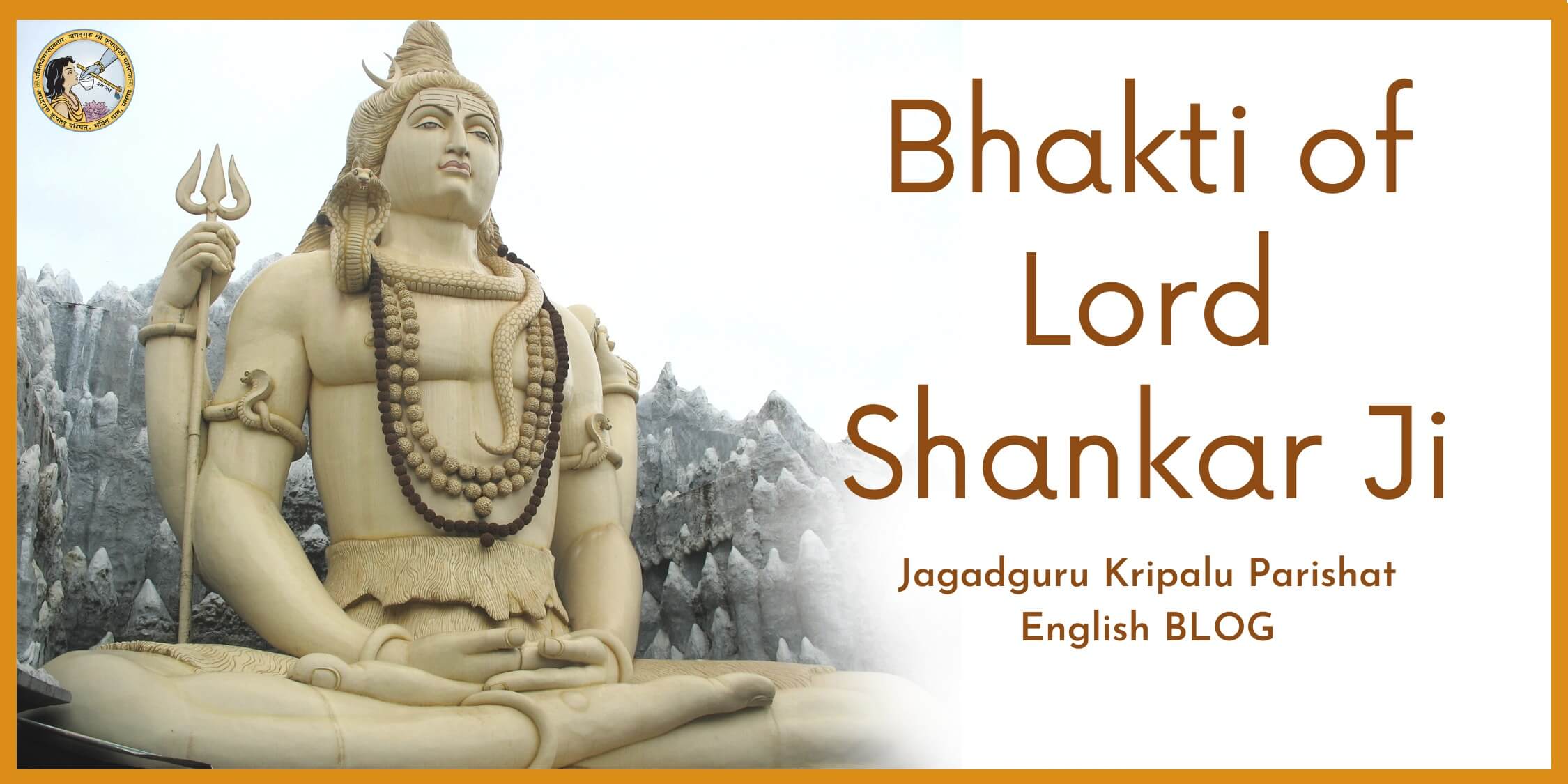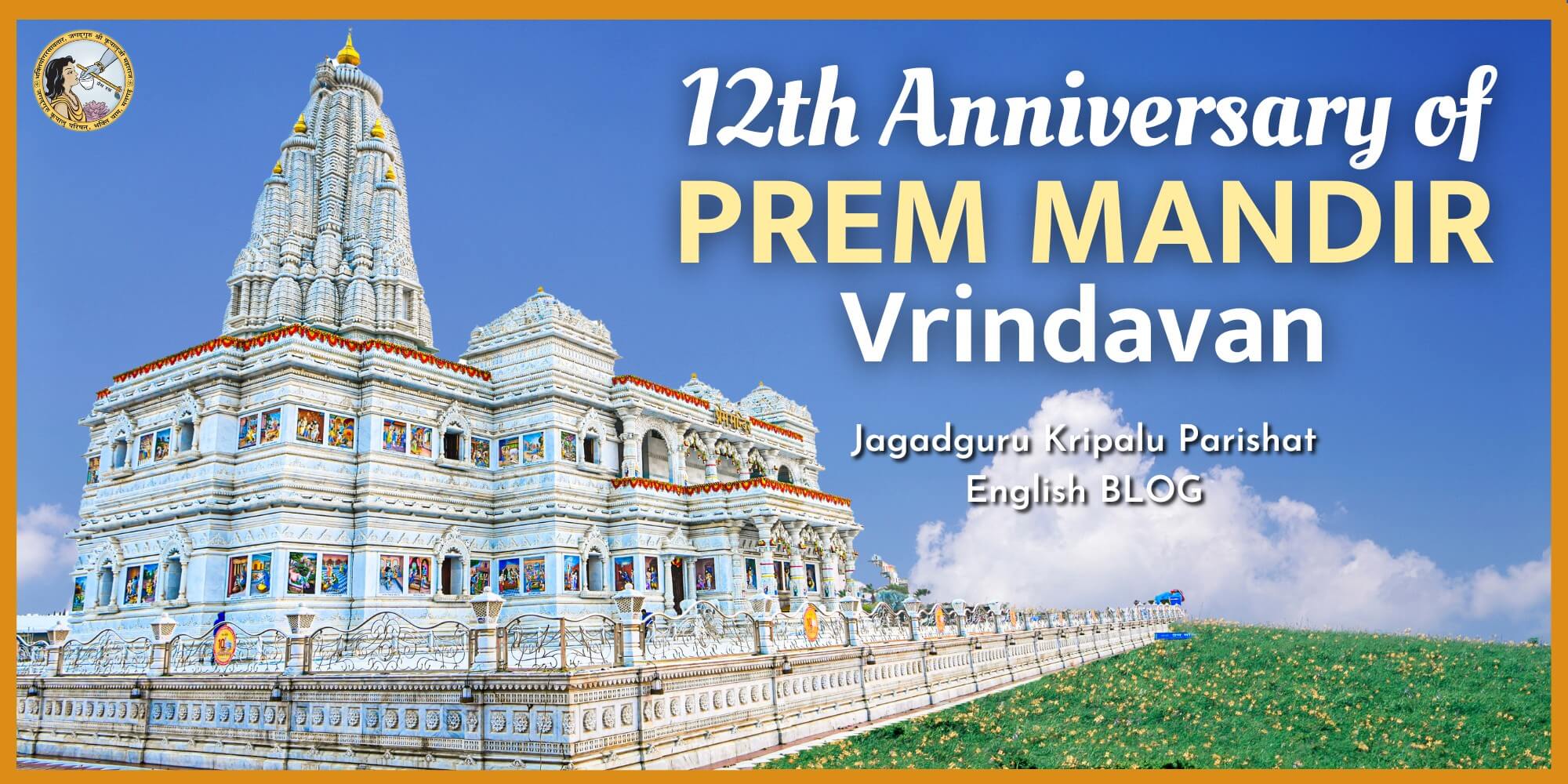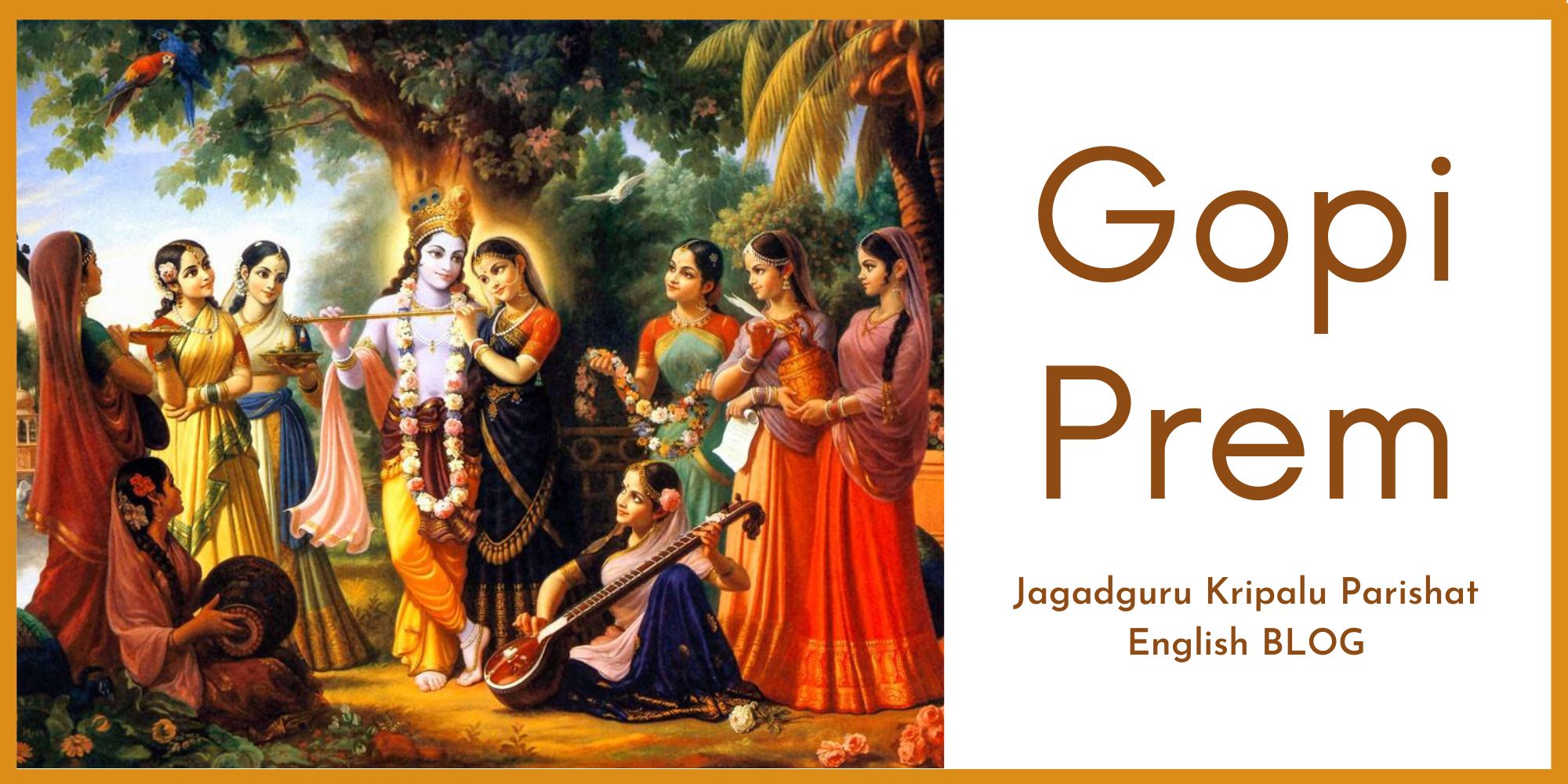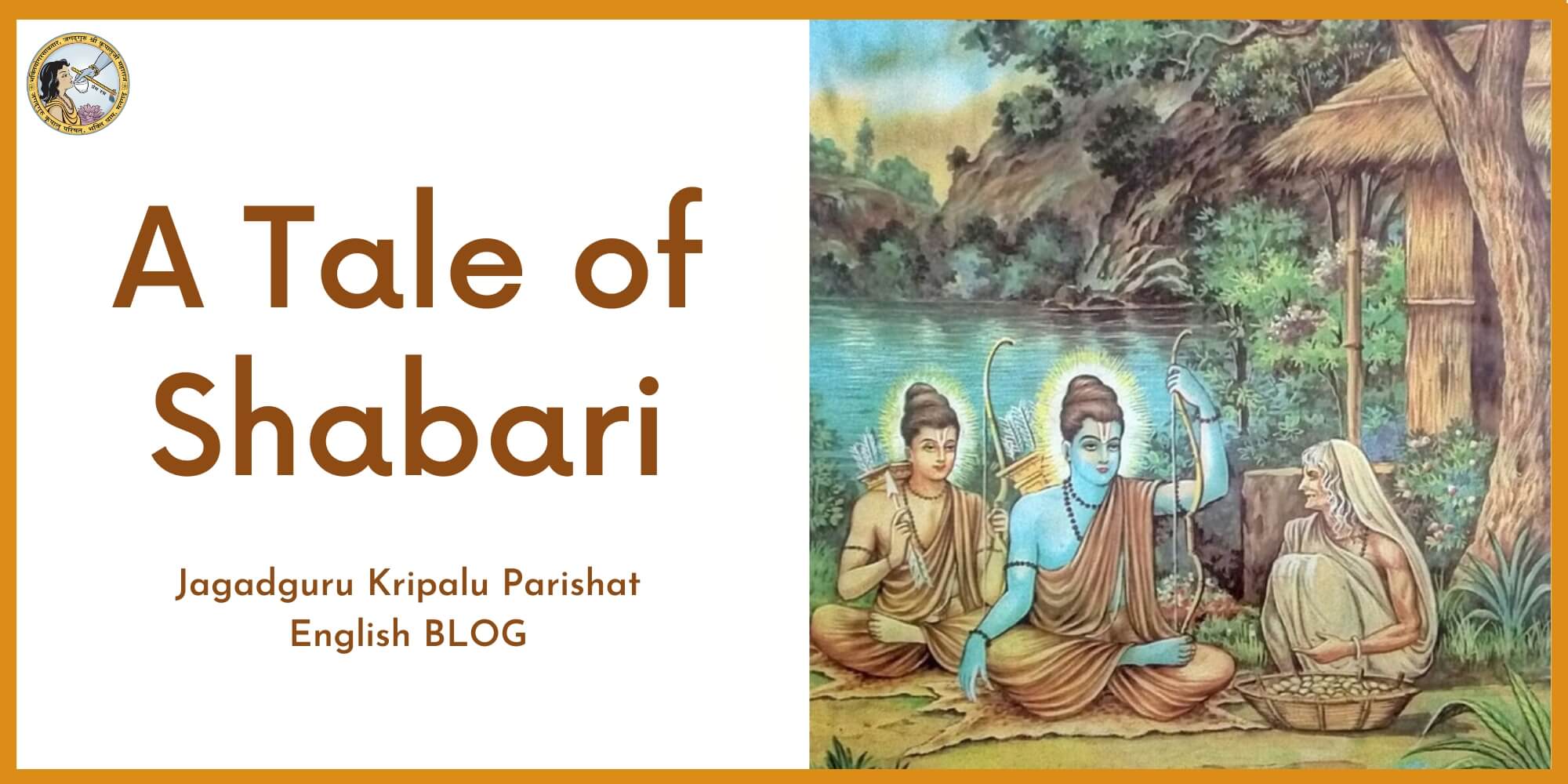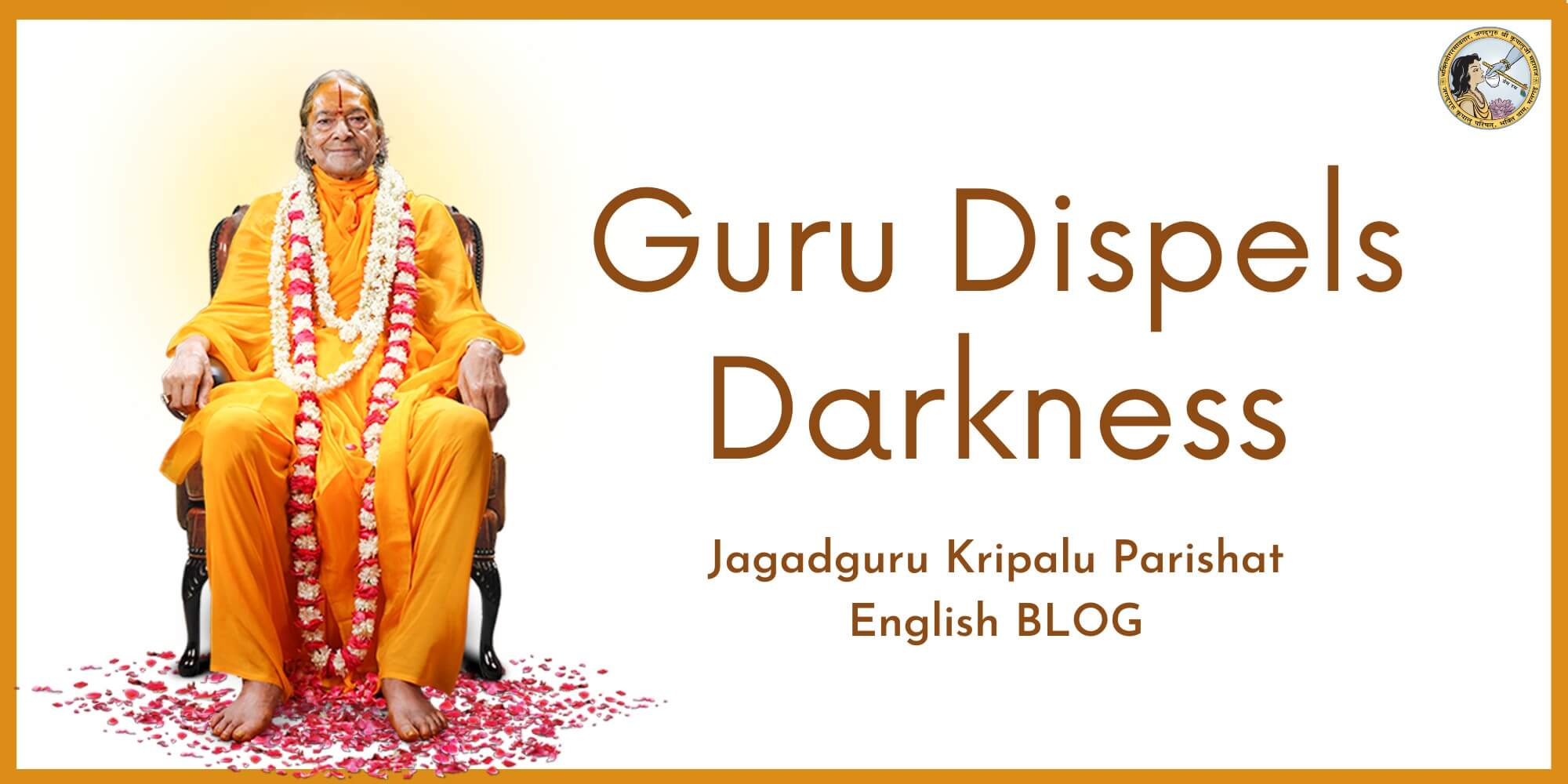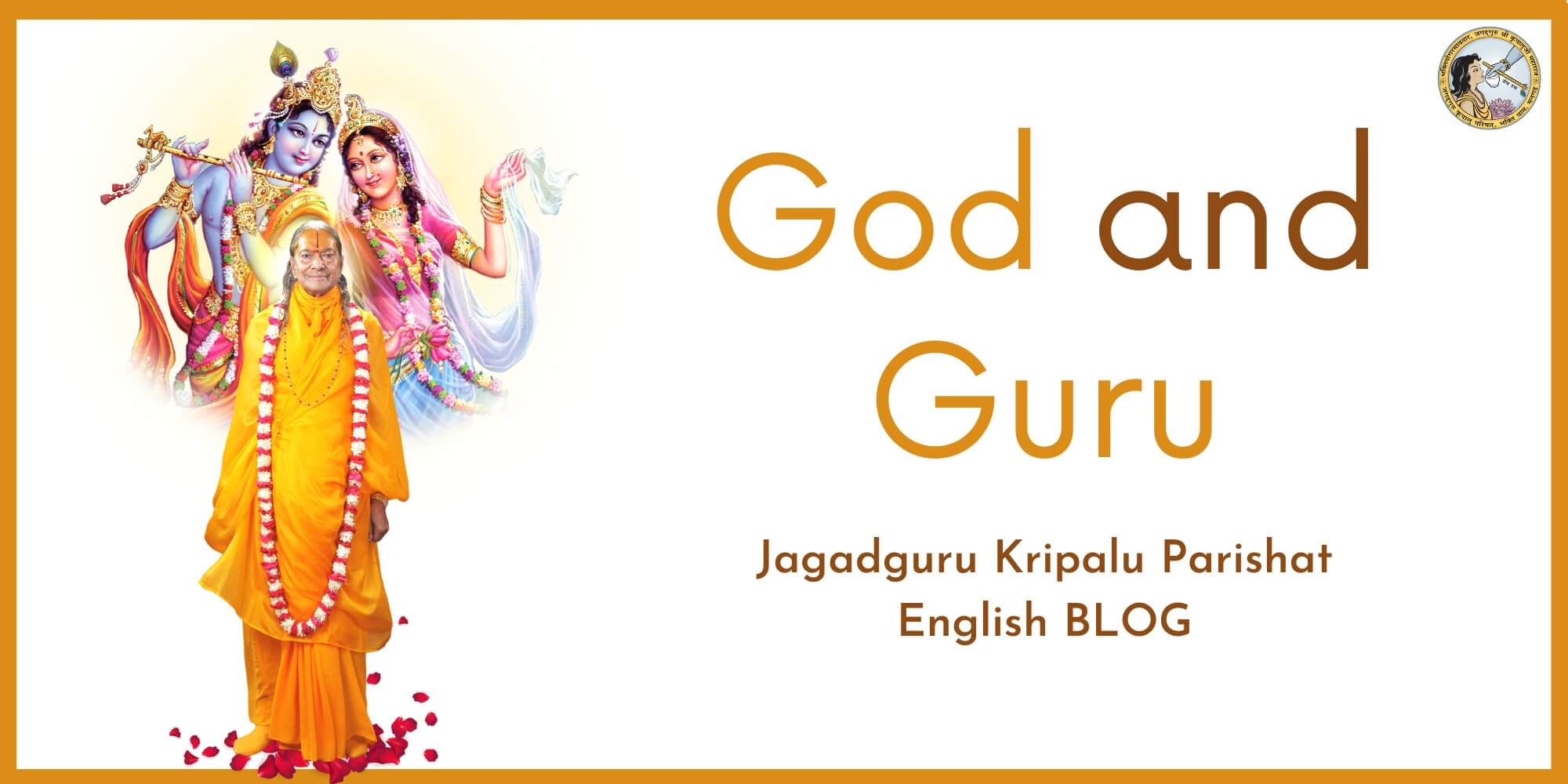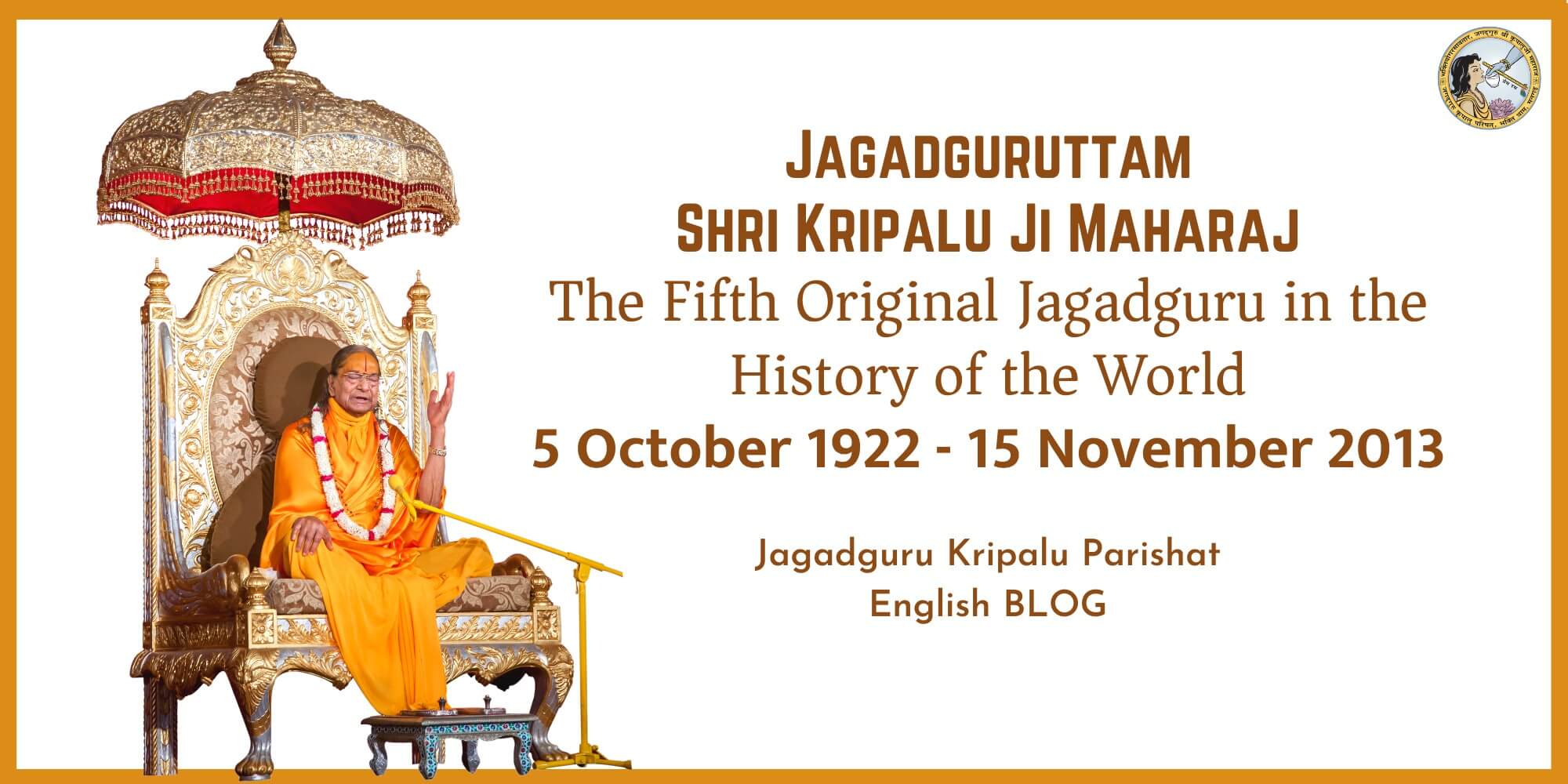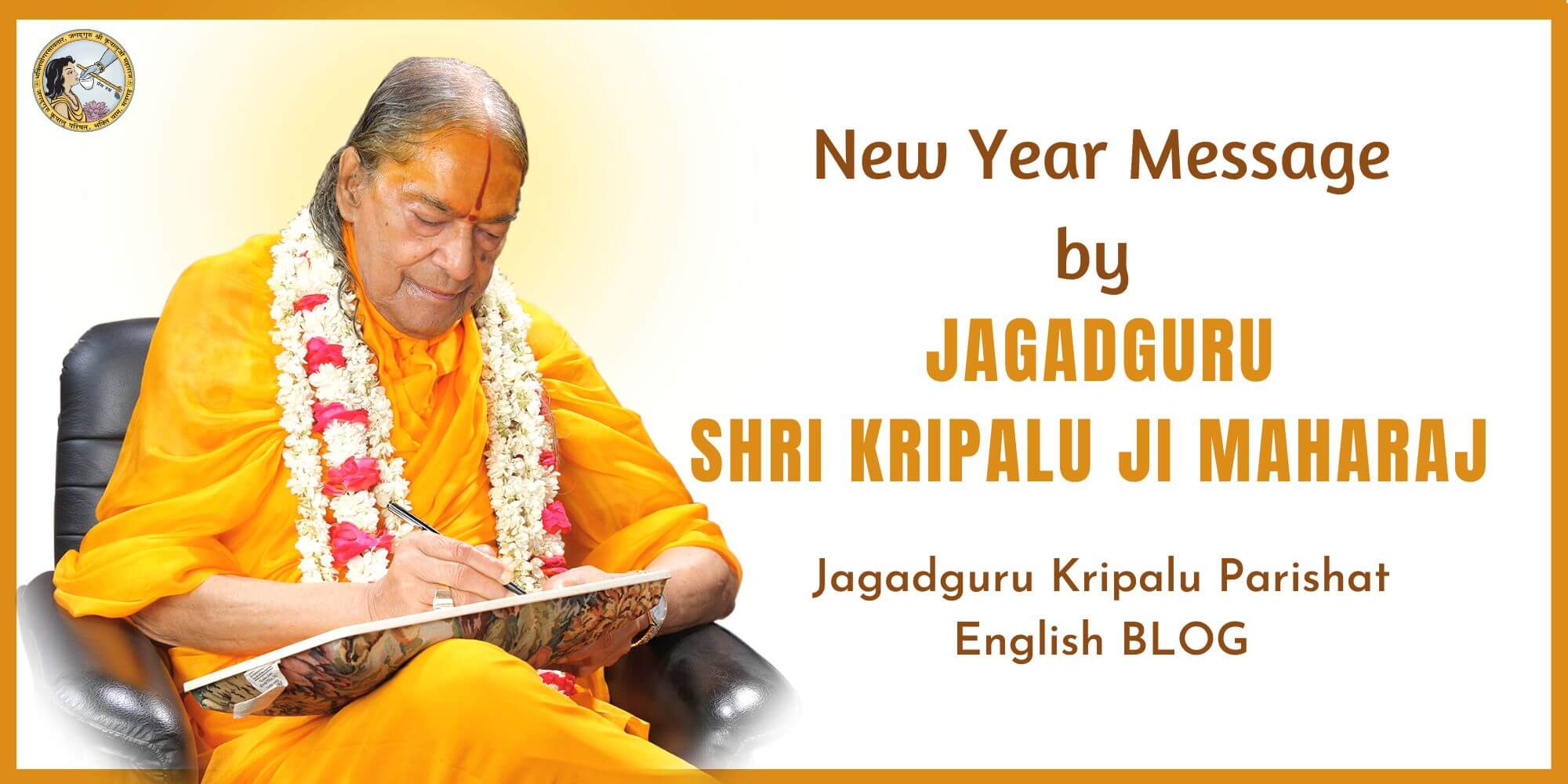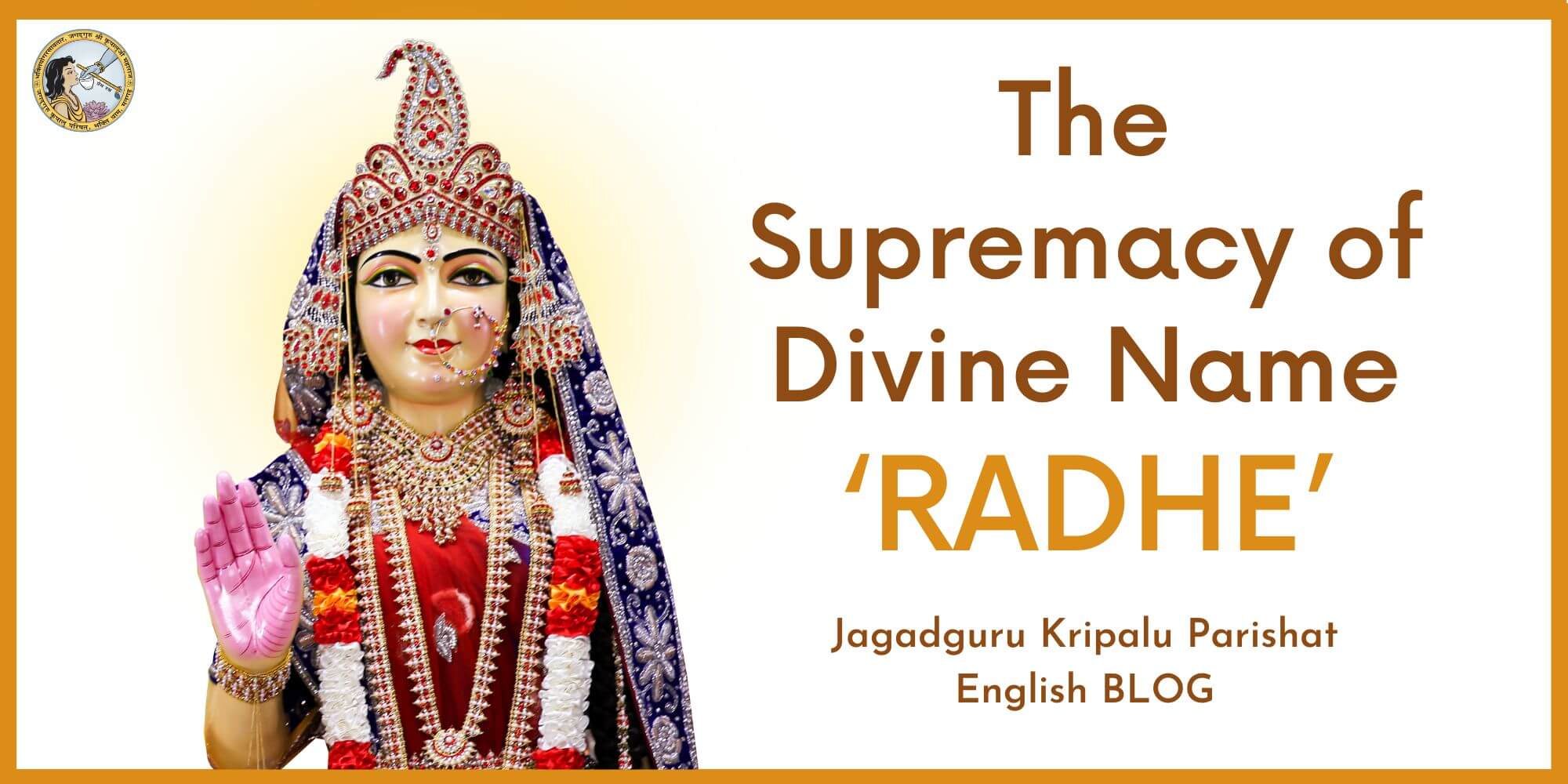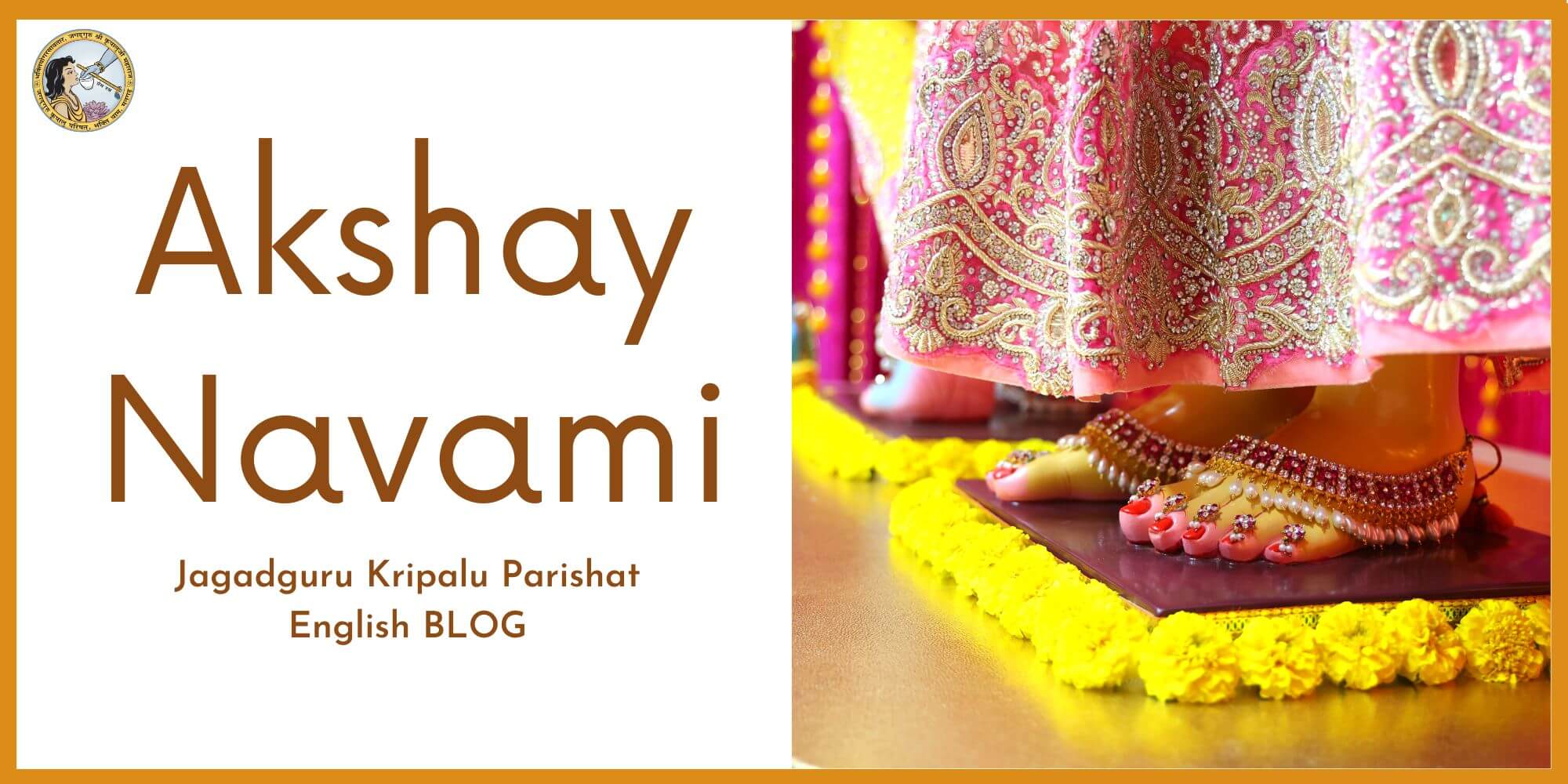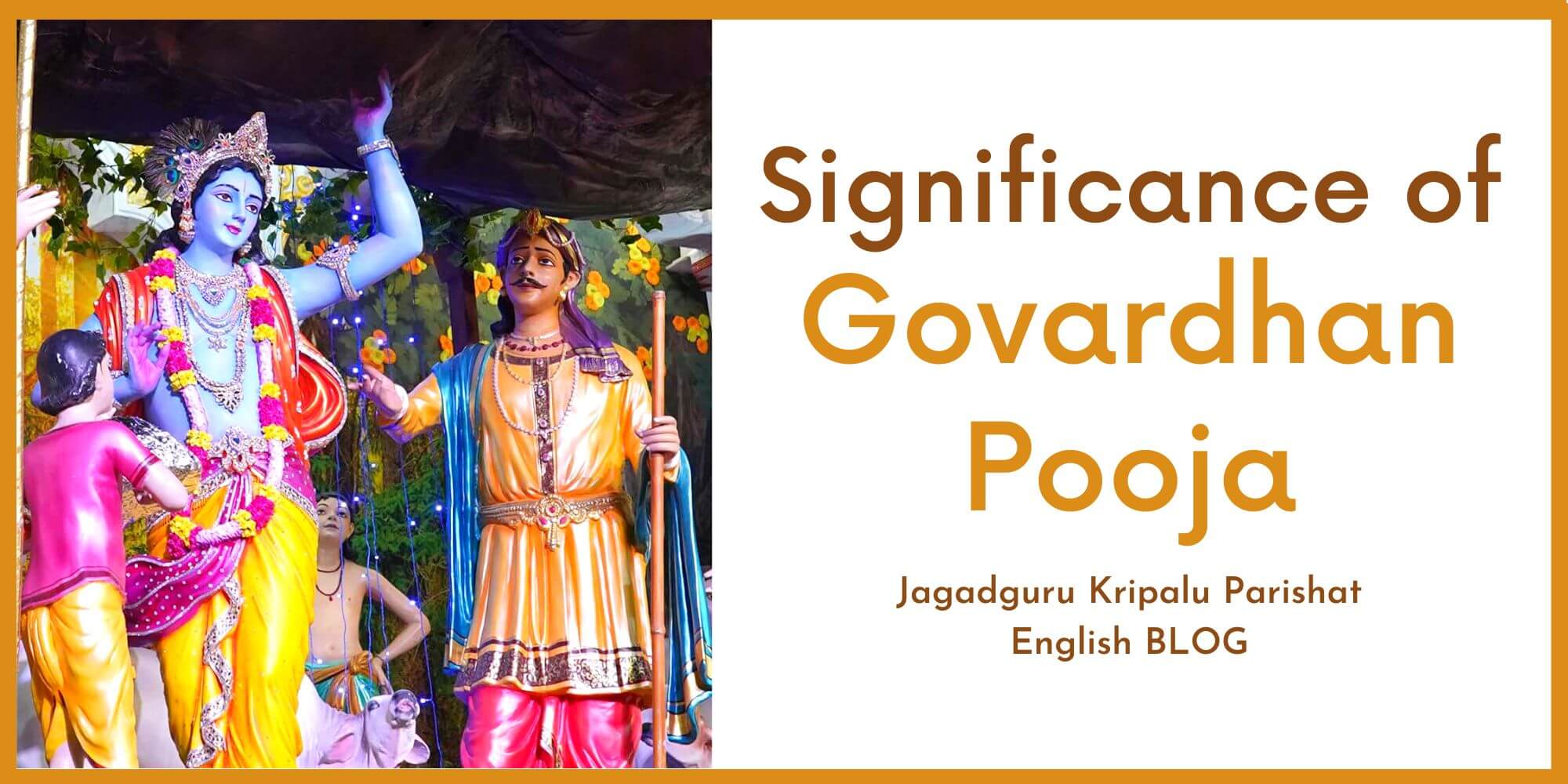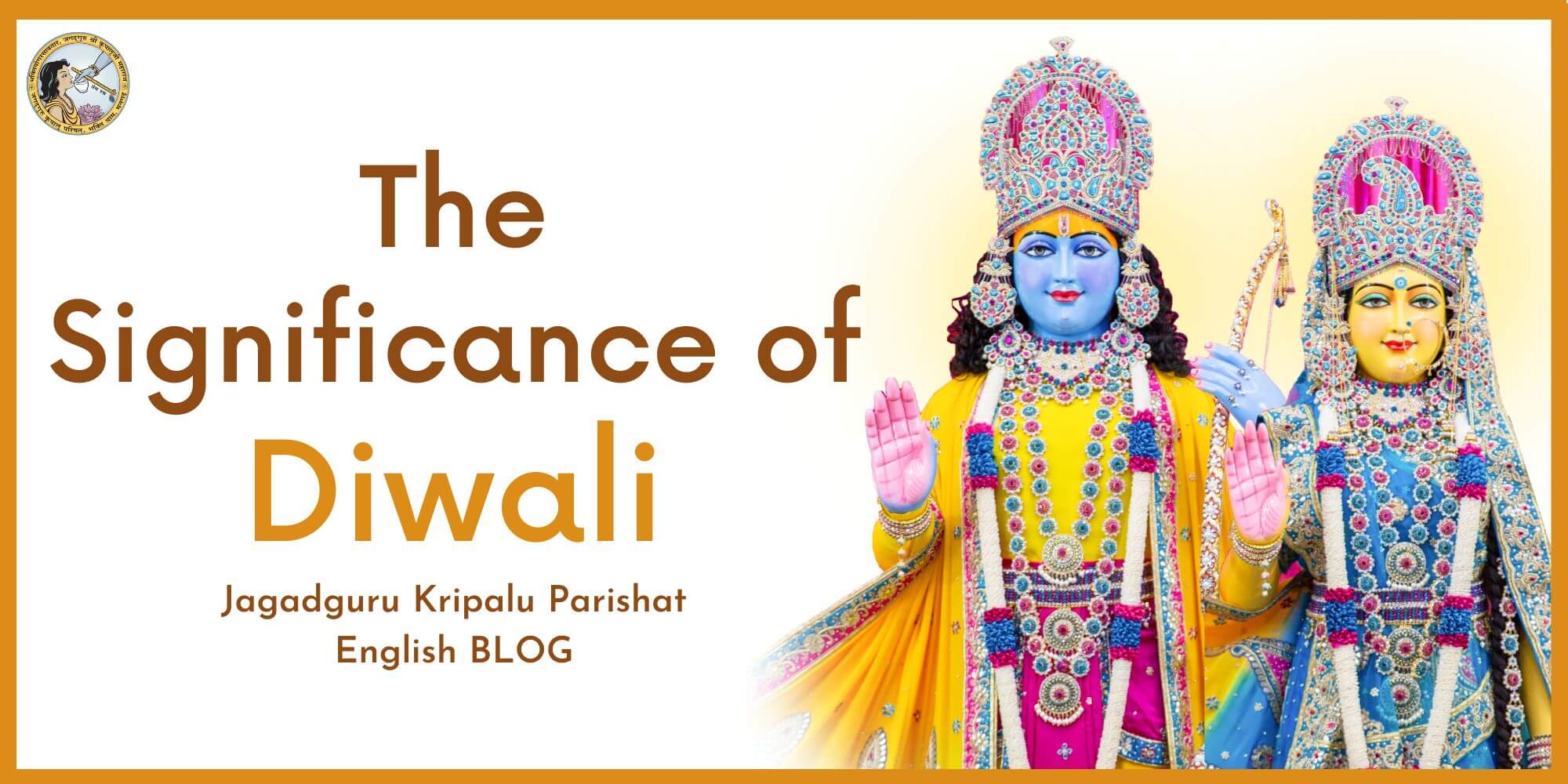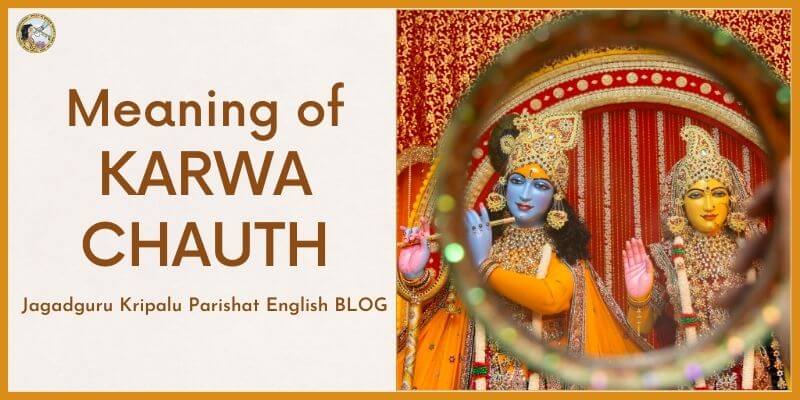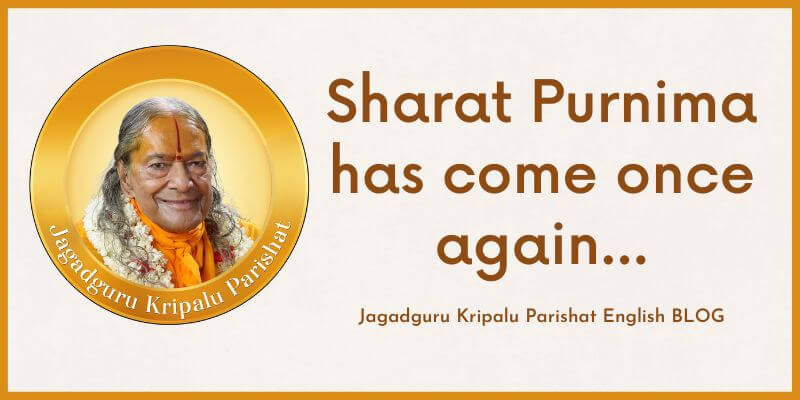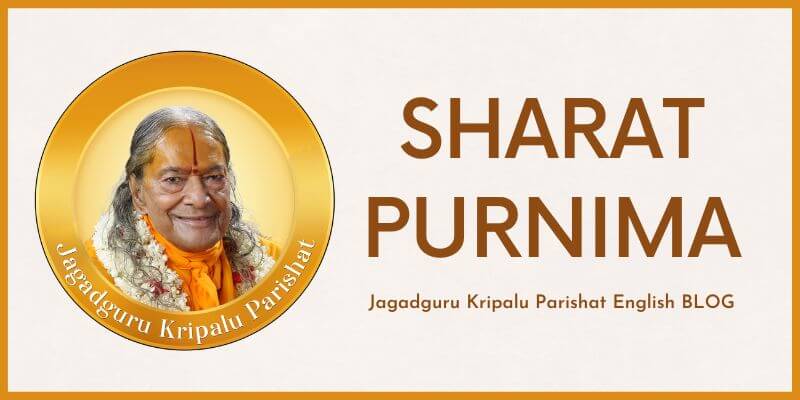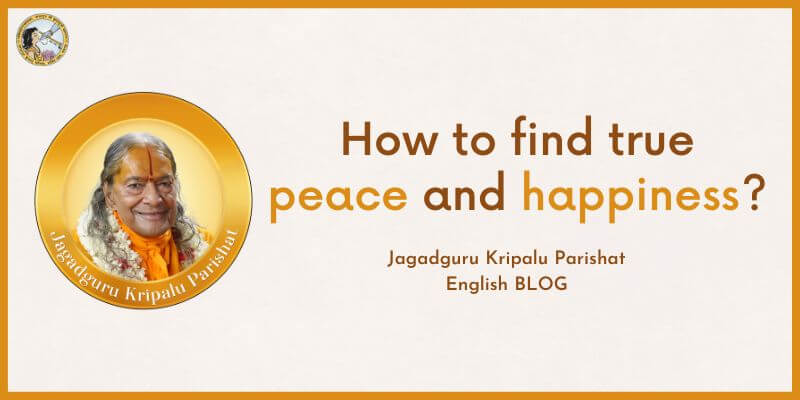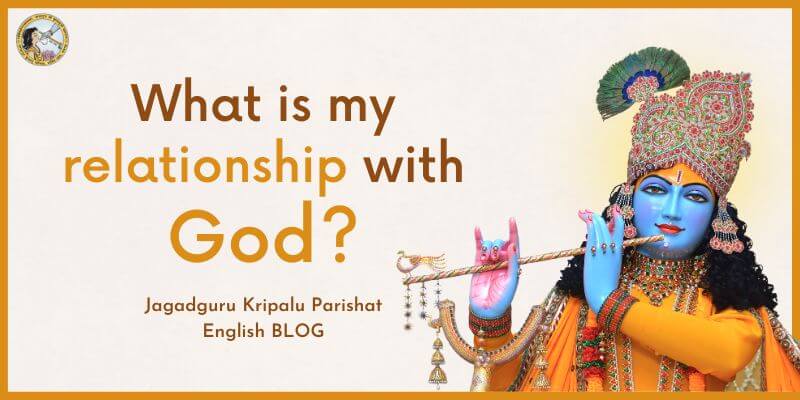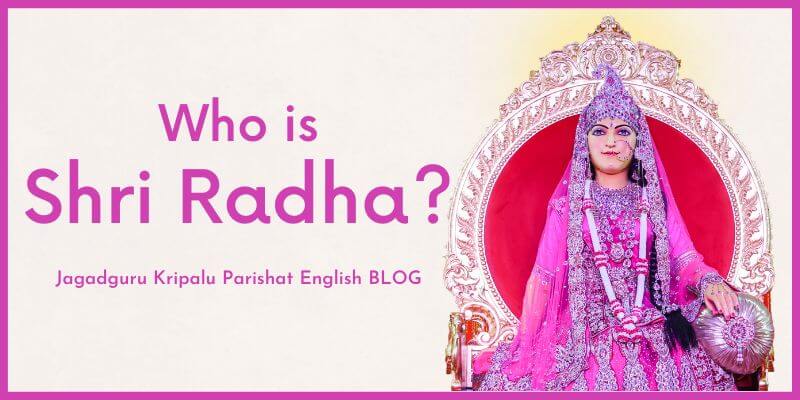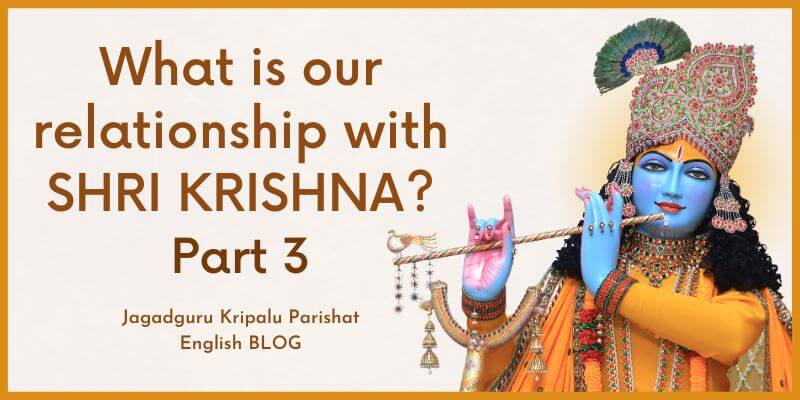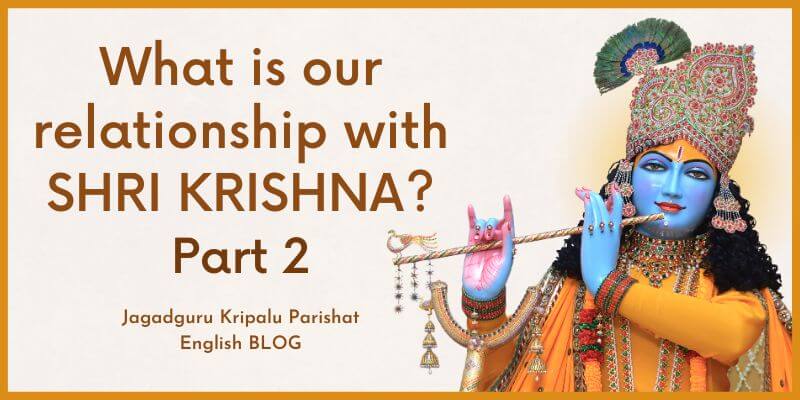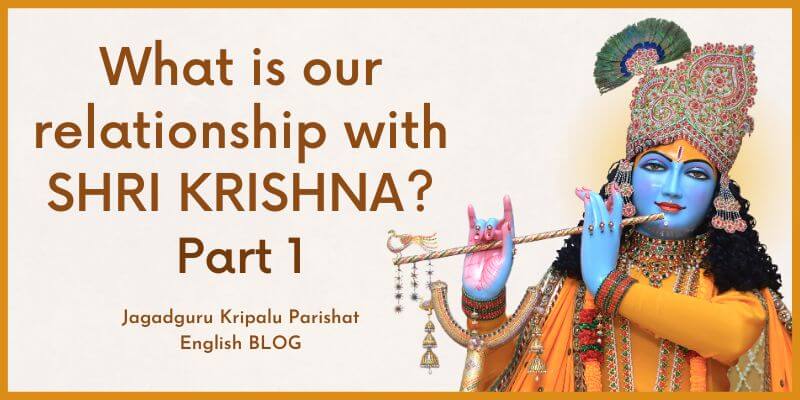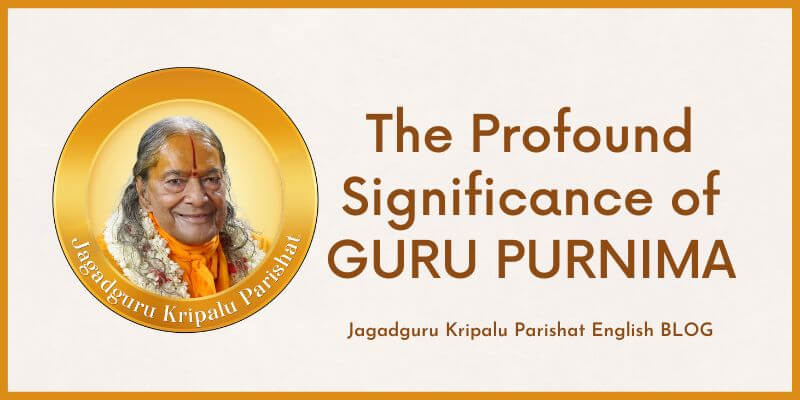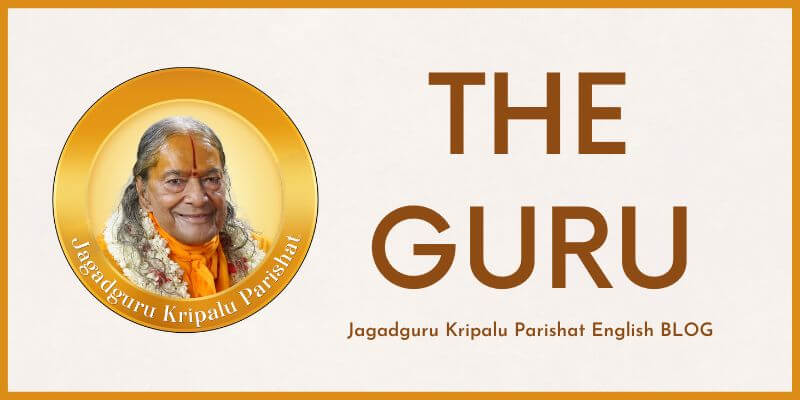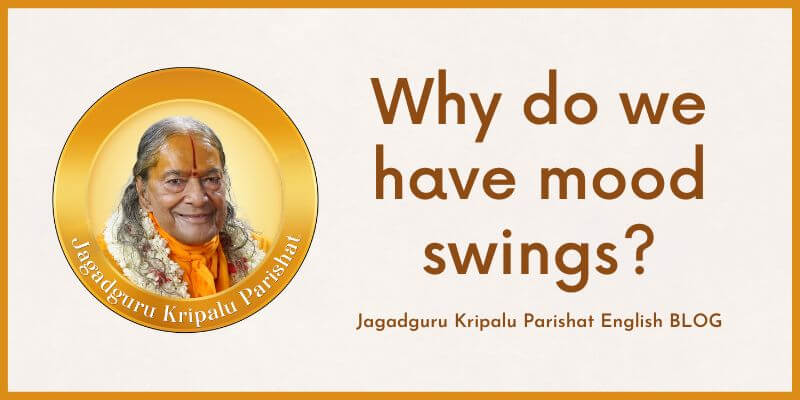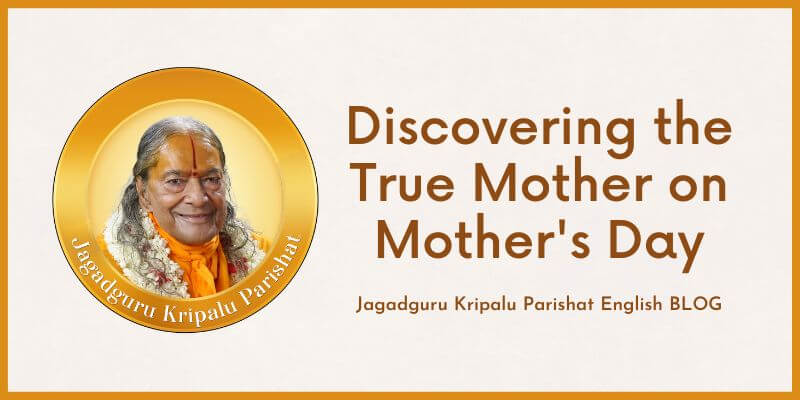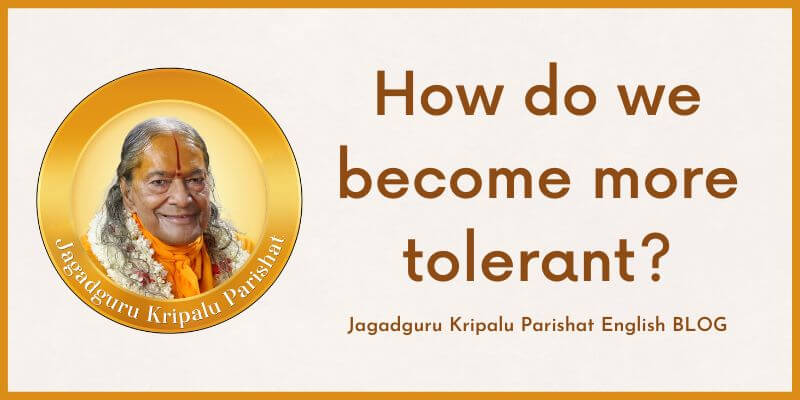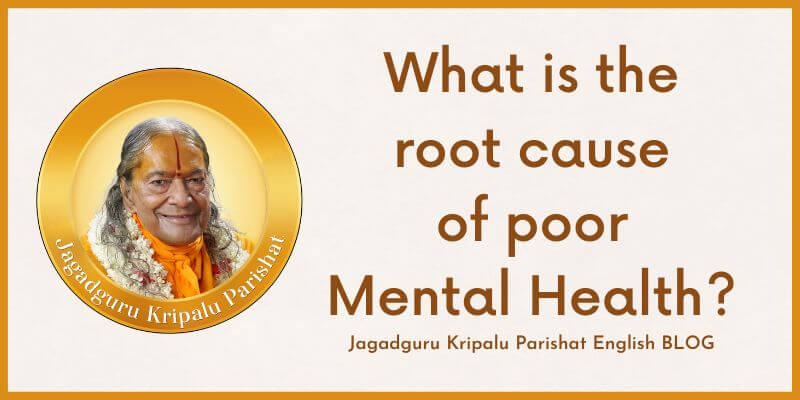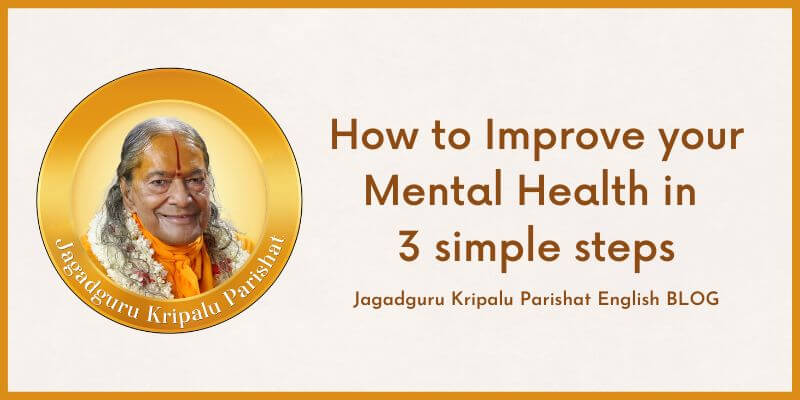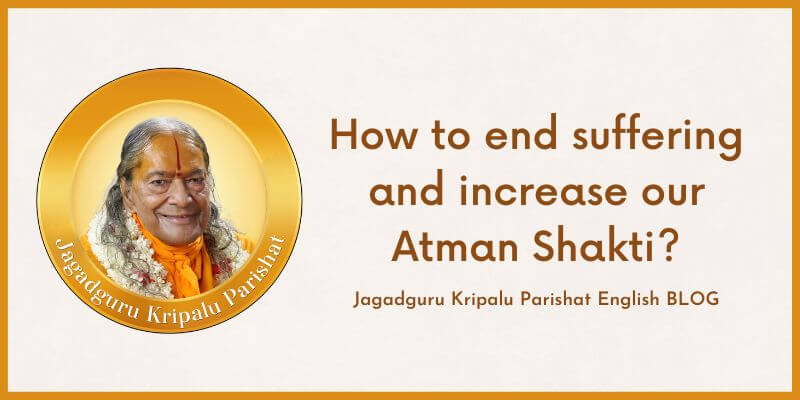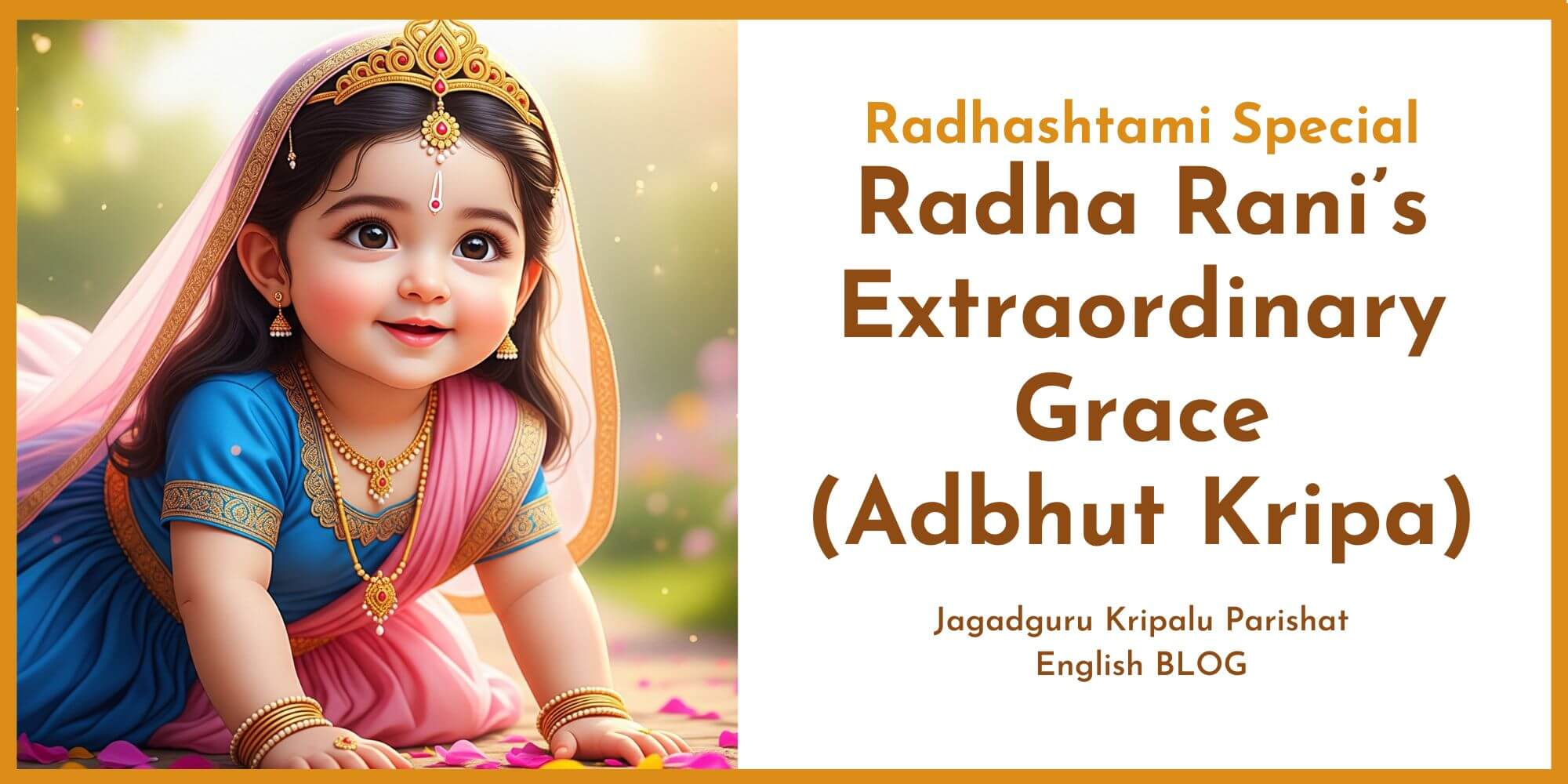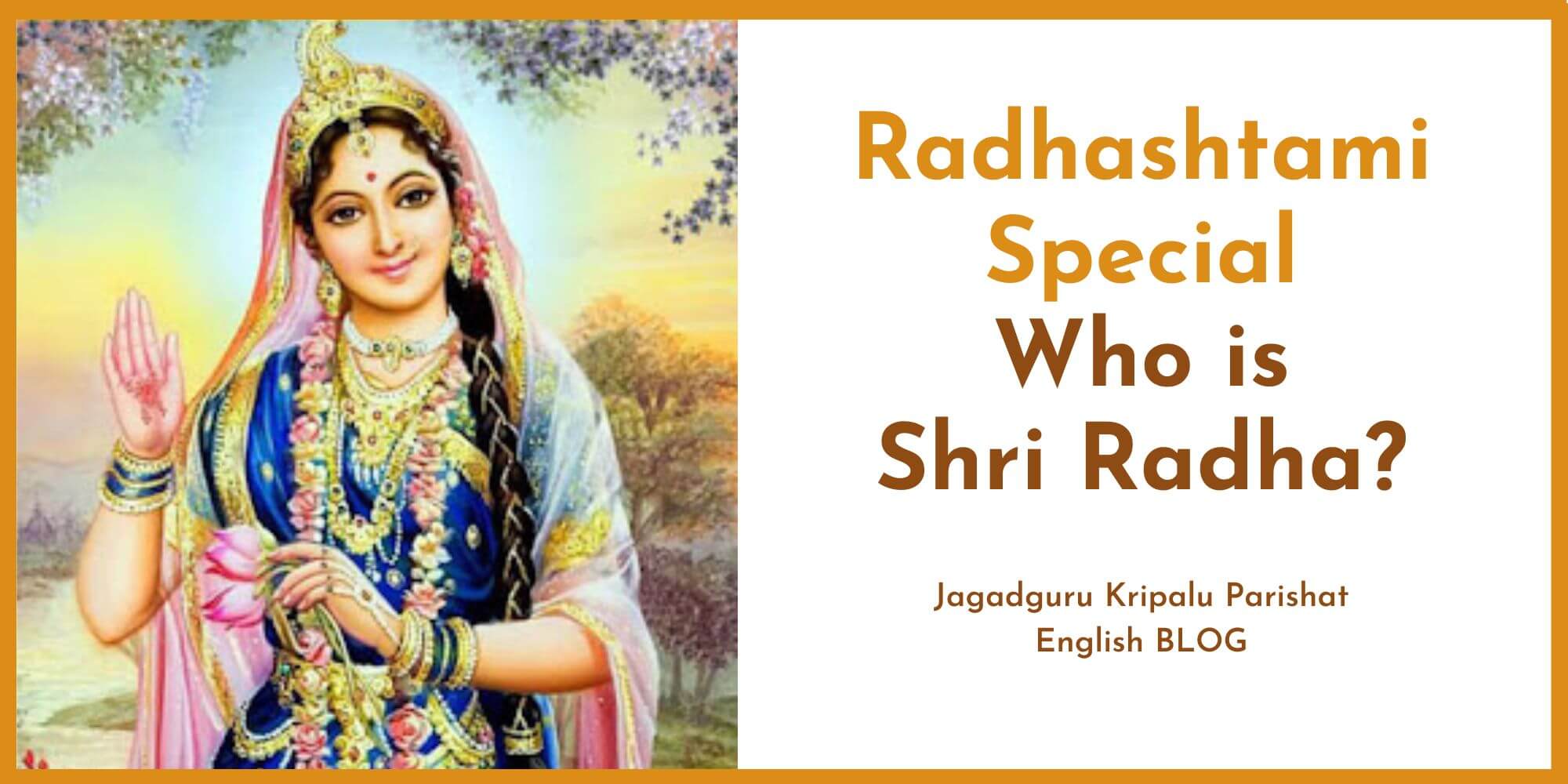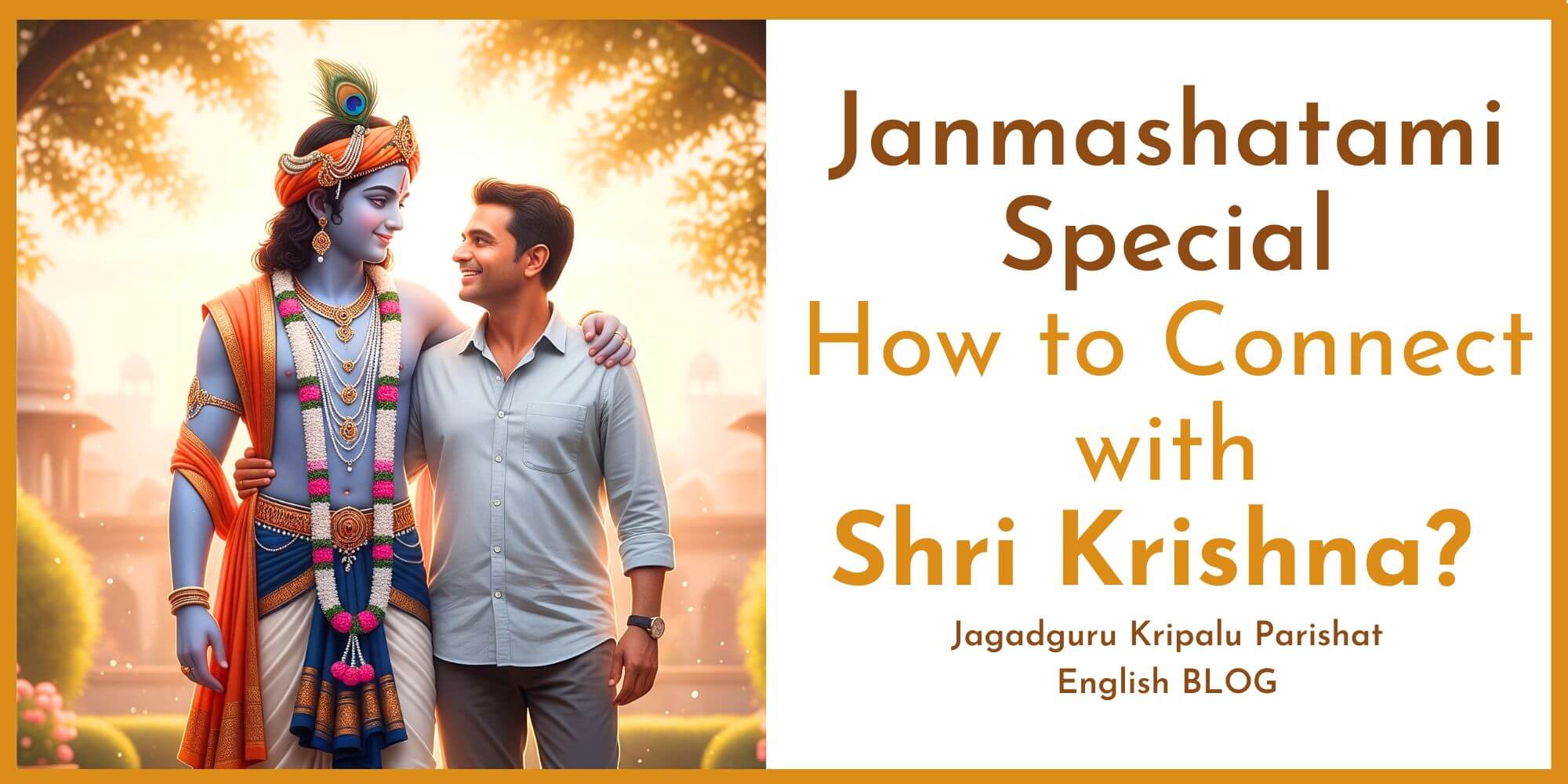Father and Child: True Relationship of a Soul with God

(Father’s Day Lecture by Jagadguru Shri Kripalu Ji Maharaj at Mussoorie)
Each and every soul in this world is God’s son. God is not only our father, mother, but our every relation. However, the main relation of the soul to God is that of a Father and Son. The Vedas have defined God as the Father of the universe.
The one from whom all souls originated – the one by whom every soul is able to survive. And the one into whom all the souls will rest, during Pralaya (dissolution of the universe). ‘Rest’ – because no soul ever dies.
One more surprising fact is that the Vedas proclaim that the soul takes birth from God; and taking birth means the beginning of something. Like this body was born one day, so this means that this body had a beginning and whatever has a beginning has surely an ending too. This is the Vedic philosophy from the Gita.
So did the soul take birth from God one day? Is there a beginning to the soul? No, according to the Vedas.
Why does a mother, son, spouse, father cry when someone dies? He is not dead. For example, our body goes to different places, Delhi, Mussooriei, Dehradun, etc frequently for some work. Similarly, the soul leaves the body to go somewhere else. It does not die. It has just gone somewhere else.
Just like we change our clothes, the soul changes its bodies. But the soul itself does not change. The soul exists since the time God exists, and God is eternal therefore the soul too is eternal. Ved says: God is eternal and so are we. This translates to mean, something that is not born one day and there is no beginning, and no end, and always exists.
So even though God is our father, he is not our senior. In the world, our father will definitely be senior to us. No father and son in the world can be of the same age. It is practically impossible. But the relation between God and soul is such, that even though he is our father and the souls are his children, both are of the same age. Both God and souls are eternal. They were not born one day.
Then what is the difference between God and the soul? One major difference is God has an eternal body and is full of eternal bliss. And we souls are exactly opposite to God. Our body is mortal, our knowledge is negligible and we have absolutely no experience of true happiness ever. We are always unhappy and grieving for something or another.
We may dispute and say that this is not true, and that we do experience happiness from time to time. However, happiness is something that when received, cannot be overpowered by sorrow ever again. It is simply Impossible. Just like darkness cannot overpower light. When the light is gone, only then darkness can come. But darkness cannot face the light. That is why, we are always sad for something or another. The happiness that we experience from time to time is deception. This is not real happiness at all.
The Vedas say, “One which is unlimited and there is no bigger happiness than that and the one that stays forever and never gets overpowered by sorrow again.” That is called real happiness. Whereas, in our case, there is always a greater happiness above the temporary happiness that we are experiencing in this world.
Secondly, whatever small happiness we get in the world is temporary and diminishes all the time. We receive happiness now and the next moment, it is gone. Another source of happiness comes along and it gives us temporary happiness and then it is gone too and so on. This happens 50 times in a day. In fact, the happiness we get from a particular thing keeps diminishing everytime and eventually this happiness vanishes completely.
For example, when a son unites with his father, after being lost for a few days, it gives his father great happiness to embrace the child close to his heart. However, after a few hugs, the happiness starts to diminish and the father then lets go of the child and asks him to go play. The immense happiness simply vanished.
Another example. If you ask someone, “Have you ever been to Mussoorie?” He will answer, “No, I am poor, so I can’t go on a vacation.” But interestingly, after visiting Mussoorie once or twice, that same person then feels that it isn’t special anymore. “It is just cold, that is all,” he will now say. After visiting some popular place, one realises there is nothing special there after all; it has the same people, food, clothes etc. that exist everywhere else. We tend to go to these places because people sing praises about that place. That is all.
There is a popular monument in India which is called Taj Mahal, which basically is a graveyard of a King and Queen. Presidents and Prime Ministers of many countries come specially to see this wonder. And interestingly, if you ask someone who lives in that particular city to go and see the Taj Mahal, he won’t be the least bothered. That person will say, “I have seen it many times, what is there to see”?
When women get married, they go to their husband’s place with so many dresses, jewellery and make-up. She is fully decked up when the neighbours come to see her for the first time. There is nothing special in her; every new bride too has the same eyes, nose, ears as everyone else. Still it is a tradition, so people go to see her. Everyone is excited to see the new bride for the first time.
If after a few days, the same bride falls sick and asks the neighbours to take her to the doctor, they will say, “Sorry I am running late.” And these same people had lined up to see her when she came for the first time as a new bride. That original pleasure is over now. Nobody is interested in her anymore. Now even the family members argue and fight amongst themselves and consider themselves unfortunate to have a useless daughter- in- law like her.
Is anyone ever fully satisfied with anything in this world? Father, mother, wife, son and everyone of our relations, becomes the reason for our restlessness. Why is that? This is because everyone is primarily selfish and unhappy themselves. When someone fulfils our interest to some extent, we get happiness for only a certain amount of time. But that happiness vanishes in no time. So, we never ever really received true happiness in any of our lifetimes. One must take special note of this.
If someone ever attains true happiness from God, he will never ever want to go to heaven, nor achieve Brahmananda, let alone the pleasures of this world and celestial abodes! This is how great Premananda (Divine Love) is. So God is happiness personified and we have never experienced this happiness ever; God is all-knowing and we have zilch knowledge. God has an eternal Divine body, whereas we have a mortal body that remains unwell most of the time. We therefore remain saddened doubly, by both our body and mind.
Let’s assume that someone is totally fit and fine physically. Although, barring a few days, everyone is suffering from some or other physical problem all the time. Still let’s assume someone is fully fit and fine physically. However, his mind will still always be restless and troubled. Nobody is free from that. Be it a millionaire or the king of the celestial abodes. Be it a beauty queen, an intellectual, a great musician or a heavy weight champion, nobody’s mind is at peace. Everyone is tense because everyone’s mind is filled with vices like lust, anger, greed, jealousies, etc. We always remain unhappy and dissatisfied because of these vices within us. This is the main difference between God and us.
So in this kirtan, the soul says to God, “I do not ask for the ultimate knowledge from you, you can give that to the Gyanis (those who perform tough meditation practices to gain ultimate knowledge from God). I do not ask for an immortal body either. I simply want to have the unlimited true Divine happiness that you have.”
That happiness of God is unlimited and in fact, it is wrong to say that God has happiness. God is Happiness Personified himself. Another name for God is Bliss itself. The Vedas state that God himself is happiness, not that God contains happiness.
The Vedas say that God is happiness personified. So God is happiness itself, He is bliss. We say God has happiness just to make it simple to understand. For example, a fruit has nectar, skin, seeds, etc. in it. God is not like that. He is full of nectar and nothing else. That divine nectar is unlimited in nature. It is so limitless that if we subtract infinite happiness from infinite happiness, there will still be infinite happiness left.
Therefore the poet here says to God, “Oh God, You have unlimited blissful nectar, Grace me with just one drop of it. There won’t be any shortage in your storage, even if you give me infinite happiness and bliss.” (“Tu pila de jo ek boond ras ki, kya kami hai tere pas ras ki”)
God says, “You are so naive, hence you are asking me this. First you tell me, where should I give you that happiness? On my part, I am more than ready to give you that happiness.”
God does not want anything from us. Why is that? Because God does not need anything. Moreover, we don’t have anything that can be useful to God. Everything we have is dirty and faulty. Body is dirty, the mind and intellect are polluted. What will God do with all this? Also, one asks something from another, only when that person is in need of something. God is all omniscient, omnipotent and omnibenevolent.
But the main question of God to the souls is:- “In what vessel should I give you my divine nectar? Your vessel, i.e. your mind and heart is impure and therefore my divine nectar cannot reside in that.“ Our mind will totally turn into ashes, if God gives us his Divine bliss, while we are undeserving.
For example, a wrestler tells another wrestler to hit him on his back 100 times so as to strengthen his muscles. He gets punched everyday at least 100 times but if the wrestler punches a new born baby once, the baby would die immediately. So even in the world, something is given to someone, only if he or she is deserving, someone who is not worthy of it will not be able to tolerate it.
We hear stories of a poor man who suffered from a heart attack because he won a lottery and could not tolerate the happiness. Two people in the family were very close to each other and one day, one of them dies; the other one suddenly dies of a heart attack too. Meaning there is a limit to which we can tolerate happiness or pain. If we receive more than the limit, we will not be able to tolerate it.
So imagine, if this is the case with worldly happiness and pain, then if God gives us unlimited Divine Love and eternal joy, how can our material heart possibly tolerate it? Therefore Divine happiness cannot be given in a material heart which is under the control of Maya. God is anxiously waiting to give his Divine Love to a soul, but He simply cannot give it to undeserving souls.
So first, we have to prepare our vessel, i.e. our mind. And for that, we have to surrender to Shri Krishna and Radha Rani, by remembering them and shedding tears. This will purify our hearts. We have to clean out all the impurities that are present in our heart and mind. Our mother, father, wife, daughter and other family members have fully pervaded our minds and hearts. So many worldly desires reside in our minds and it becomes increasingly difficult to get rid of them.
Even if we manage to remove someone from our mind, it is just for a short time only. When our father, wife etc. get into an argument with us, we feel detached for some time and realise momentarily that everyone is selfish. But again after some time, we go back to them, shamelessly.
So we have to first prepare our heart and mind for Divine happiness. No saint or God will do this for you. We have seen and heard from God and Saints infinite times in different lifetimes. We even understood the knowledge they shared with us, but that was it. We never practically applied all that philosophy. We never ever purified our vessel, i.e. our heart and mind.
That is why, we tend to blame God and saints for not giving us his divine nectar but where are they supposed to give the divine happiness? We say God is full of divine nectar. God must be smiling and thinking, “How naive these souls are? Am I the one who is delaying giving them happiness?” God says, “You must first prepare your mind for my Divine nectar, and I will give it to you, without you even having to ask for it. I am sitting right next to you in your heart and ready to give you my Divine love, once you qualify.”
That is the essence of this beautiful kirtan by Jagadguru Shri Kripalu Ji Maharaj –
“Oh God, You have unlimited blissful nectar, Grace me with just one drop of it. There won’t be any shortage in your storage, even if you give me infinite happiness and bliss.”
*A brief introduction of Jagadguru Shri Kripalu Ji Maharaj*
(Known by His devotees as Shri Maharaj Ji)
The original title of Jagadguruttam (Greatest Spiritual Teacher of the World) was bestowed upon Shri Kripalu Ji Maharaj on January 14, 1957, by Kashi Vidvat Parishad (a council of 500 greatest scholars saints of India). He composed divine texts like Prem Ras Madira, Prem Ras Siddhant, and Radha Govind Geet to lead us on the right path of devotion. He also gave priceless monuments as gifts to the world which include Bhakti Mandir located in Bhakti Dham, Mangarh, Prem Mandir located in Vrindavan Dham, and Kirti Mandir located in Barsana Dham. Shri Maharaj Ji also built hospitals for the impoverished, the Jagadguru Kripalu Chikitsalaya in Vrindavan, Jagadguru Kripalu Chikitsalaya in Barsana, and another one in Pratapgarh. All three help millions of underprivileged to gain free access to medical care. His Kindergarten, School, and College for impoverished girls Jagadguru Kripalu Parishat Education is located in Kunda and provides completely free education.
